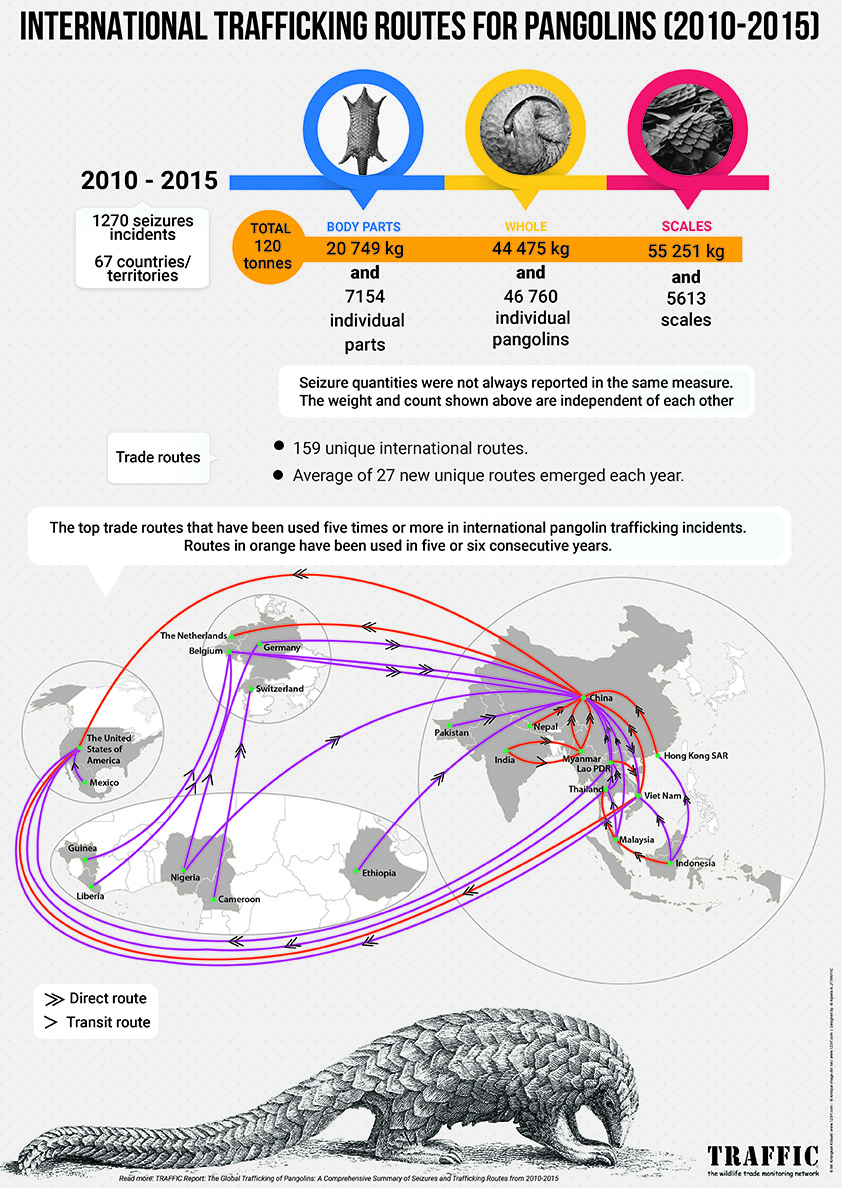Lab News | July 2020
New research, grants and lab members!
Amidst these challenging times we are extremely proud of the progress our team has made over the past few months. We have been awarded funding for several new research grants, we have new publications coming out soon, and the lab is expanding yet again with five new members joining the lab in the second half of the year!
Whist we have adapted extremely well to online meetings we have recently had the opportunity to meet face-to-face again, which we are extremely grateful for here in South Australia. We hosted a ‘Lab Science Day’, and also spent one of our lab group meetings enjoying nature walking through Adelaide’s Botanic Gardens. We had some great guest speakers for our online meetings, including Matt Miles from SA Department of Environment, and Water who provided us with some great guidance on sourcing online spatial data, and Nicola Venditozzi from our counselling support team gave a fantastic Q&A style workshop, providing our team members with some valuable tools for coping through COVID-19.
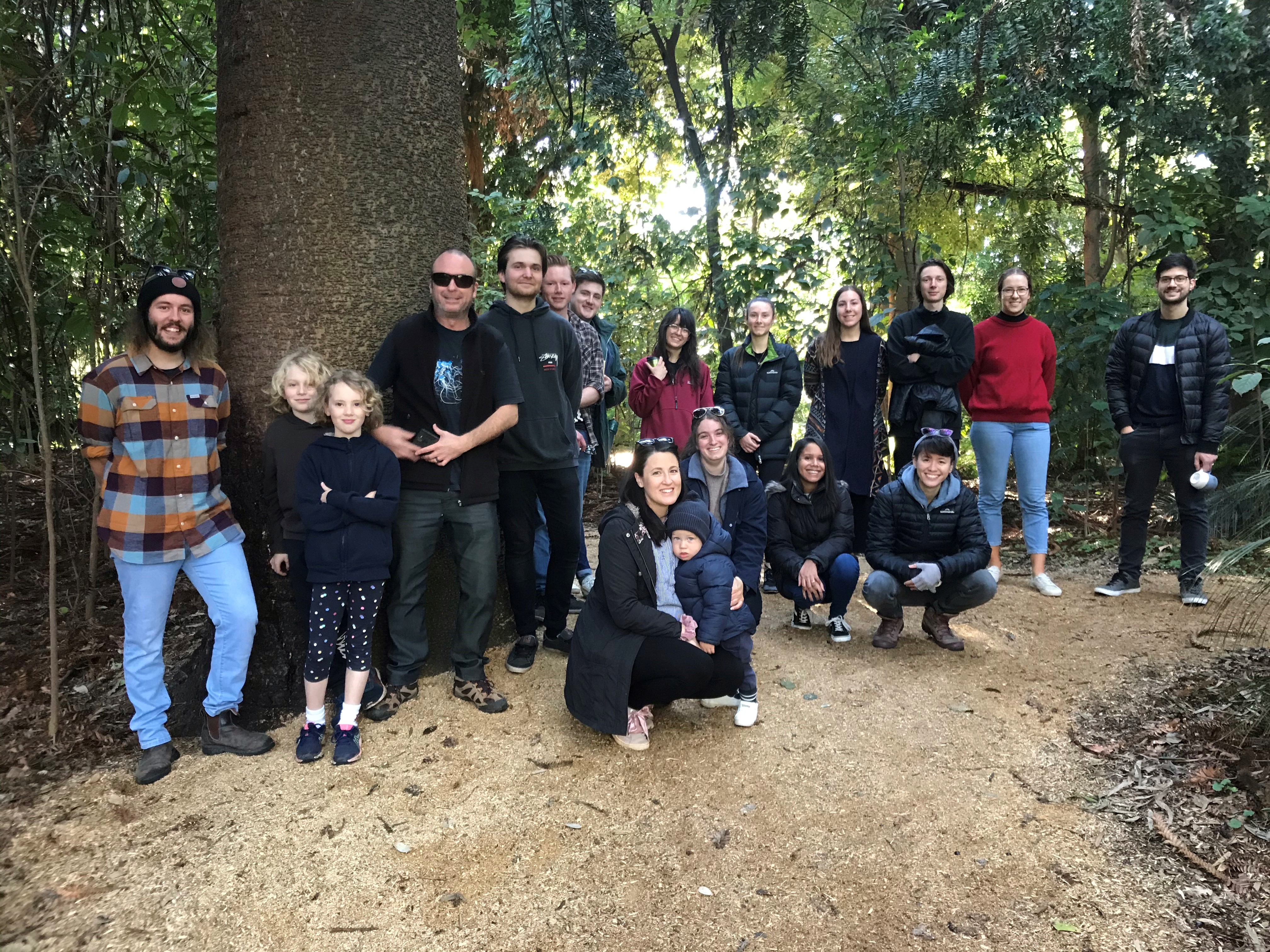
We would like to give a warm welcome to our newest lab member, Aysegul Birand, who is working on understanding how self-sustaining gene drives could be used to eradicate rodent populations on islands using mathematical modelling for the ARC Linkage project “Development of genetic technology for rodent population suppression”.
Darcy was awarded a Birds SA grant and he has been busy conducting field surveys using camera traps, acoustic recorders and field observers across Kyeema and Mark Oliphant Conservation Parks over the past two months in order to help improve both our ecological understanding and ability to monitor Bassian Thrush in the Mount Lofty Ranges.
Photo Credit: Darcy Whittaker
We have one new mid-year Honours student, Victoria Love, starting with us in August, and Jacob Maher will be commencing as a research technician for our Centre for Invasive Species Solutions Project “Biosecurity surveillance of e-commerce and other online platforms for illegal trade in plants”.
Sarah Heinrich has officially been awarded her PhD, and is currently working for the Monitor Conservation Research Society. It was such a pleasure working with Sarah and we look forward to many more collaborations to come!
Adam, Katie and Sarah have new publications coming out soon!
- Heinrich S, Toomes A, Gomex S (in press). Valuable Stones: The Trade in Porcupine Bezoars, Global Ecology and Conservation.
- Toomes A, et al. (in press). Australia’s wish list of exotic pets: biosecurity and conservation implications of desired alien pet species, NeoBiota.
- Hill K, et al. (in press). Pet or pest? Stable isotope methods for determining the provenance of an invasive alien species, NeoBiota.
Also, check out our colleagues Steven Delean and Tom Prowse’s book chapter in the new book "Population Ecology in Practice". In collaboration with Josh Ross and Jono Tuke from the Department of Statistics in ECMS, their chapter in the edited volume is titled "Analyzing Time Series Data: Single-Species Abundance Modeling".
Phill has successfully been awarded several research grants recently, including the Australian Research Council, Special Research Initiative in Excellence in Antarctic Science, Securing Antarctica’s Environmental Future; Centre for Invasive Species Solutions, Biosecurity surveillance of e-commerce and other online platforms for illegal trade in declared plants; Goyder Institute for Water Research, Healthy Coorong Healthy Basin Trials and Investigations – Project Component 4, Maintaining viable waterbird populations; and the Adelaide NRM Boards program around urban wildlife management in a 'Green Adelaide'. As a result we are currently advertising three new postdoc roles and we look forward to kicking off these exciting research projects. We have two positions studying shorebird behaviour and distribution in the Coorong, and another on surveillance of e-commerce and other online platforms for illegal trade in plants. Apply now!
We're Hiring!
Two exciting new 2-year postdoc positions studying shorebird behaviour and distribution in the Coorong
1. Studying spatial relationships in waterbird distribution, behaviour and movement, you will design and inform landscape scale wetland management Applications close: 31 July 2020 11:55 PM. Apply now!
2. Developing spatially explicit models of habitat for waterbird species. You will help determine habitat quality as indicators of environmental change and response to management intervention Applications close: 31 July 2020 11:55 PM. Apply now!
We're Hiring!
New Postdoc job on surveillance of e-commerce and other online platforms for illegal trade in plants
Provide statistical modelling, software design, and data analysis to support the Centre for Invasive Species Solutions Project “Biosecurity surveillance of e-commerce and other online platforms for illegal trade in plants”. Applications close: 05 Jun 2020 11:55 PM. Apply now!
Lab News | April 2020
2020 is going to be a year to remember!
2020 is going to be a year to remember! As is the rest of the world, we are rapidly adapting to the challenges posed by COVID-19. We have been busy remodelling our workplace and the way we operate as a lab group and research team. We are still committed to providing a supportive and friendly world-class research and teaching environment, and we are extremely proud of how our students and lab members have responded so quickly to these rapid changes. It seems like only yesterday we were celebrating the start to the New Year with our annual Fringe night out, and we have now transitioned to our weekly online meetings which are equally enjoyable 😊.
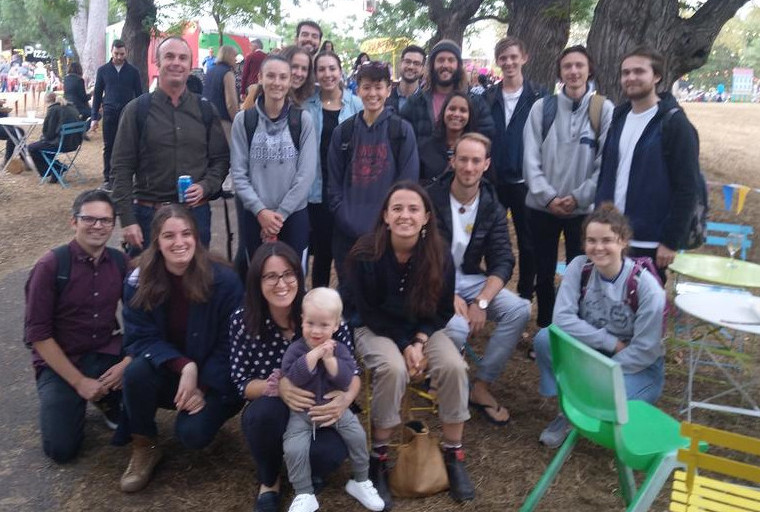
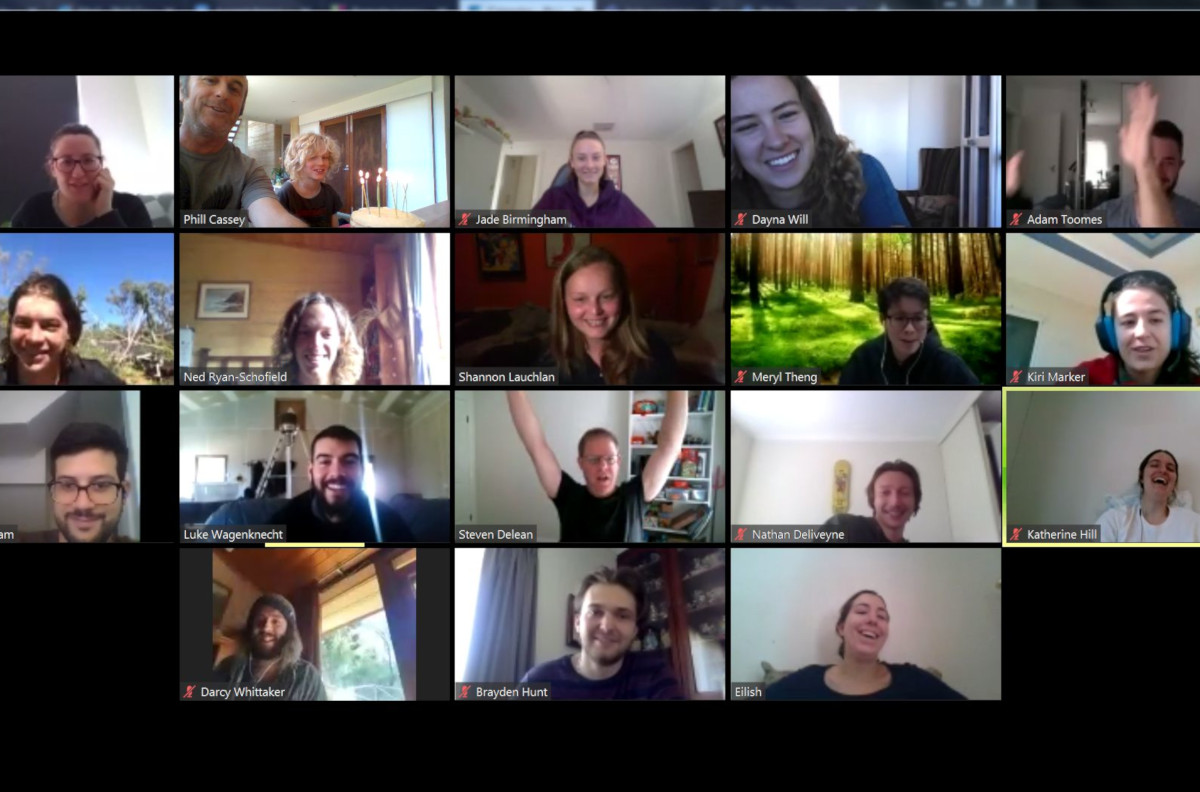
Looking back, we have had some big changes since we last touched based on our news feed in August 2019. Phill had an amazing time away with his family traveling Australia during his long service leave, and has since been to New Zealand over the Xmas break.
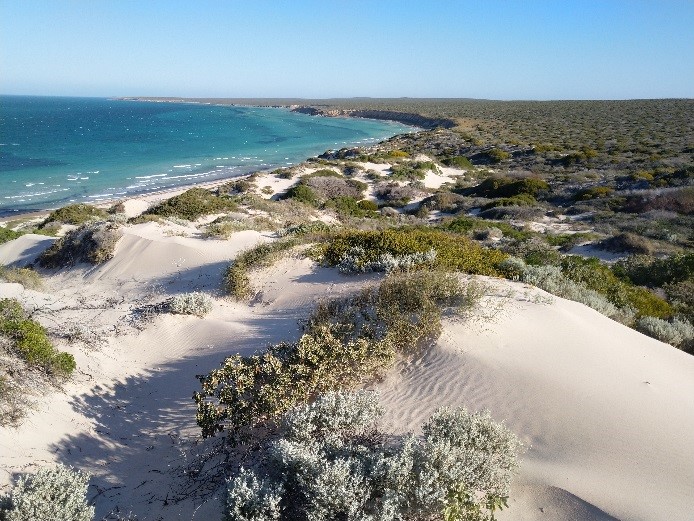
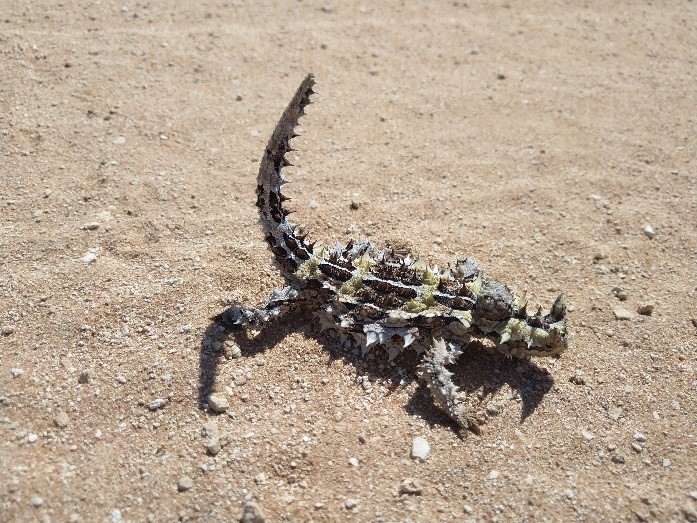
The lab Xmas party was a blast, and our first lab group meeting of the year was a great turnout filled with coffee and cake 😊.
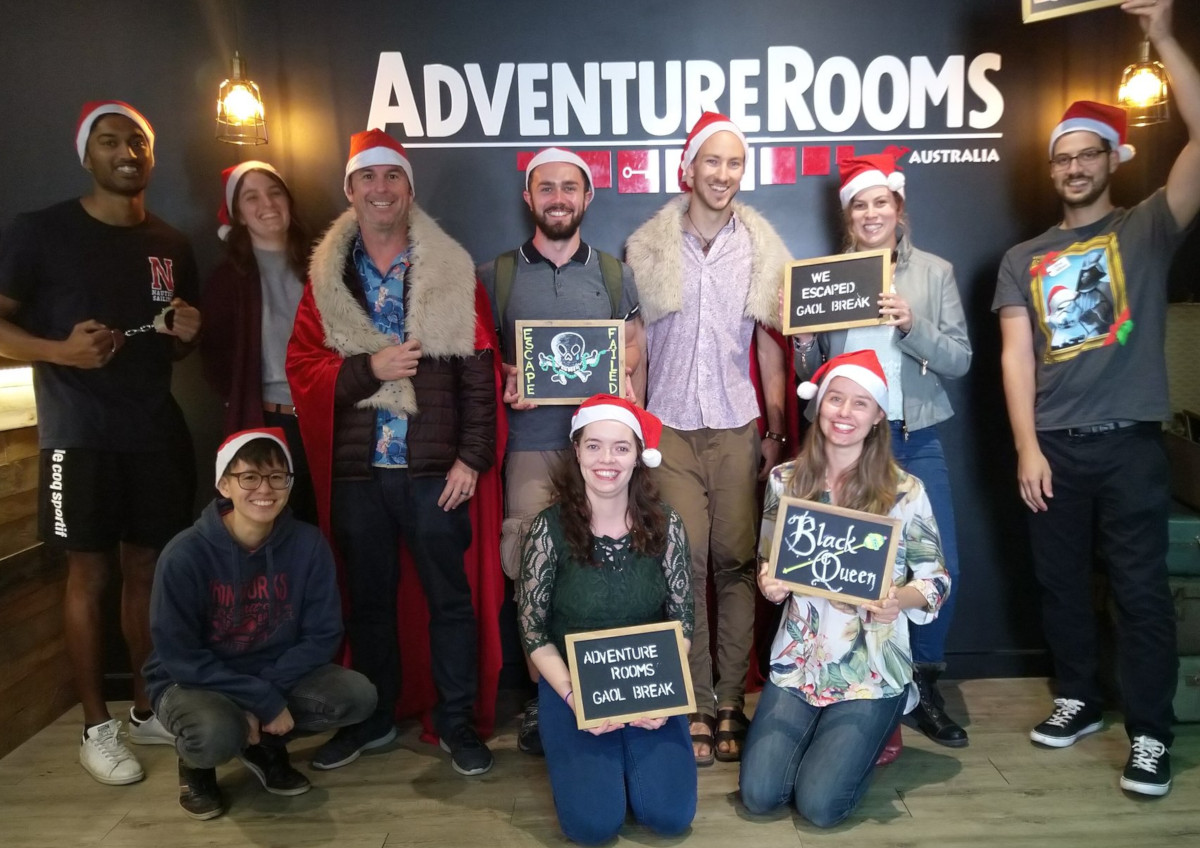
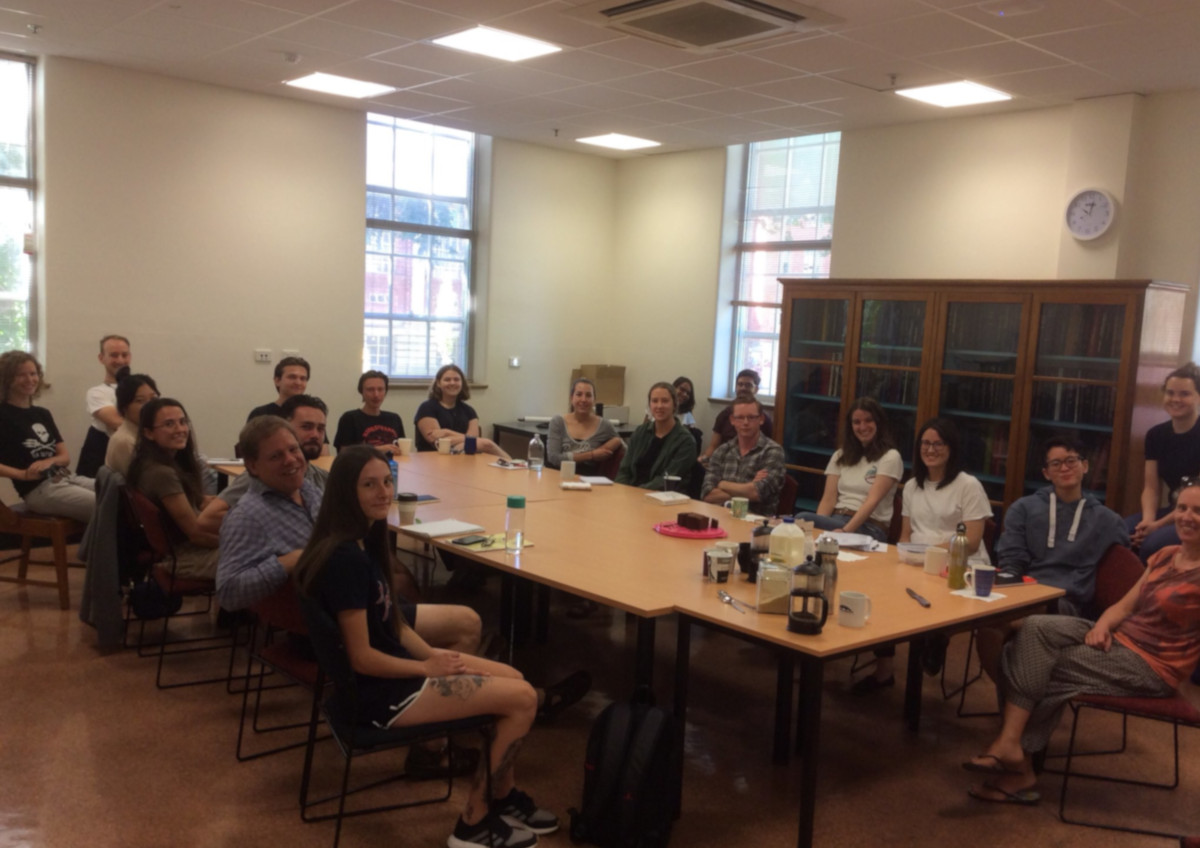
The Centre for Applied Conservation Science’s funding agreements ended in 2019. The Centre contributed greatly to the University of Adelaide's ongoing vision of protecting our environment and providing excellent science and leadership to support the conservation of species and habitats. At the end of 2019, we farewelled Nadia who we thank for her amazing work during her time with us in the lab and with the Centre for Applied Conservation Science. We welcomed back our lab manager Talia from maternity leave, 7 new honours students, our new PhD student Meryl and our new lab research assistant Steph. We would like to congratulate Sarah on submitting her PhD thesis, and congratulate our two 2019 honours students, Abilash Sivadasan and Anna Rogers, for successfully completing their research projects.
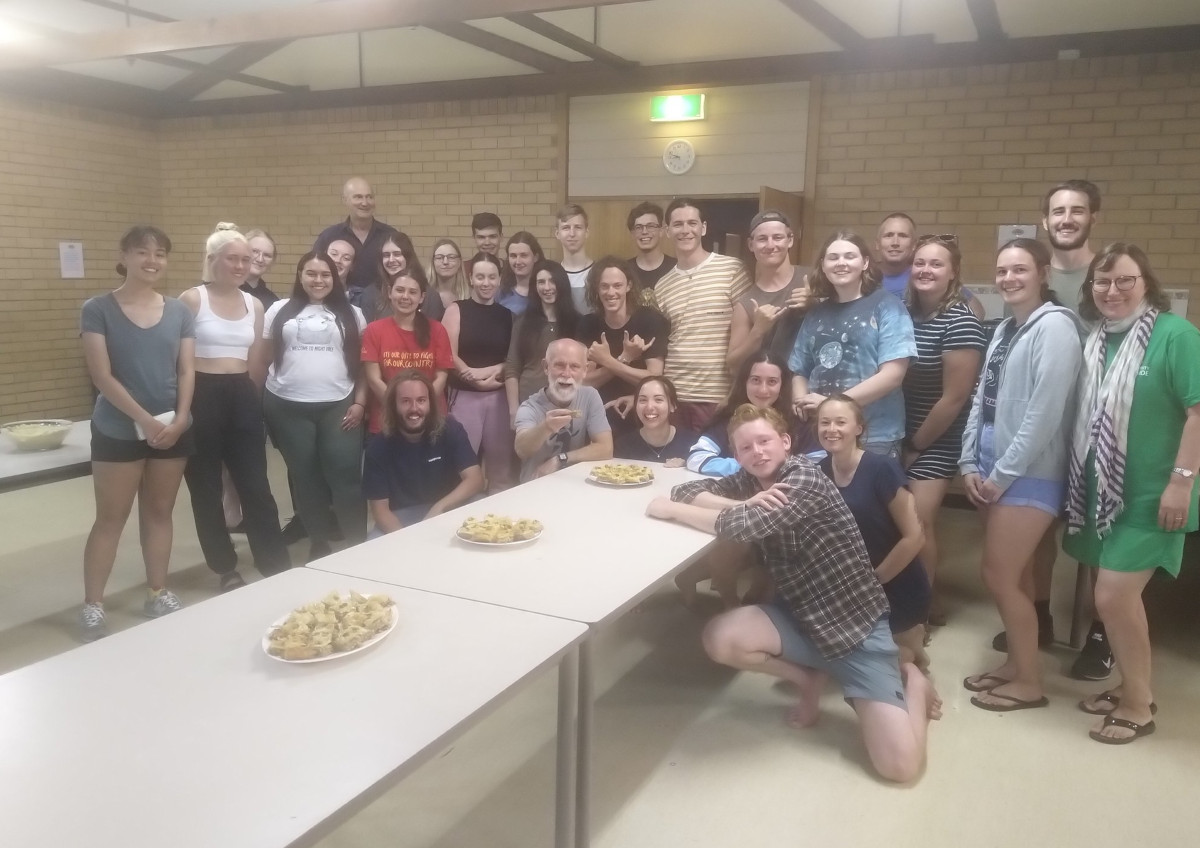
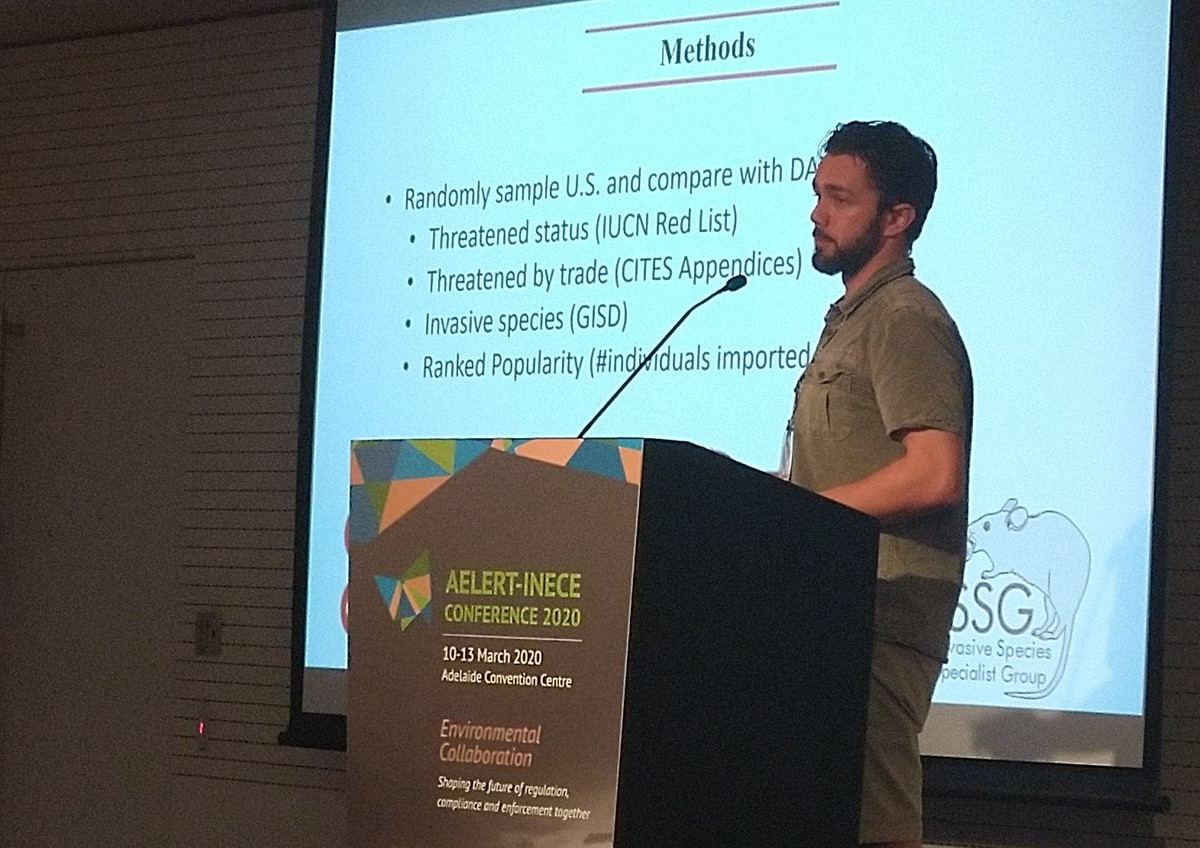
Phill attended the first year Ecology Camp in February, and the Centre for Invasive Species Solutions Project (CISS) Program Review meeting in Canberra for our CISS project ‘Understanding and intervening in illegal trade in non-native species’. We also hosted the Environment and Invasives Committee to provide an update on our CISS project. Phill, Adam and Oli presented their wildlife trade research at the AELERT conference in Adelaide in March, and we thank Matt Swan and Craig White for their visits to the lab in March.
We would like to congratulate our PhD student Katherine Hill for recently be awarded the Holsworth Wildlife Research Endowment for her research on forensic techniques for tracing animals in illegal trade.
We have an exciting new postdoc role that will be advertised in the coming months to provide statistical modelling, software design, and data analysis to support our new CISS Project ‘Biosecurity surveillance of e-commerce and other online platforms for illegal trade in plants’.
We hope that you are all taking care of yourselves and each other through these uncertain times.
Lab News | August 2019
Workshops, Conferences and Study Tours
The past few months have seen a full calendar for everyone with several workshops, conferences and exciting publications.
Once again, Phill attended New Zealand’s Biological Heritage Biological Heritage ‘Crazy & Ambitious 2’ Conference in Wellington where he was delighted and humbled to be part of the decision making for safeguarding NZ’s Biological Heritage. The event hosted almost 300 attendees with a powerful line-up of inspirational speakers and panellists. Phill was also a keynote speaker at The Crime and Networks – Illegal trade in live animals workshop in Melbourne and attended the IUCN Asian Songbird Trade Specialist Group (ASTSG) meeting in Singapore. The ASTSG meeting brought together over 50 international researchers and conservationists, encompassing a wide range of expertise to discuss the illegal and unsustainable trade of songbirds in Asia.
Katie, Adam and Phill attended the Australian Biosecurity Symposium on the Gold Coast, connecting with some of the industry’s best to exchange knowledge on research, innovation and preventative biosecurity practices across the network. In the transformative technology category, Katie presented her research in a talk “Pet or Pest? New application of stable isotope methods for the early detection of invasive alien species”. Adam’s research, categorised in the behaviour change for better biosecurity, was a speed talk titled “Evaluation of social media engagement strategies relevant to Australian biosecurity and alien wildlife trade”.
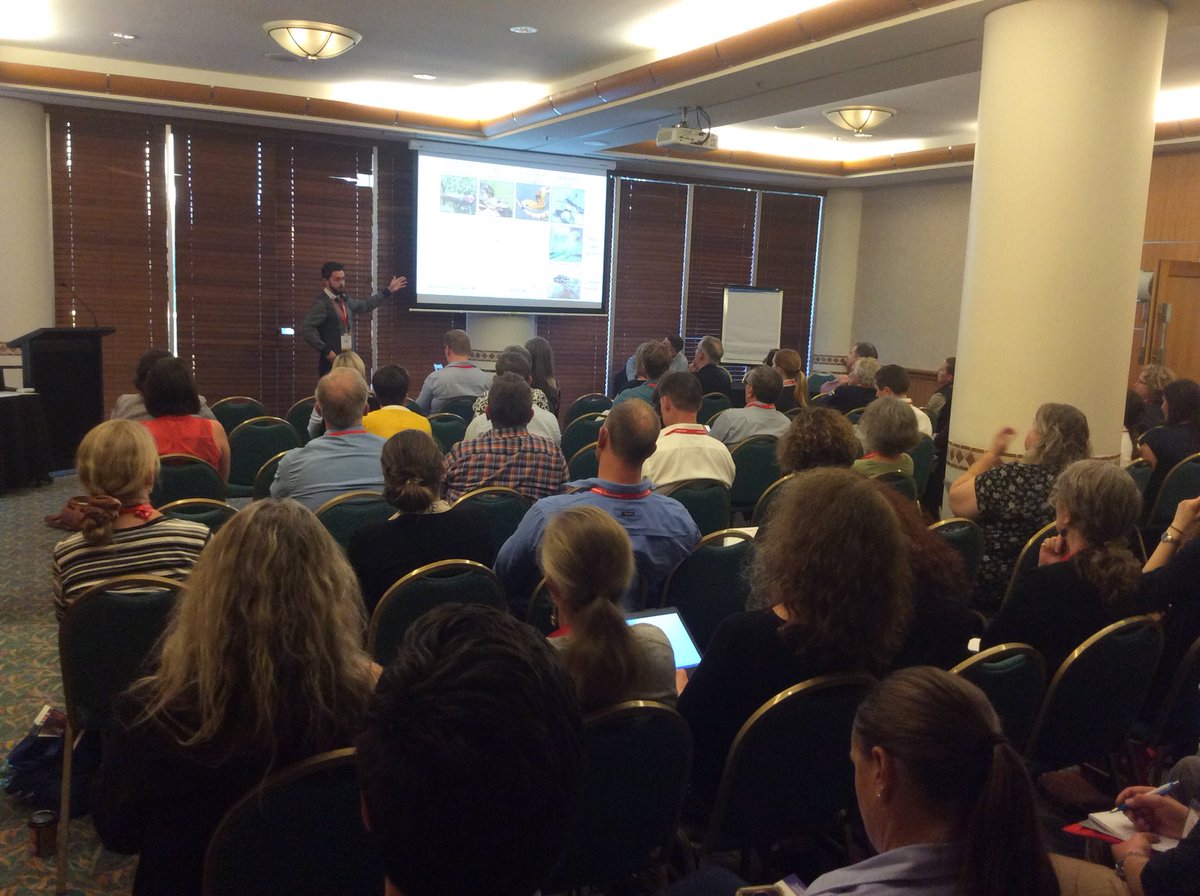
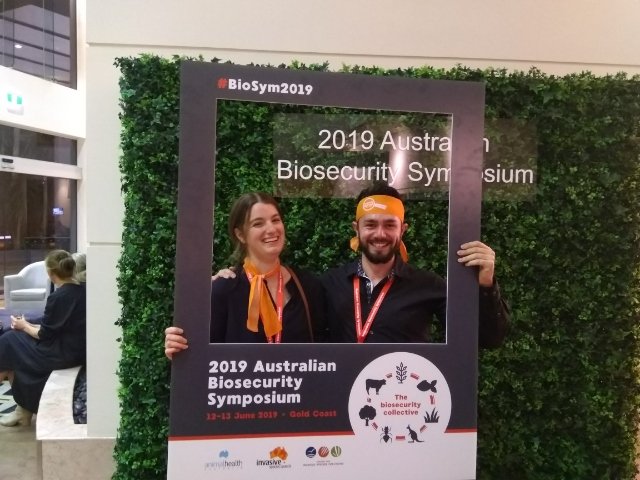
Australian Biosecurity Symposium Photo Booth (Photo Credit: Phill Cassey)
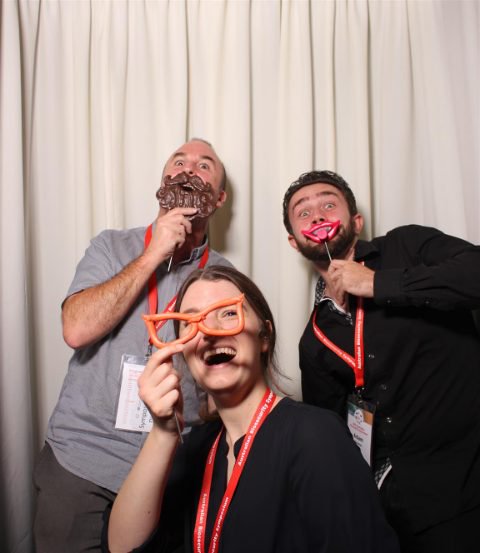
Over the past month, Adam, Oliver and Phill have coordinated a national wildlife crime workshop in Canberra. The event brought together state and national bodies to discuss shared objectives and future planning for combatting wildlife crime in Australia.
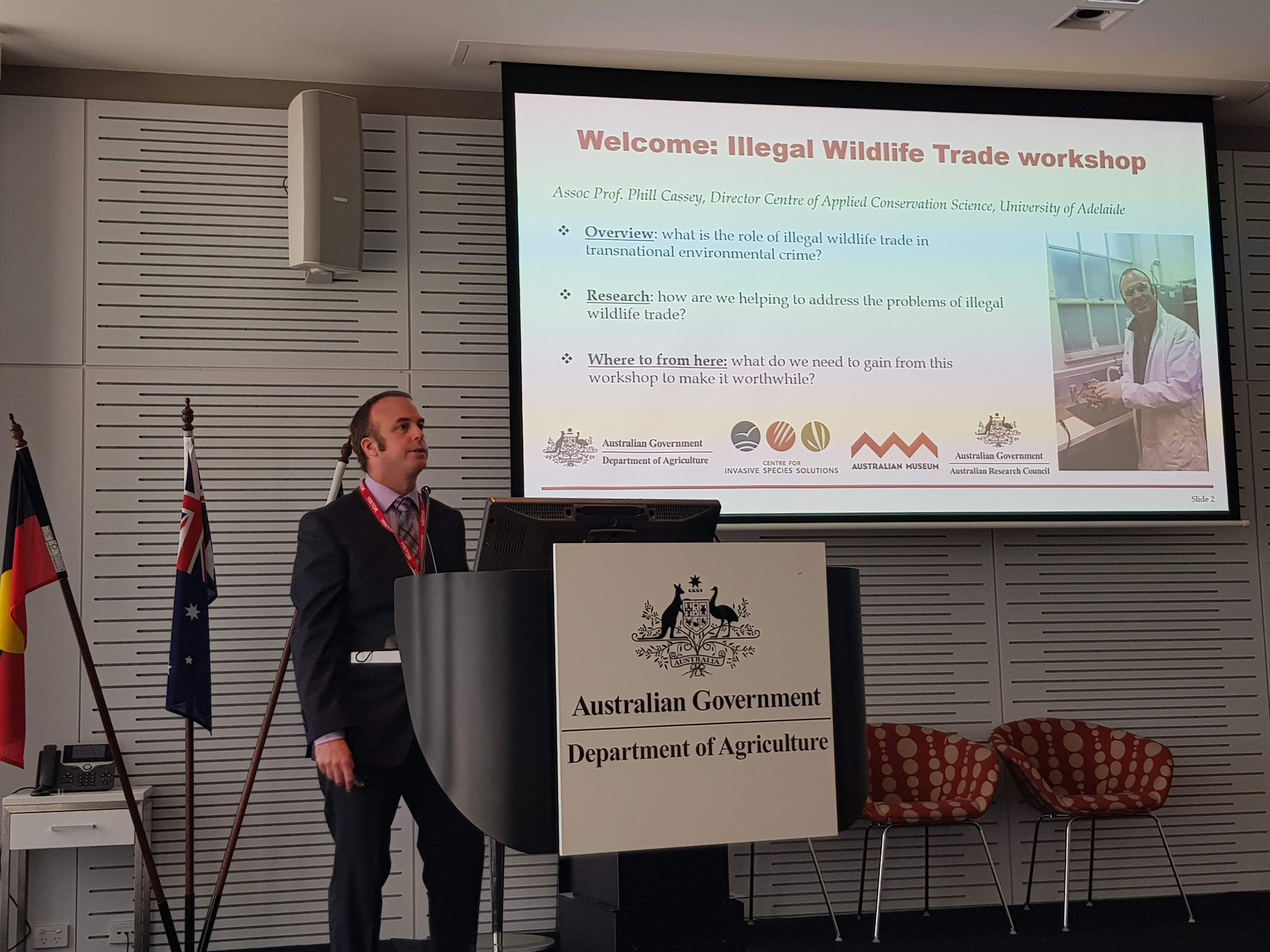
Phill welcoming attendees at the National Wildlife Crime Workshop in Canberra (Photo Credit: Adam Toomes)
We welcomed back to the lab, one of our collaborators Chris Sheperd (Monitor Conservation Research Society). He presented a talk on the illegal wildlife trade work his team have been actively involved in over the past year to the wider University of Adelaide research groups. The Biology Society of South Australia also featured Chris on their BSSA Podcast talking about the illegal wildlife trade across the Asia-Pacific.
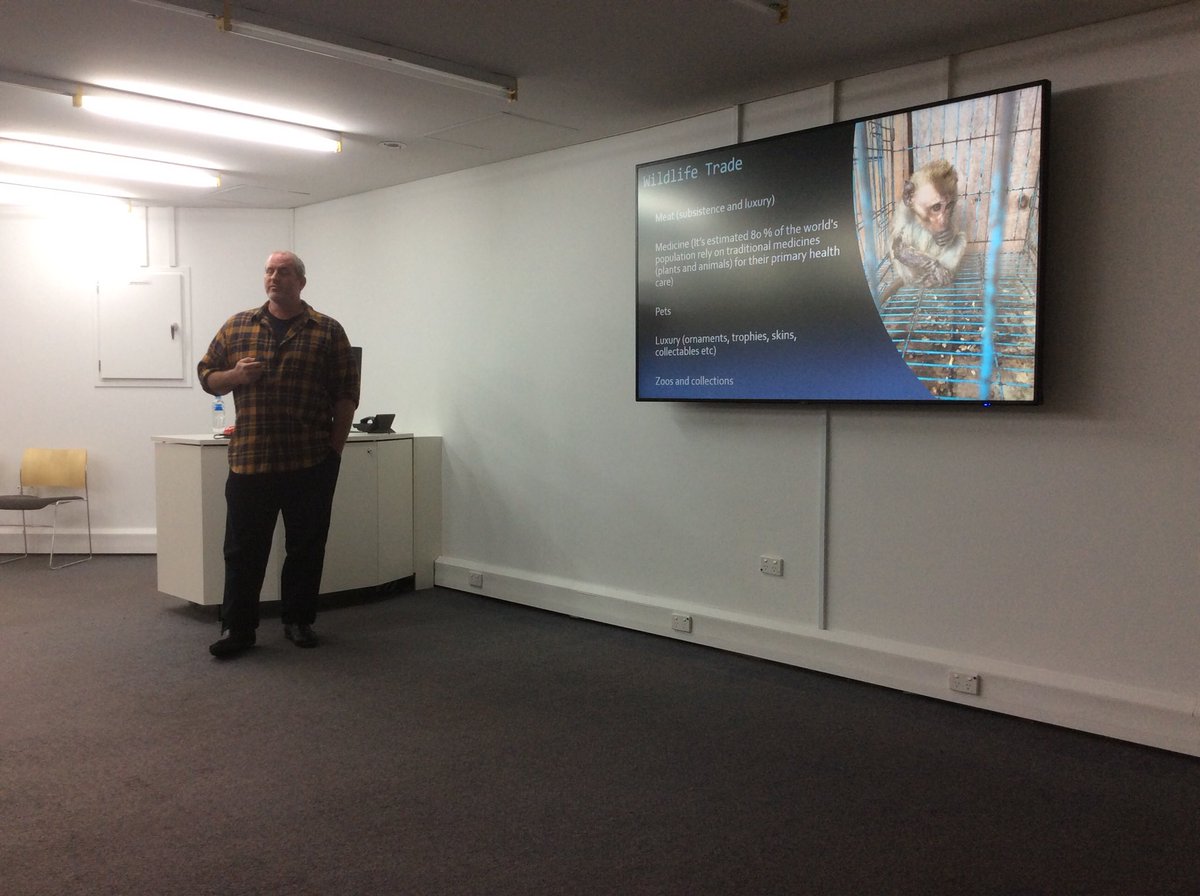
Chris Sheperd provided an insightful talk into the illegal wildlife trade across South East Asia (Photo Credit: Nadia Meakin)
Adam took the opportunity to further develop his skills in ecological field surveillance methods, participating in the TERN Ecological Monitoring Training course at Calperum Station. Over five days Adam learnt some of the TERN Surveillance Field Methods with hands on experience. He also participated in the 12th Annual Postgraduate Symposium presenting his poster on “Australia’s Least Wanted”. Katie travelled to South Africa to participate in a two-week Invasion Science field course offered by the Centre for Invasion Biology, Stellenbosch.
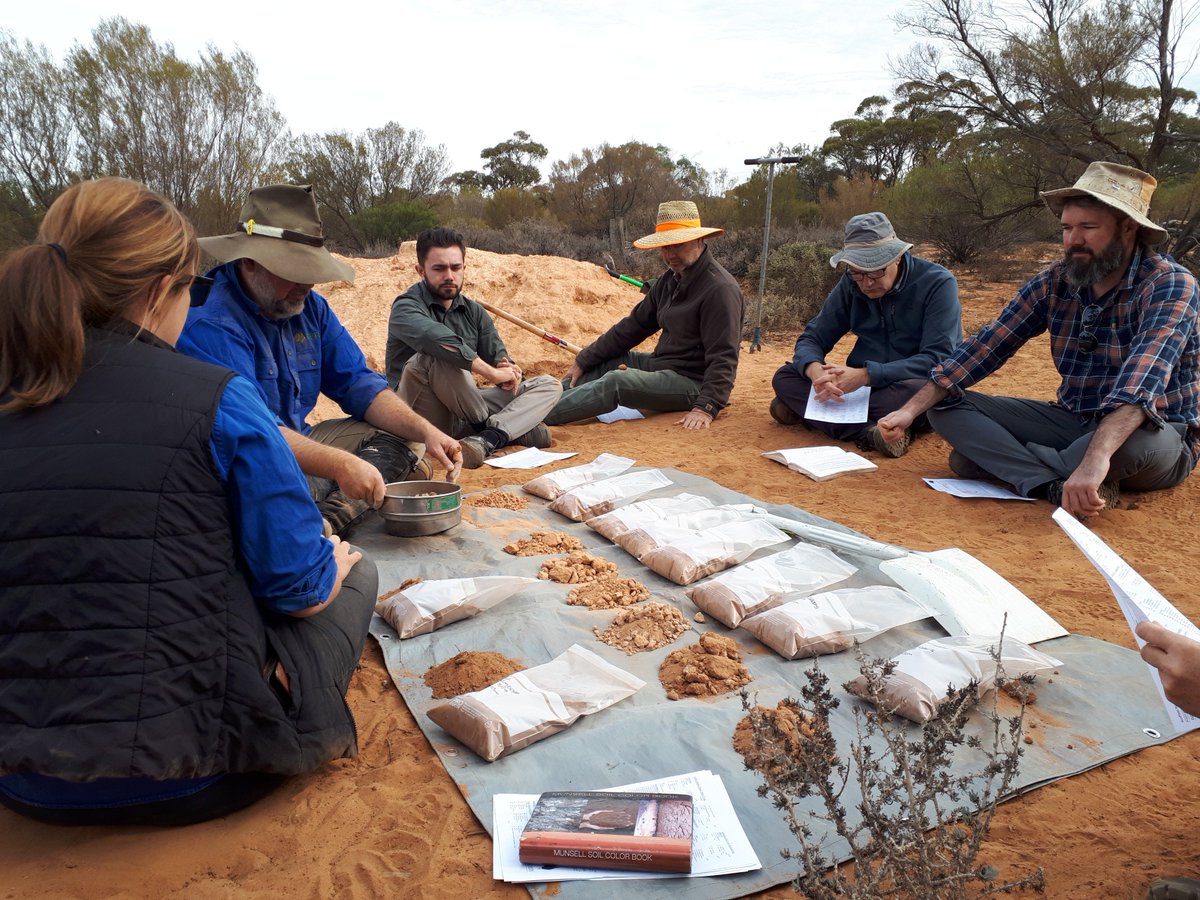
TERN Calperum, SA workshop demonstrating soil sampling techniques (Photo Credit: TERN_Aus)
Phill and Sarah recently returned from the “Down Stream Traffic” SCIENCE3500 study tour which took the group through Singapore, Laos and Cambodia. The students were immersed in a 13 night experience researching water, tropical ecology and animal trafficking in south Eastern Asia.
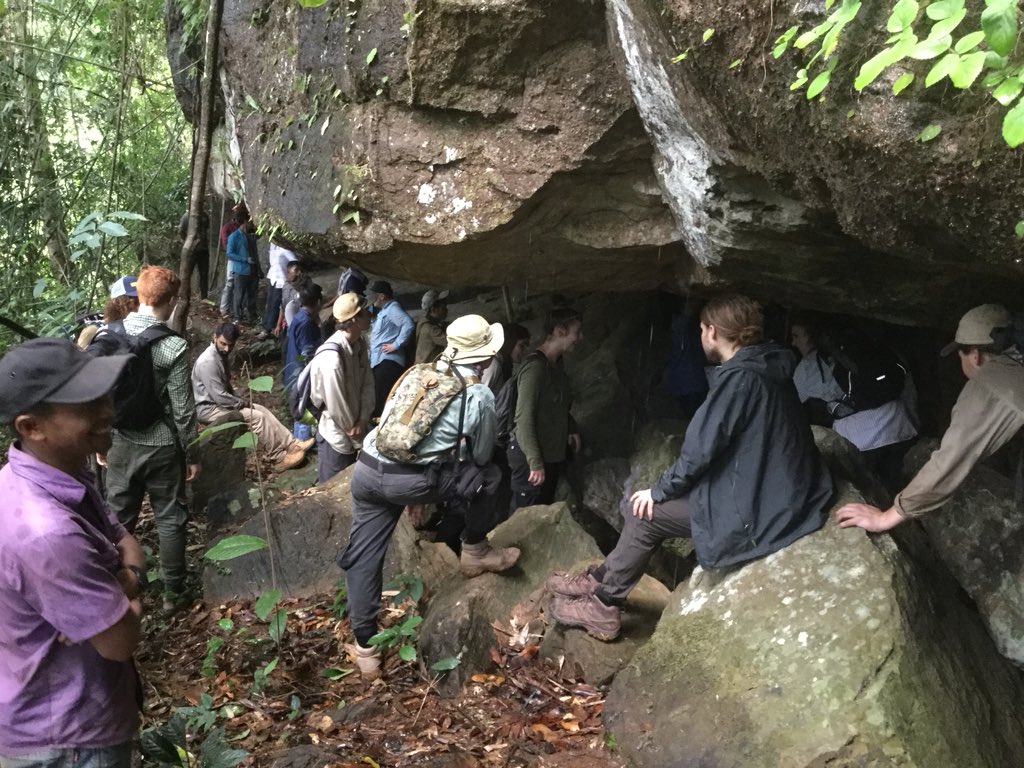
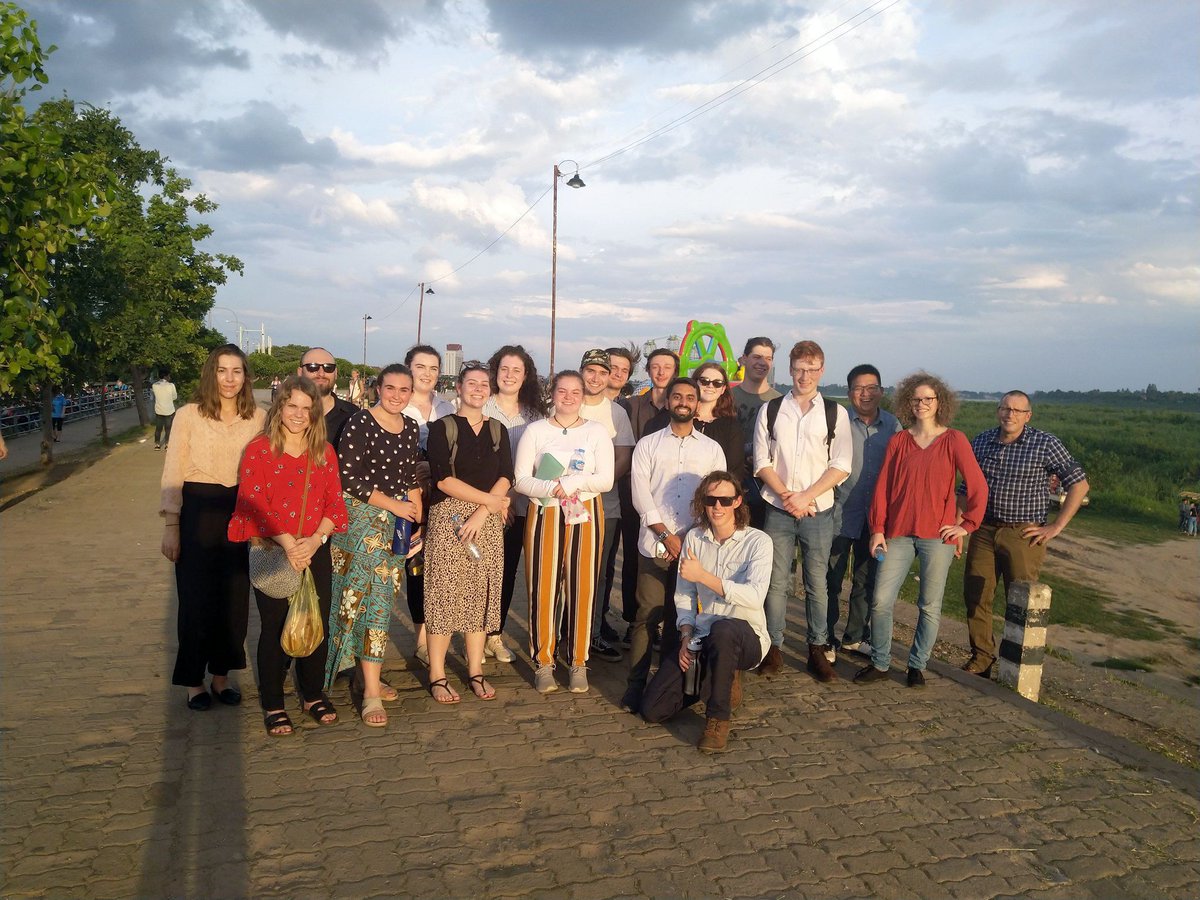
Finally check out the list below of the labs recent publications:
The IEG is excited for the next half of the year and wish Phill all the best on his long service leave over the next three months.
Lab News | April 2019
New Year buzzing with activity
2019 has started with a roar – and there is no sign that it is slowing down!
Phill began the year in Toronto, Canada where he attended the Symposium on Biosecurity and Transnational Environmental Crime. The symposium brought together an international group to advance knowledge about the threats to the environment, biodiversity and human welfare from transnational environmental crime and efforts to combat it, with a specific focus on problems/issues related to biosecurity, climate change, and invasive species.
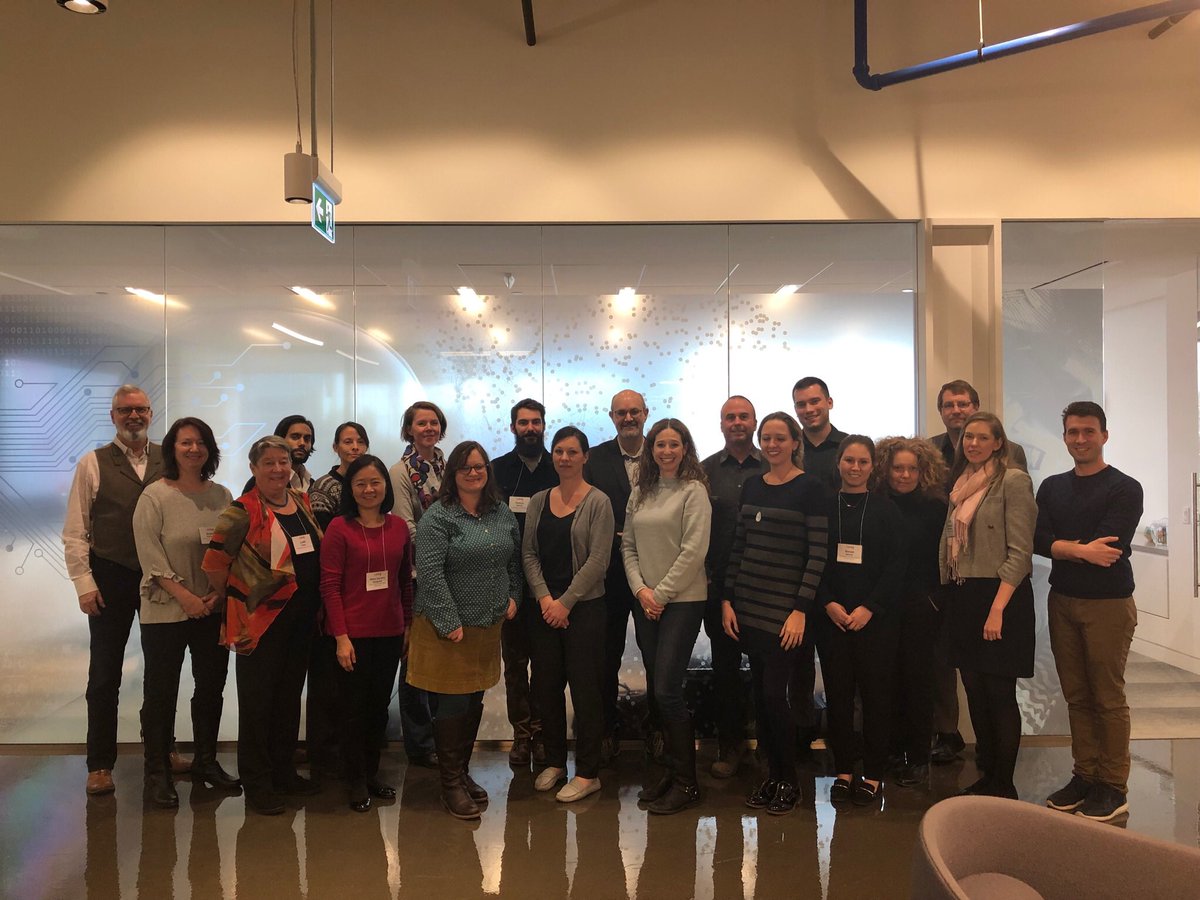
The team has expanded and we wish a very warm welcome to our two new honours students Abilash Sivadasan and Anna Rogers. Abilash will be studying The pathways and dynamics of the Australian CITES wildlife seizures data from the last 16 years. While Anna is researching Optimising audio lures and inducing grooming behaviour through flavoured gels to improve the Felixer Grooming traps for foxes. We also officially welcome, all the way from Rutgers University in New Jersey, Oliver Stringham who begins his postdoctoral research on Understanding and intervening in illegal trade in non-native species with the Centre for Invasive Species Solutions.
This year we welcomed first year Ecology, Wildlife Conservation and Animal Behaviour students with a transition camp to Port Hughes before teaching began. This was a fabulous opportunity to engage with the students prior to their University experience and help prepare them for their new learning environment.
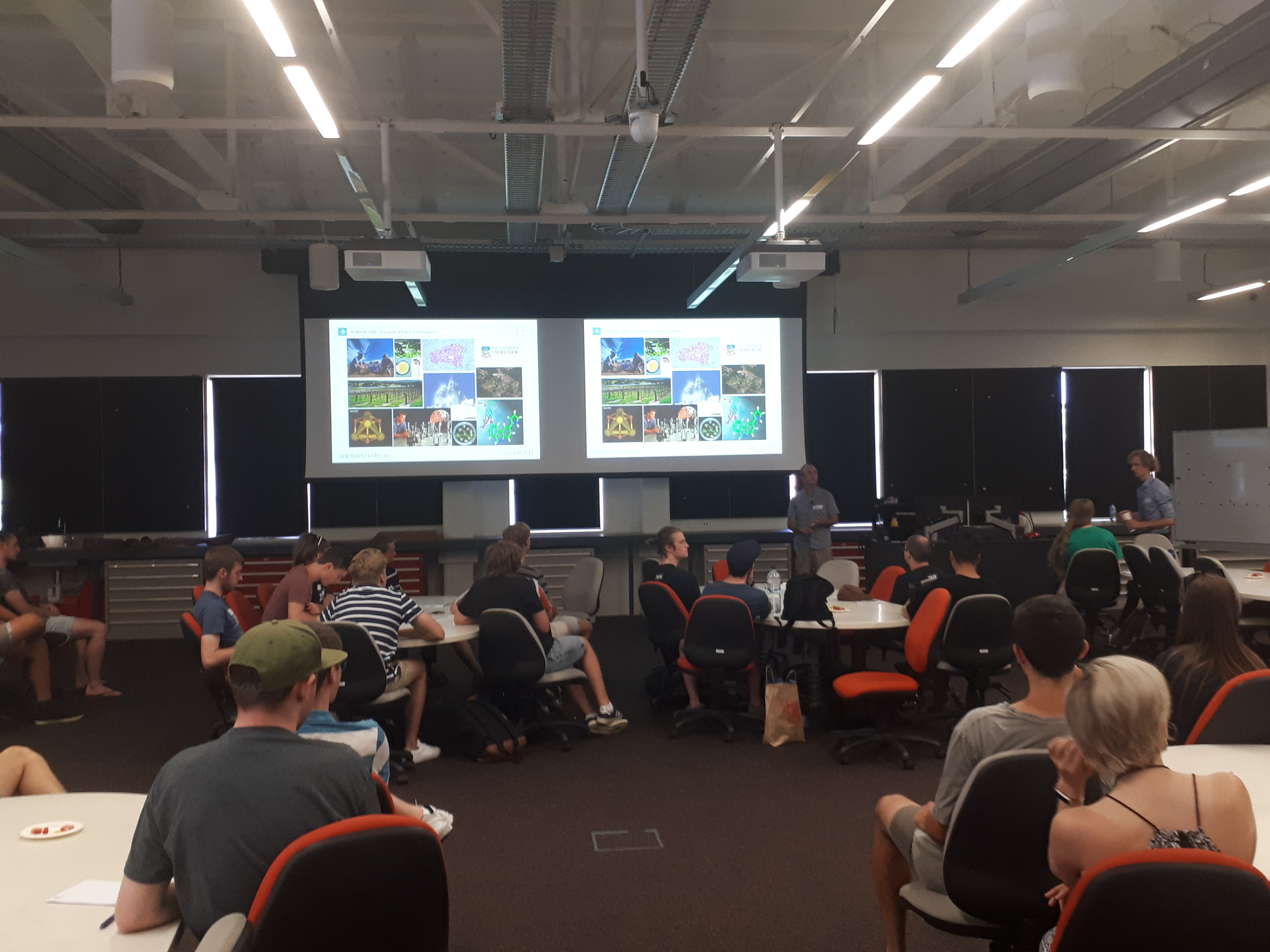
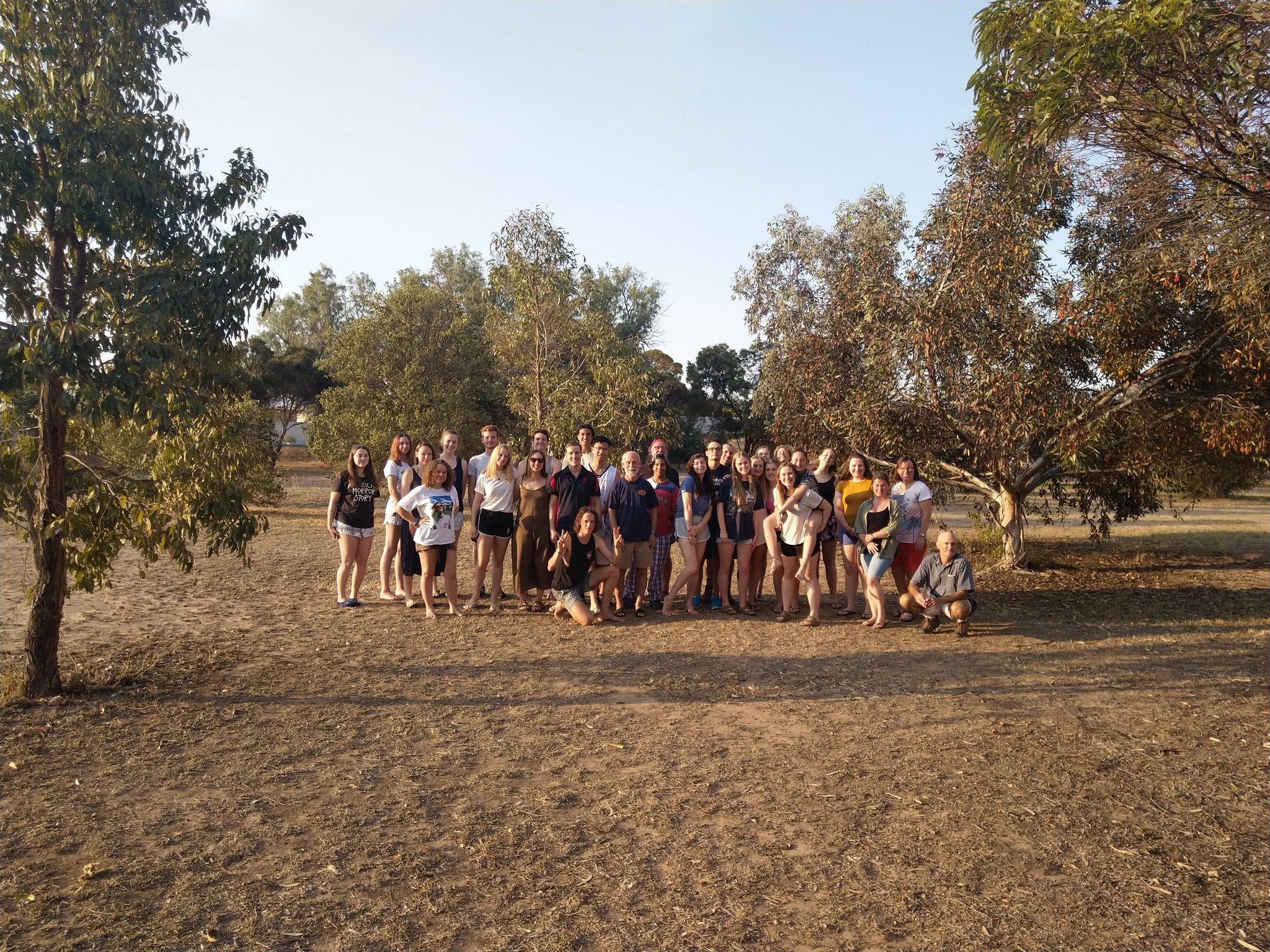
In partner with Biosecurity SA the Centre for Applied Conservation Science (CACS) hosted a South Australia Weeds Forum with the aim to understand the weed management and solution priorities in SA. The forum brought together a broad range of stakeholders from industry, government and research collectives from across regional SA. The outcomes from the forum have contributed to an expression of interest to participate in the Centre for Invasive Species Solutions weed portfolio, currently in development with a draft 10-year national investment plan released. The Invasion Science and Wildlife Ecology Group is actively involved in the CISS vertebrate pest portfolio, participating in projects on the illegal pet trade, and rabbit and feral deer management.
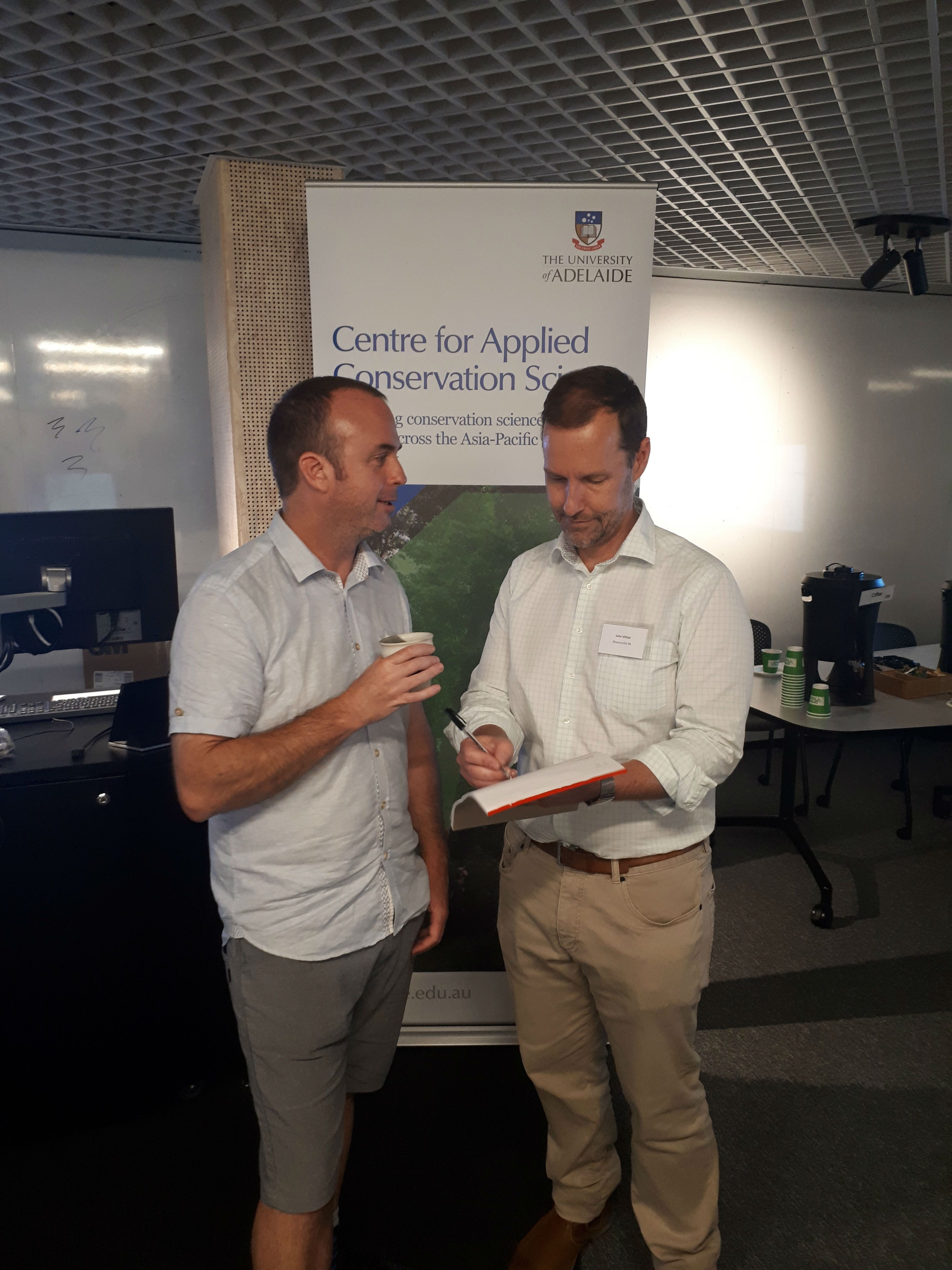
We are particularly proud of Amy Iannella for successfully obtaining her PhD (‘Co-Evolution of Rabbits and the Rabbit Haemorrhagic Disease Virus (RHDV) in Australia’), and Jack Tatler for his recent thesis submission (‘Integrated analysis of the movement and ecology of wild dingoes in the arid zone’). Katie Hill has now commenced her PhD and we look forward to hearing more about her project as it progresses. The Adelaide Fringe had a huge presence at University of Adelaide this year and Invasion Science and Wildlife Ecology Group had a fantastic night out in the Gardens of Unearthly Delights and Gluttony.
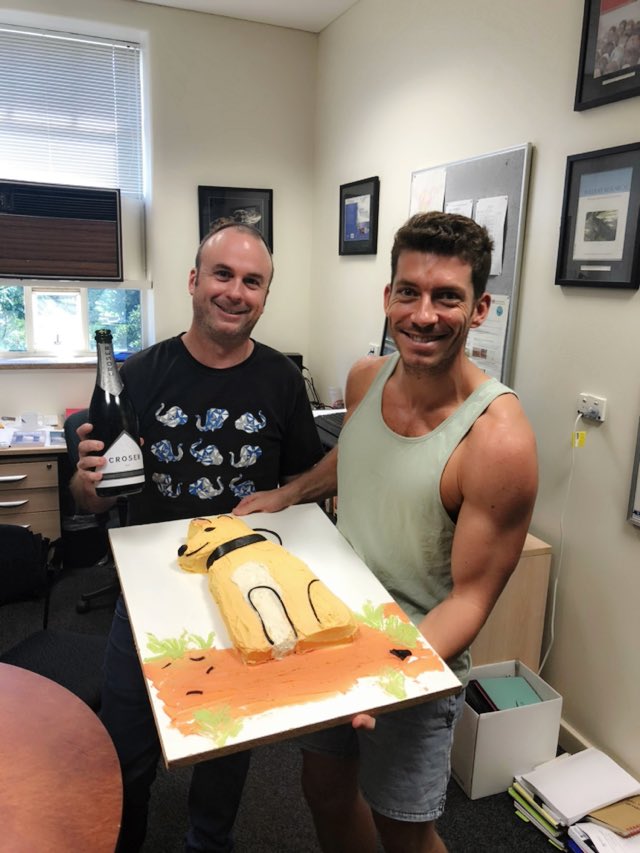
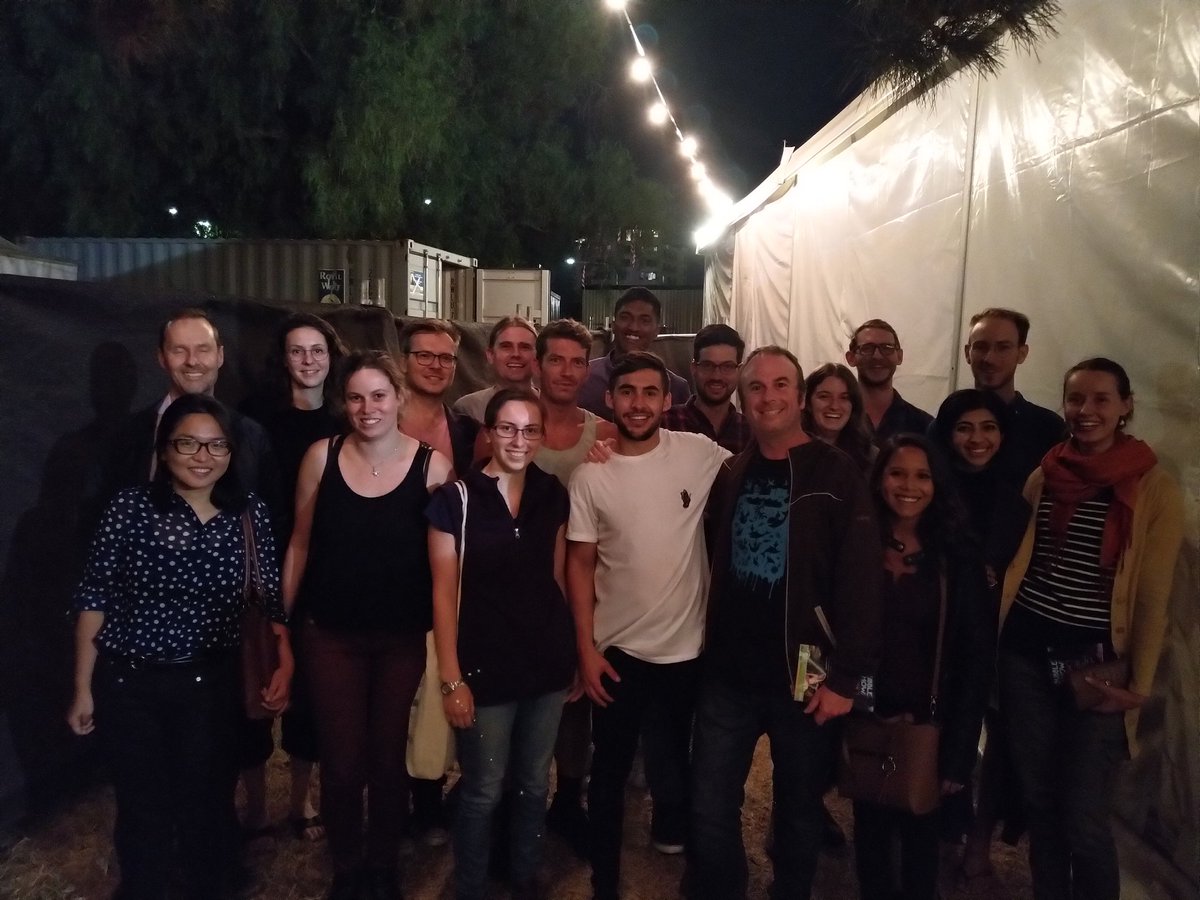
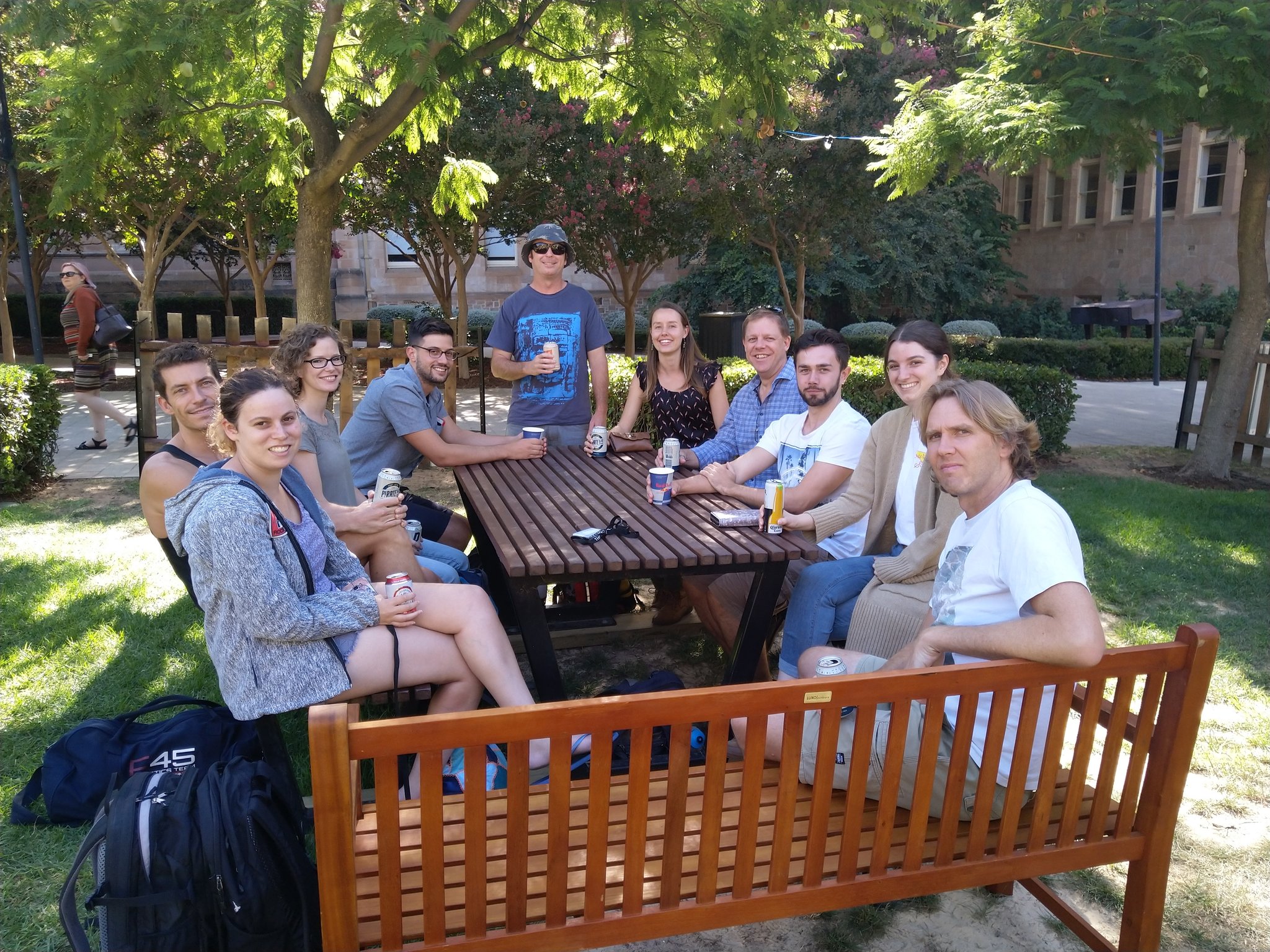
Phill, Jack and Sarah had a great week teaching the Ecology III Field Course at Calperum Station before Easter. The next few months will be very busy with the Environmental Biosecurity Roundtable in Canberra, and the NZ Bioheritage " ‘Crazy and Ambitious’ National Science Challenge meeting in Wellington. In June Katie, Adam and Phill will be attending the Australian Biosecurity Symposium on the Gold Coast.
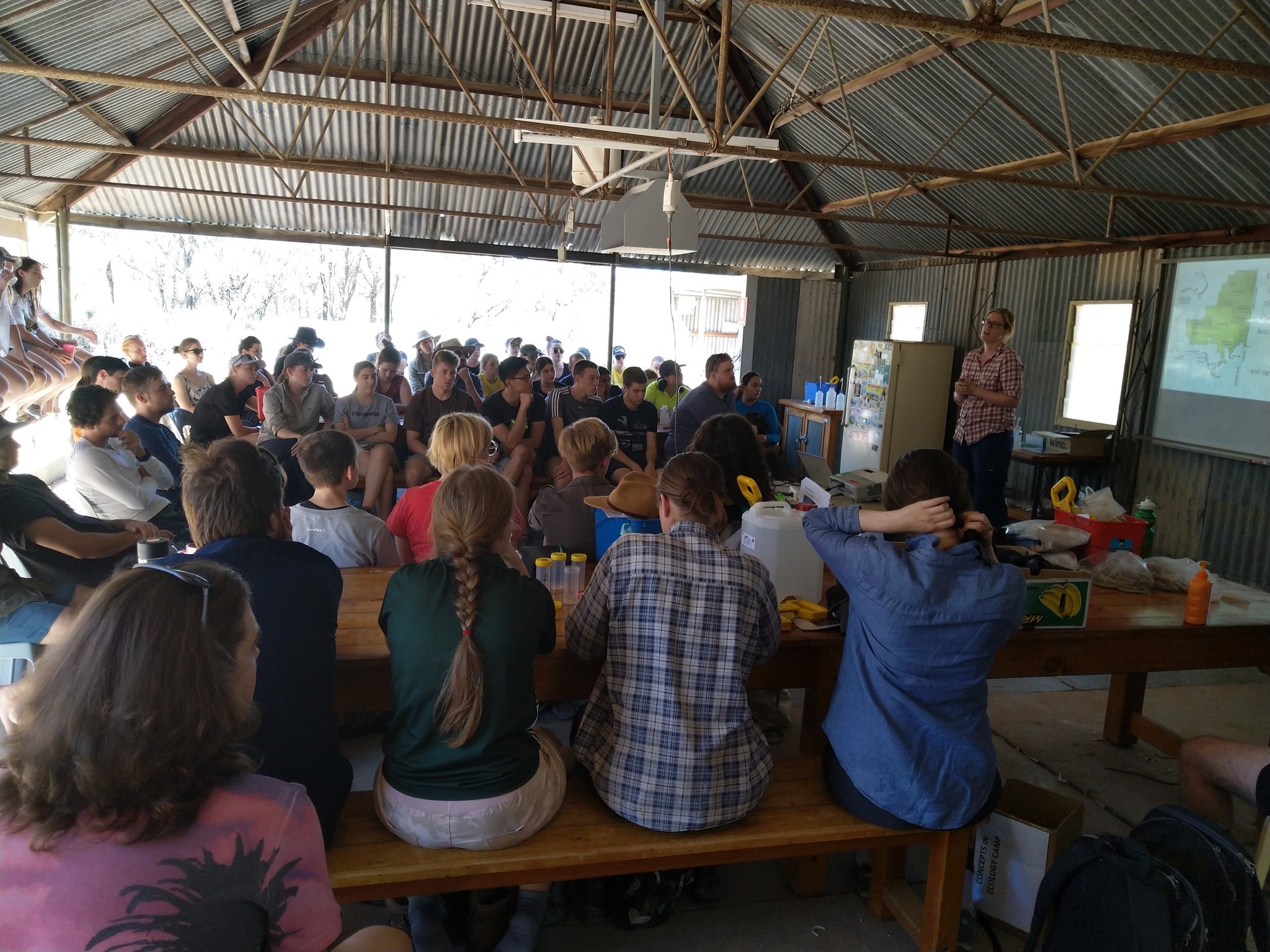
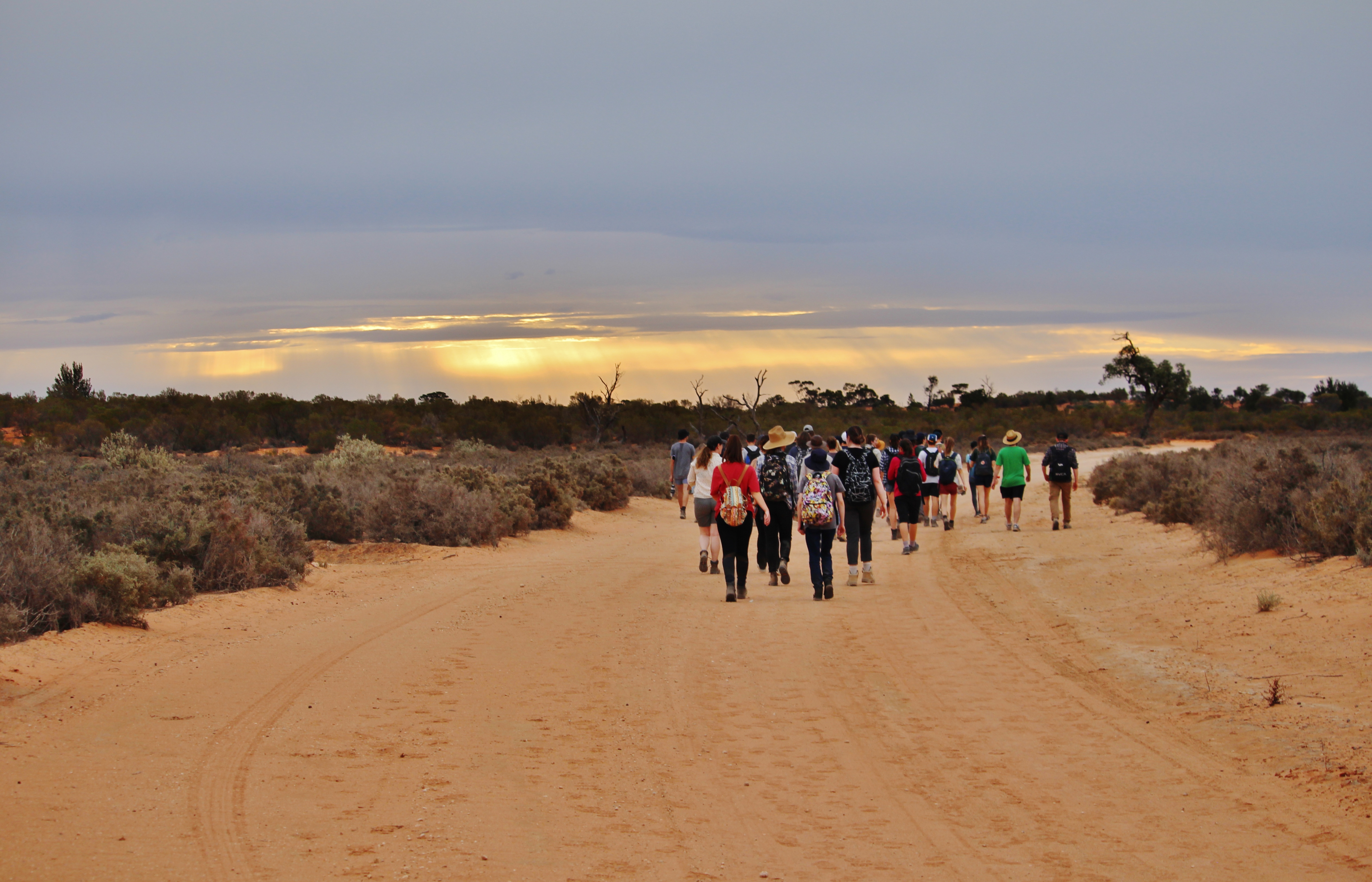
Students at Calperum Station South Australia (left); Photo Credit: Darcey Whittaker (right)
Lab News | December 2018
End of Another Great Year
The end of the year is always a busy time, and 2018 was no different for the Invasion Science and Wildlife Ecology lab.
Phill and Adam presented at the October NSF National Socio-Environmental Synthesis Centre (SESYNC) working group in Annapolis, MD, USA. The workshop focused on linking trade, biology and pet owner decisions to the risk of vertebrate invasions, and has stimulated a variety of ongoing collaborations among the invasion biologists and social scientists, all from a diversity of backgrounds and institutions. Adam then attended the Repticon show in West Palm Beach, FL as a preliminary effort to gauge overseas demand for Australian reptiles. Adam had the opportunity to speak with Florida hobbyists, family run pet stores, and larger scale captive breeders, in order to better understand the economic and cultural motivations behind reptile trade participation. Some of the species available are seen below including: a hatchling green tree python (Morelia viridis) native to North Queensland, New Guinea and Indonesia;and a red-eyed crocodile skink (Tribolonotus gracilis) which is endemic to New Guinea.
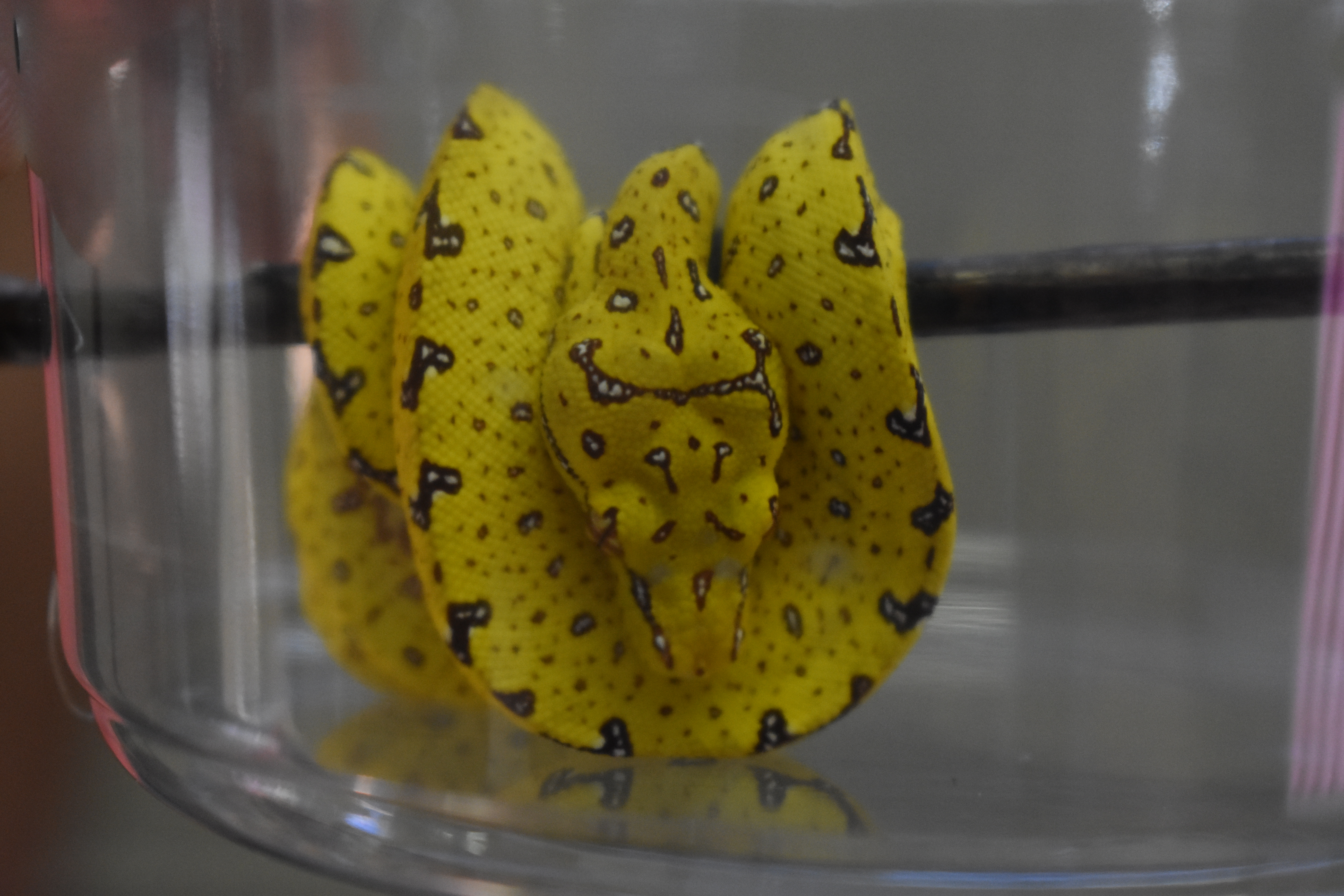
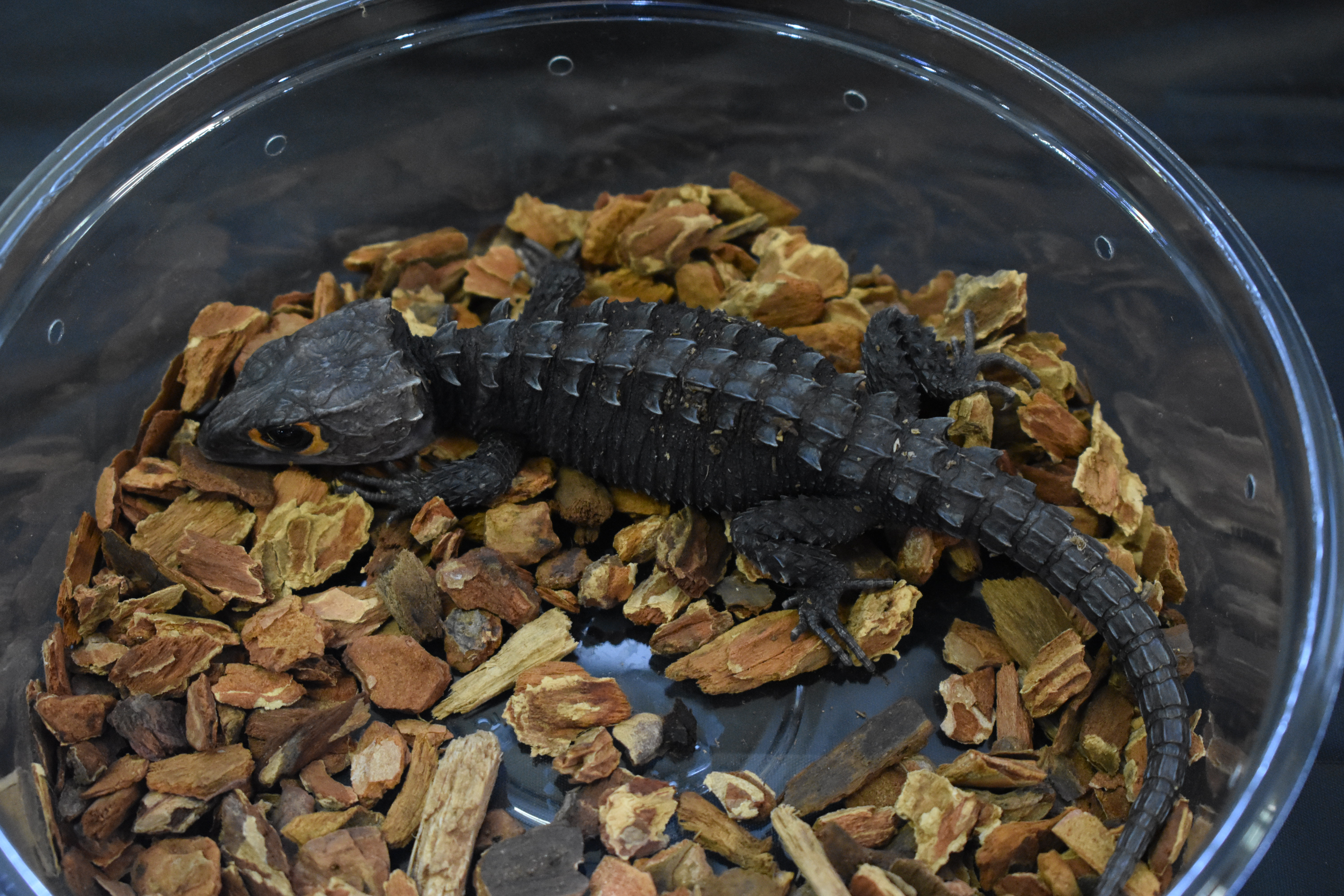
In November Phill, Tom, Josh, and Paul Thomas all attended the Fenner conference on the environment: ‘The use of gene drive technology in conservation’, at the Australian Academy of Sciences Shine Dome, in Canberra. Organised by Vicki Thompson from University of Adelaide, this was a fantastic opportunity to debate the possibilities offered through genomic editing for innovative pest control. It was also a chance to catch-up with some old lab friends!
The Centre for Applied Conservation Science, for which Phill is director, welcomed Bridget Kennedy the Senior Development and Program Manager of Conservation International (CI) Asia-Pacific division and Semsi Meo a Senior Scientific Officer for CI Fiji. Together they provided information on the CI Fiji program ‘Ridge to Reef to Ocean’ conservation approach, which collaborates with local communities and government. Excitingly, the Lau Seascape Rapid Biodiversity Program is the Centre’s first flagship collaborative project between CI and the University, which aims to collectively gather data to understand the biodiversity, and natural resources of the Lau Islands with a view to long term, integrated protection of the area in partnership with local communities.
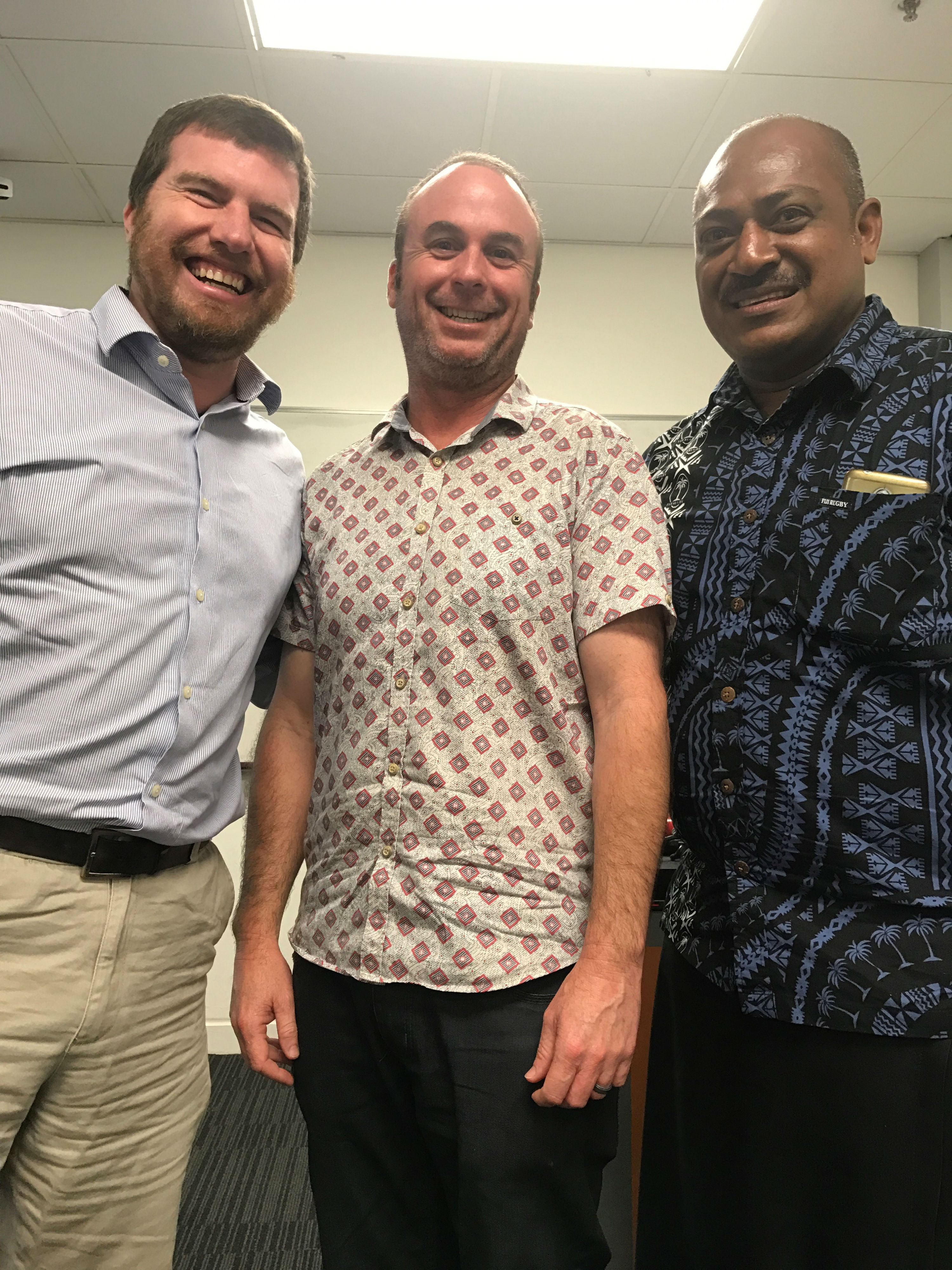
Professor Kristofer Helgen on the left, Phill in the center and Semsi Meo on the right
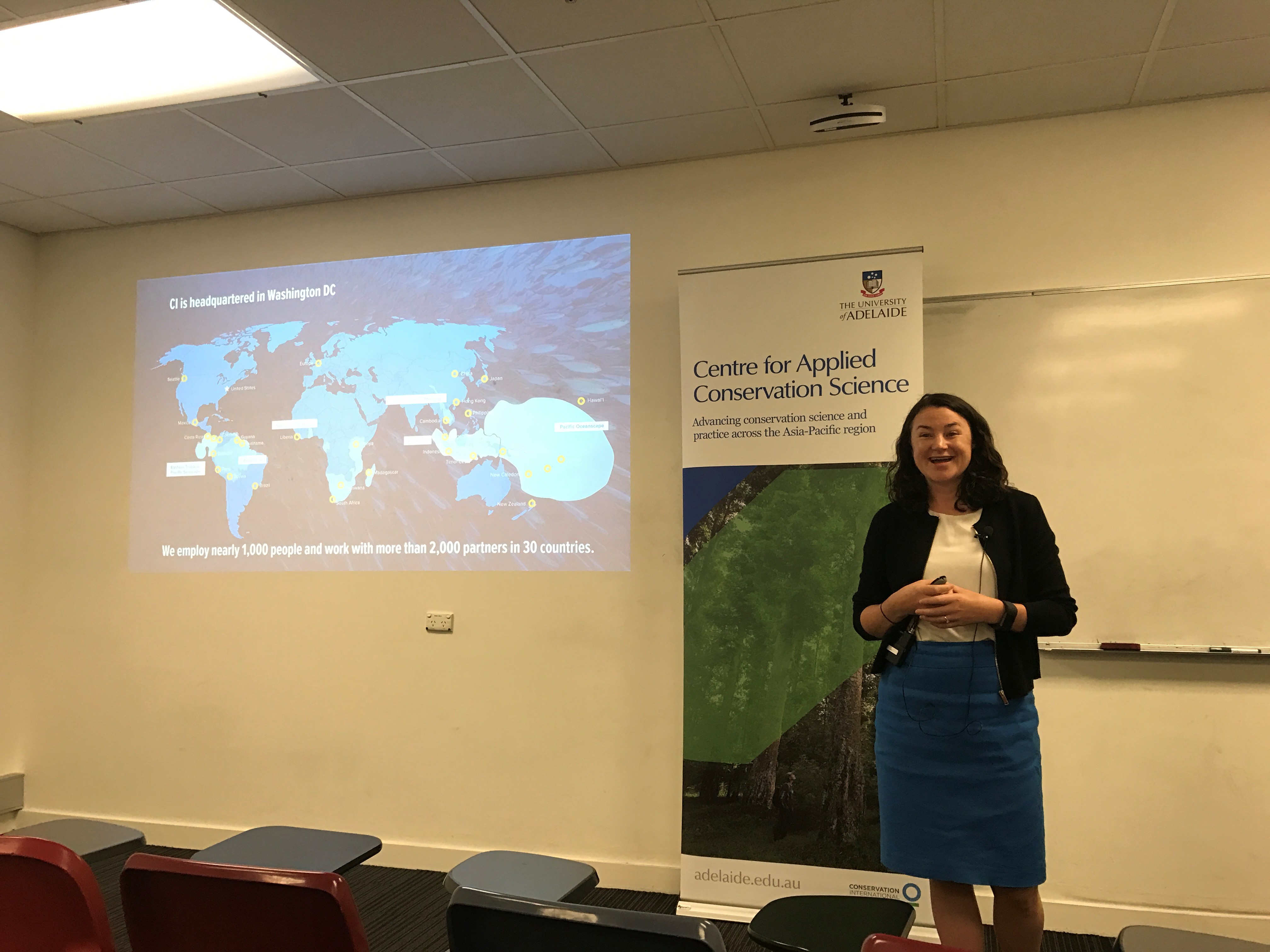
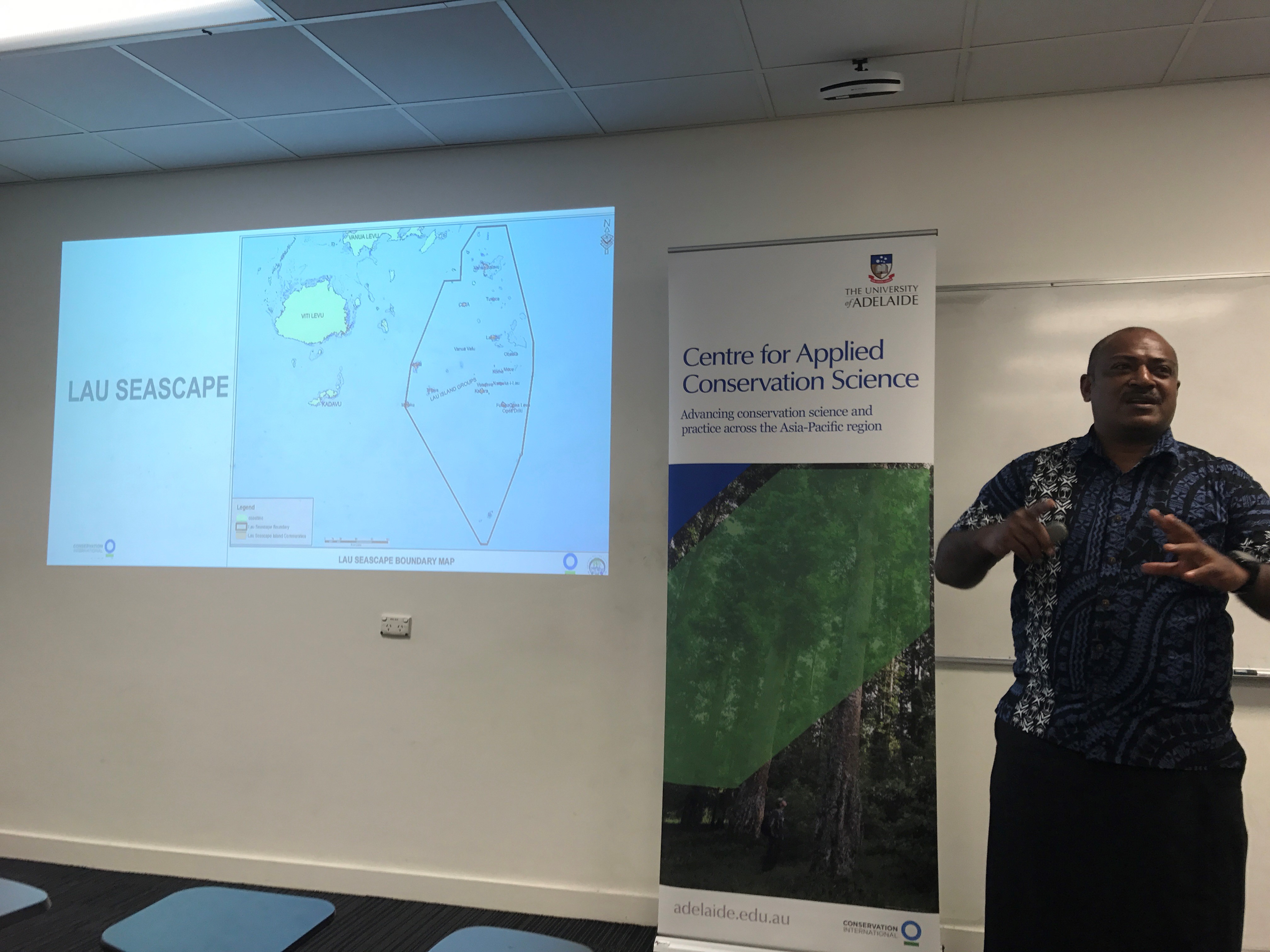
Many congratulations are in order as Aurelie and Katie successfully complete their honours candidature while Amy Iannella proudly submitted her PhD thesis on Investigating the role of rabbit and virus genetics in the development of resistance to rabbit haemorrhagic disease virus (RHDV). Shannon Lauchlan has left Adelaide with her husband, and is continuing her PhD remotely, writing her thesis from the beautiful landscape of Ireland. We wish them the very best on their new adventure.
Our lab manager Talia, with her partner Chris, have welcomed to the world a beautiful little boy. We’re happy to welcome Miss Nadia Meakin to the lab where she will assist with Talia’s role and provide administration support to the Centre for Applied Conservation Science. Nadia completed her honours in science at the University of Adelaide in 2013, and has a background in science, communication and management.
Phill and Justin Brookes dusted off their aprons to fire up the BBQs for the Department of Ecology and Evolutionary Biology Christmas party. With the sun shining, we gathered a wonderful number of our staff, students and academics. Our lab Christmas had us ten pin bowling followed by drinks and dinner at the Alma pub.
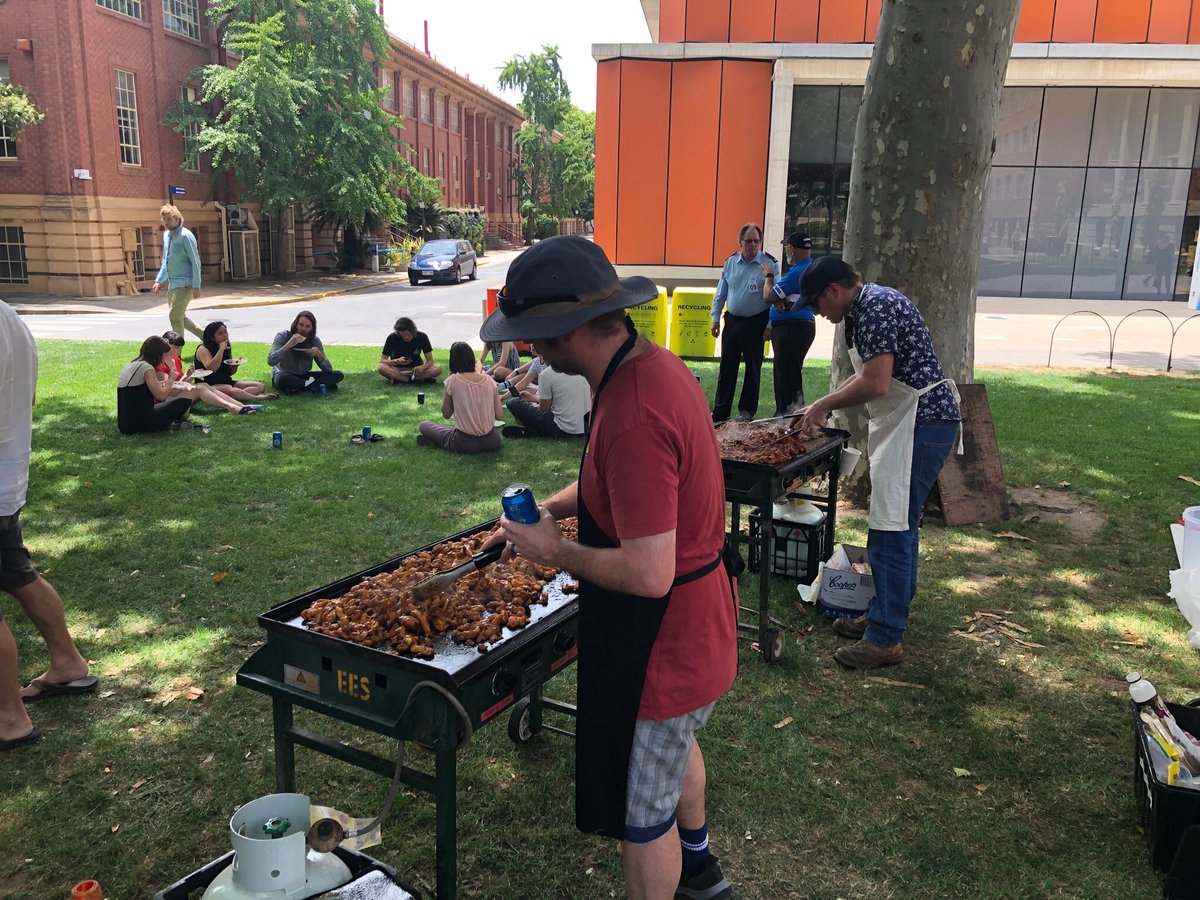
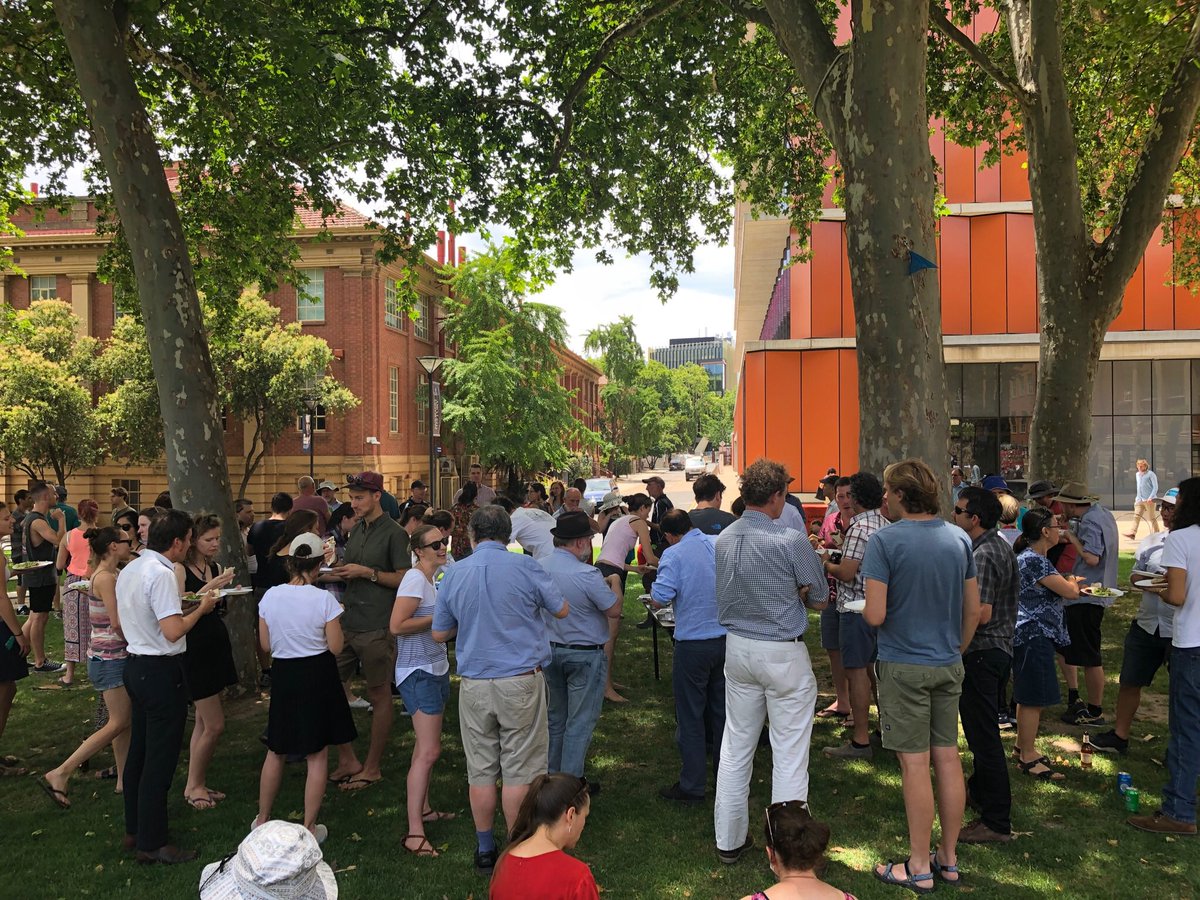
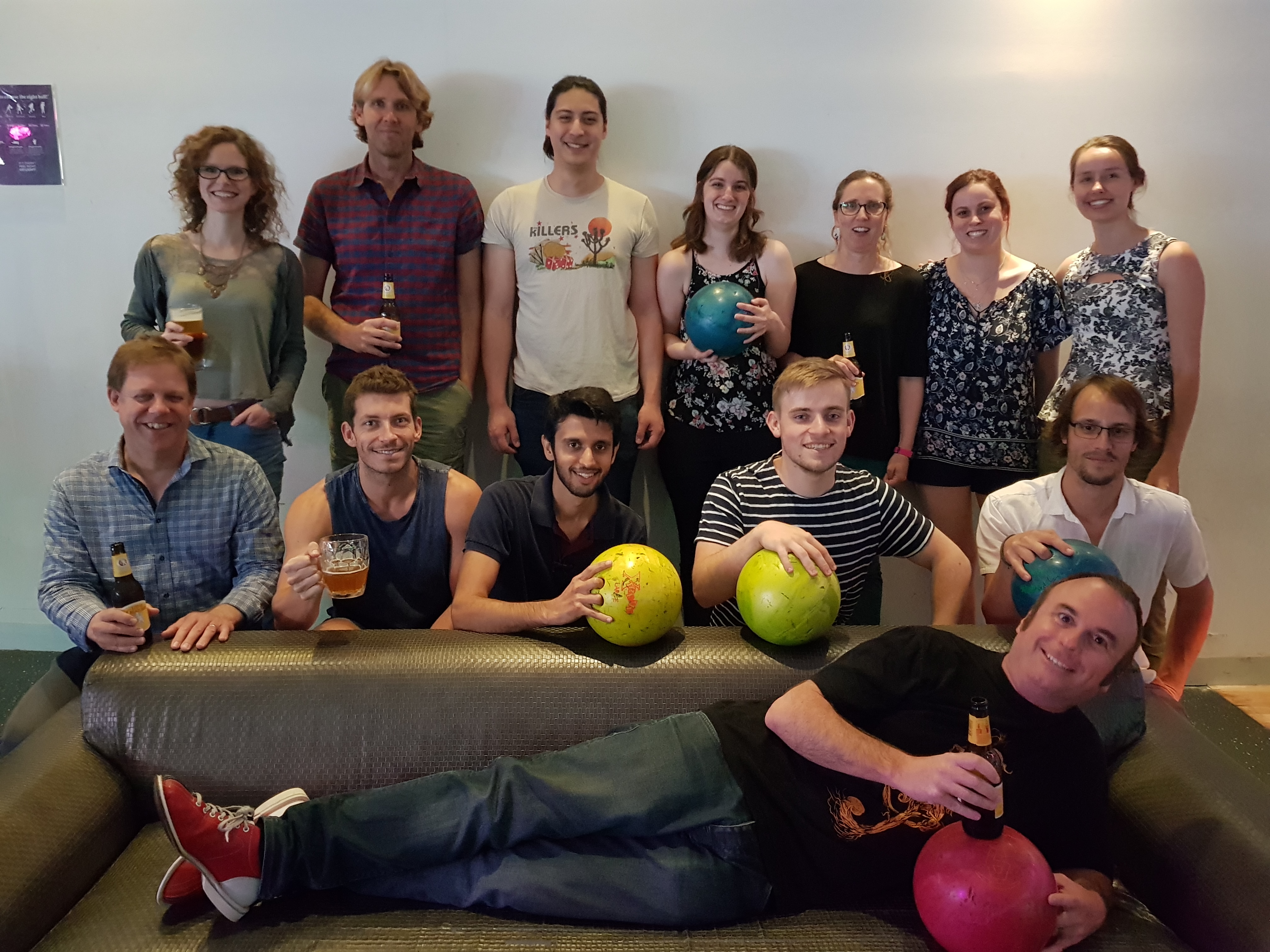
Now that we are back from our Summer Holidays we look forward to welcoming our new staff and students to the lab and commencing an action-packed year!
Lab News | September 2018
We are excited to announce that we have appointed a Postdoctoral Research Associate for our Centre for Invasive Species Solutions project on understanding and intervening in illegal trade in non-native species. Oliver Stringham (from Rutgers University, NJ) will commence in January 2019, and we look forward to welcoming him to the team.
Phill will be attending the Research, Development & Extension Portfolio Innovation Showcase with the Commonwealth Department of Agriculture and Water Resources and the Centre for Invasive Species Solutions in Canberra later this month.
In October, Phill will be heading to Conservation International’s Global Science Priority Setting Meeting in Washington DC and Adam will be joining Phill for the final Linking Trade, Biology, and Pet Owner Decisions to the Risk of Vertebrate Invasions workshop with the National Socio-Environmental Synthesis Center in Annanapolis, Maryland.
Our PhD student Adam recently gave a great talk on his PhD research at the school of biological sciences seminar series and he has also been busy volunteering with the SA Herpetology Group at the Science Alive SA event to teach kids about Australian amphibians and reptiles. We would also like to congratulate Adam for being awarded the Bill Retalic Prize for Science and Justice to support his PhD research project.
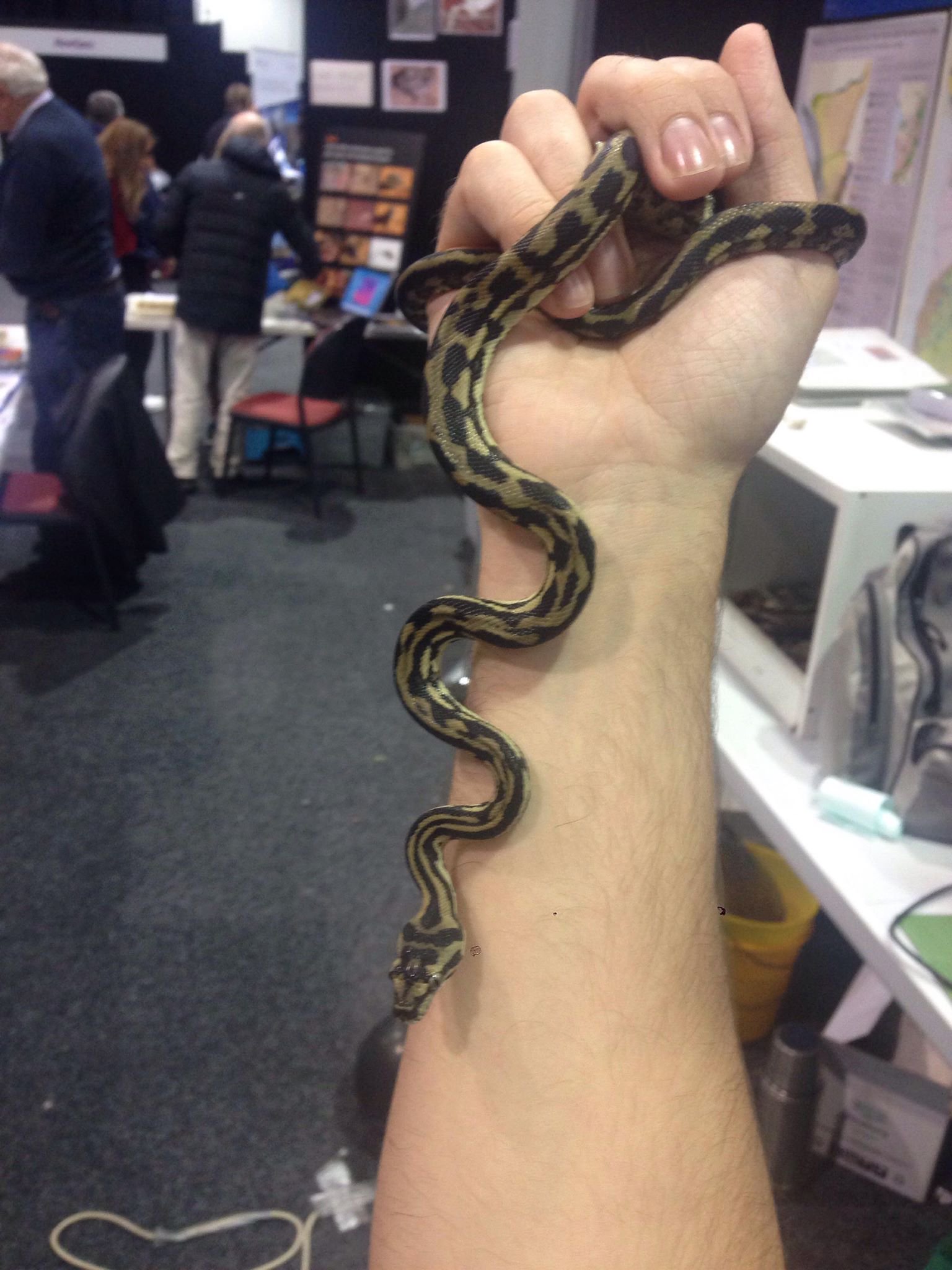
Adam holding a Jungle python (Morelia spilota cheynei) at Science Alive SA.
Sarah gave a great talk about wildlife crime and pangolins for National Science Week at the University of Adelaide as part of the “Game Changers in Science". Sarah will also be busy travelling to London next month for the Evidence to Action: Research to Address Illegal Wildlife Trade Conference.
Phill, Adam, Jack, Sarah and Bowie recently completed their second-year Ecology Frahns Farm Field Trips, where students conducted a series of surveys to start a long term monitoring program of the site, with the objective to document ecological changes as the site is restored.
We would like to congratulate our former PhD student Toni Dalziel for her outstanding efforts and her upcoming graduation event at the University of Adelaide later this month.
We are excited to share some of our new papers, ‘Transport pathways shape the biogeography of alien freshwater fishes in Australia’ and ‘Remoteness promotes biological invasions on islands worldwide’ with our colleague Pablo García-Díaz.
Lab News | July 2018
Centre for Applied Conservation Science
The lab has a very busy travel itinerary this month! Phill has just returned from a successful meeting with Conservation International in Singapore to discuss the succession of the Centre for Applied Conservation Science. From 1 July 2018, Phill will succeed directorship of the Centre for Applied Conservation Science (established in 2016). Phill intends to develop the Centre as a research hub for global conservation of biodiversity, and to continue to fulfil the Centre’s mission to foster and coalesce engagements between The University of Adelaide and Conservation International.
Phill and Sarah have been to Cambodia this month for the 'Deep Water, Deep Jungle' study tour, where students were immersed in a 13 night experience researching tropical conservation ecology and environmental crime in South Eastern Asia.
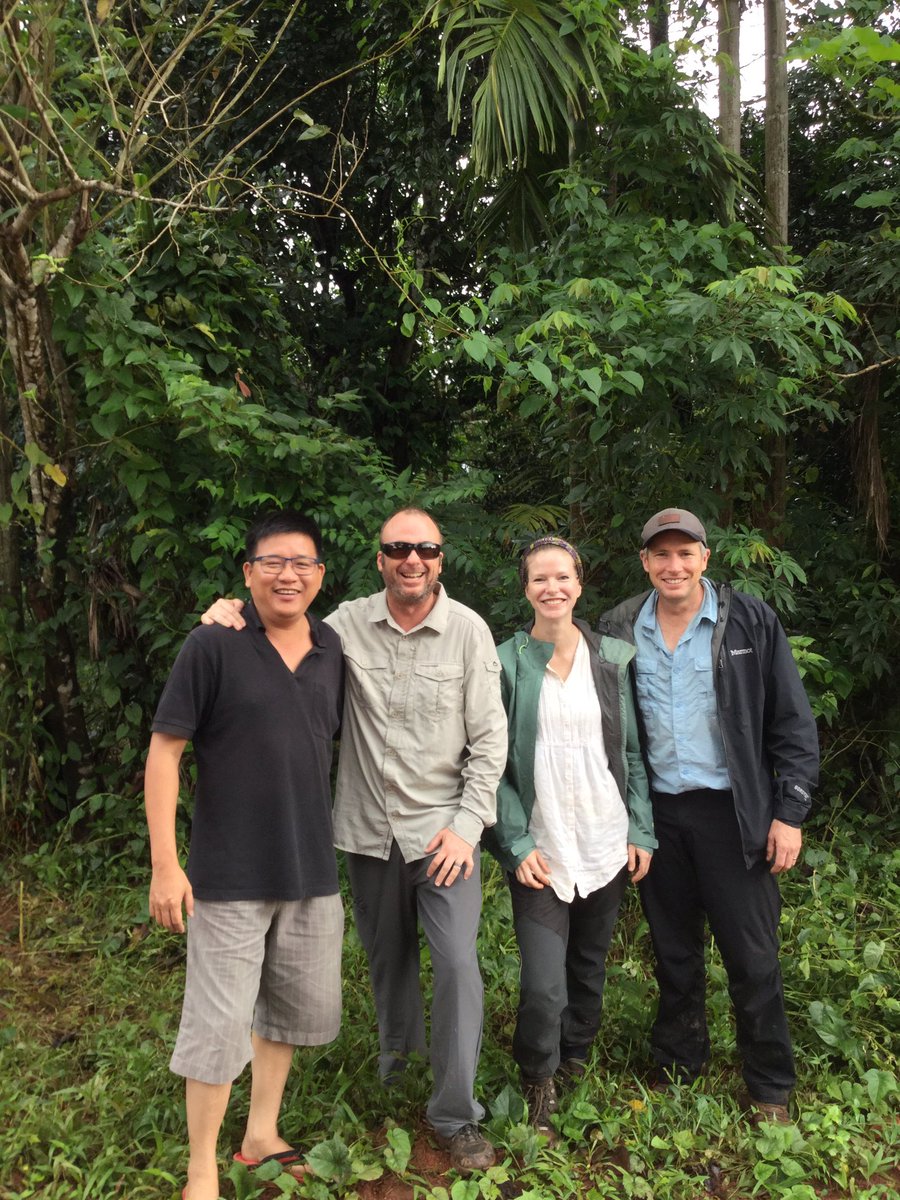
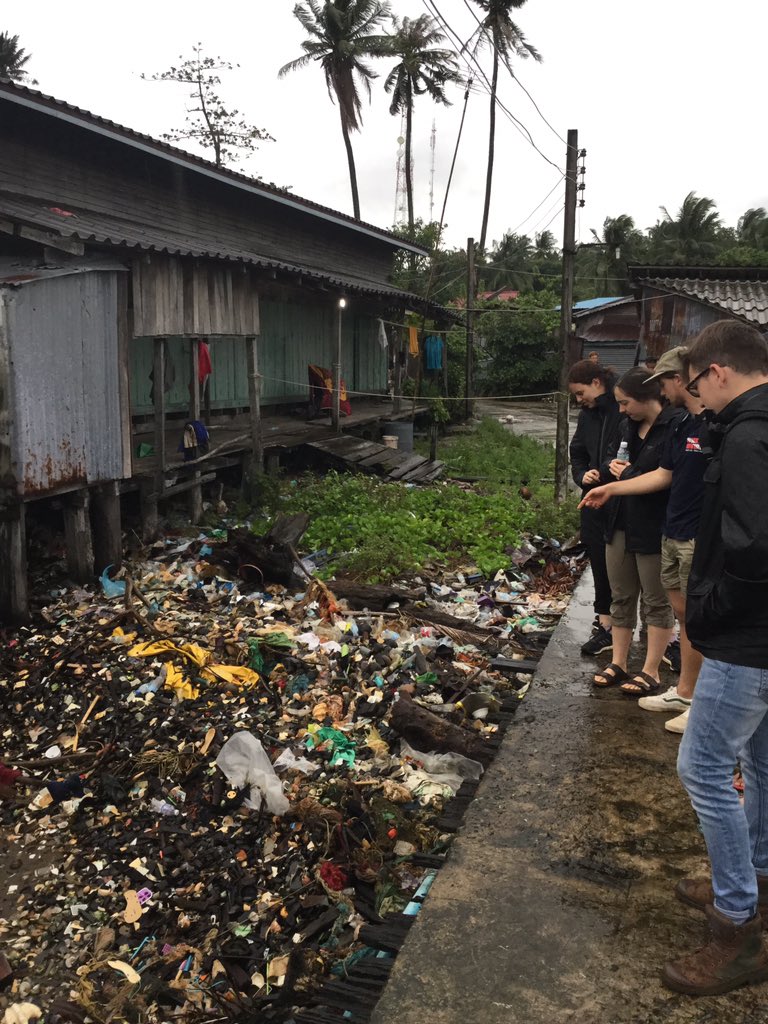
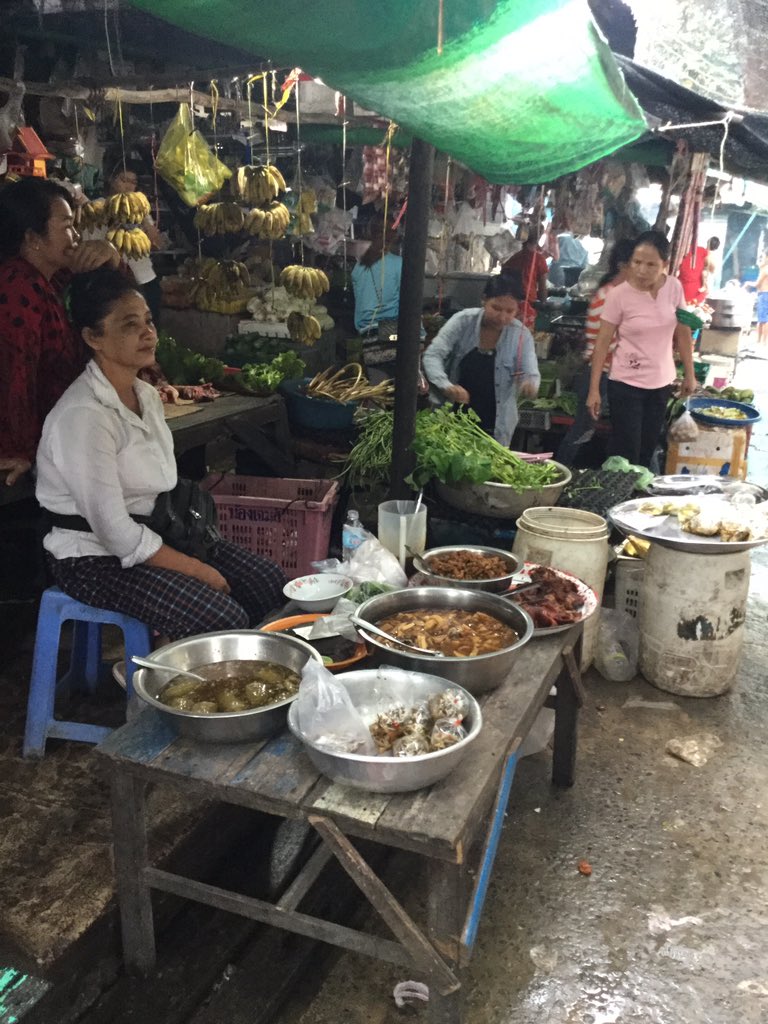
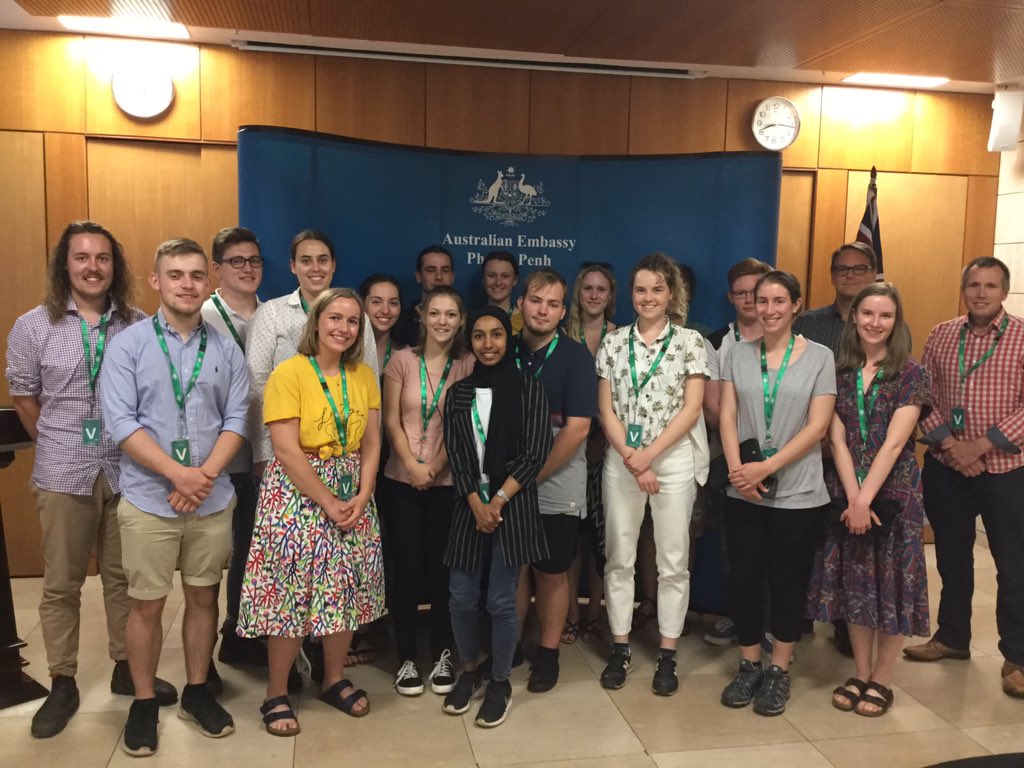
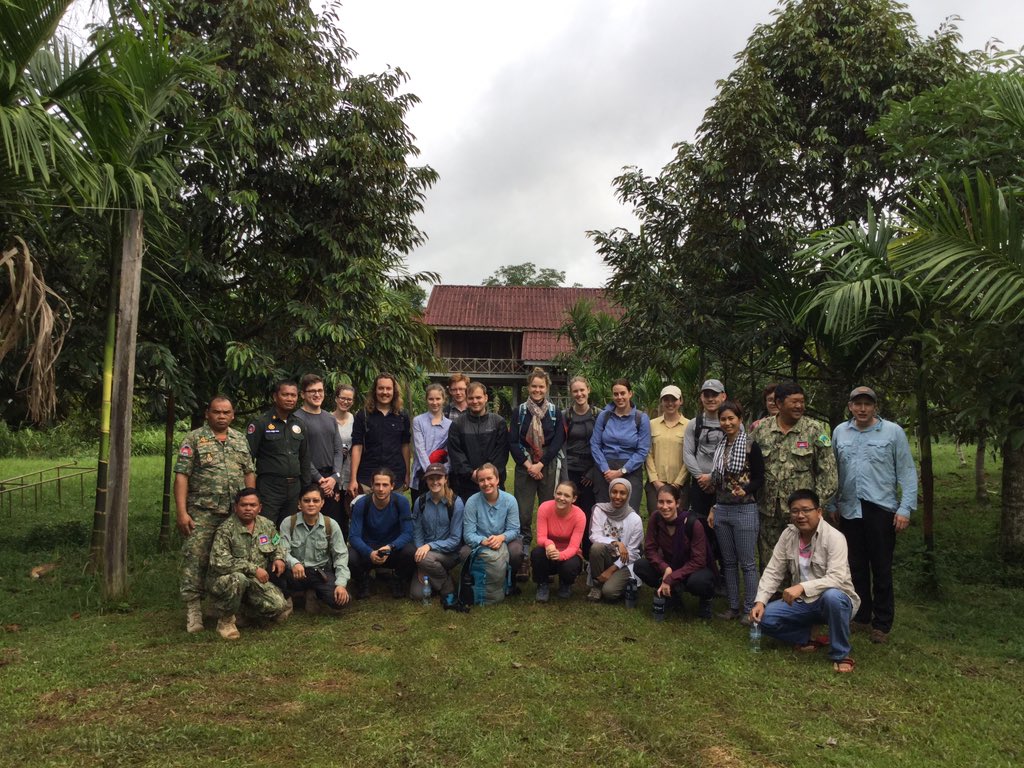
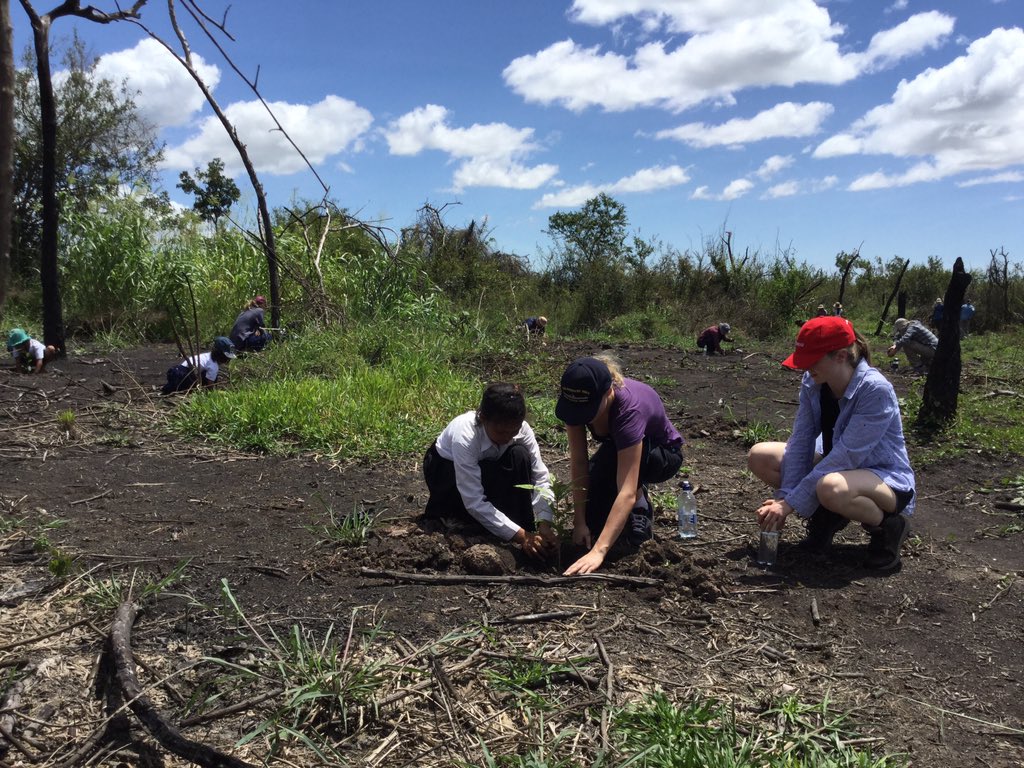
Tom and Adam have been to Wellington, New Zealand to attend the Society for Conservation Biology 5th Oceania Congress, and Aurelie has just completed a successful data collection trip to the Australian National Wildlife Collection – CSIRO in Canberra for her honours project on variation in dingo skeletal morphology. Aurelie also recently published a paper in Transactions of the Royal Society of South Australia on Reproductive ethology of the Fijian predator-inquiline wasp Pseudofoenus extraneus.
We are excited to share our new paper ‘Effects of sampling effort on biodiversity patterns estimated from environmental DNA metabarcoding surveys’ with our colleague Thomas Prowse.
Katie has been busy working on her honours project developing procedures to accurately determine the time, relative to lifespan, that wildlife specimens have either: (i) been in Australia; or (ii) at-large in the environment. To date she has obtained nine red-eared slider turtles of various provenance from the Australia Museum and Queensland Museum. She has prepared bone and scute samples from each of these individuals and has conducted preliminary isotopic and ablation laser analyses. Two more individuals that were recently seized by PIRSA from an Adelaide backyard are currently being prepared for sampling.
Phill hosted a Q&A event on ‘Dealing with and responding to public and political scepticism in science' for the BSc Advanced first-year course. The event was a great success and we would like to sincerely thank all of the panellists, Professor Gus Nathan, Lucy Sutherland, Robert Simms, Dr Joe Milton and Prof Robert McLaughlin. Phill also hosted the BSc Advanced second-year student research review symposium event.
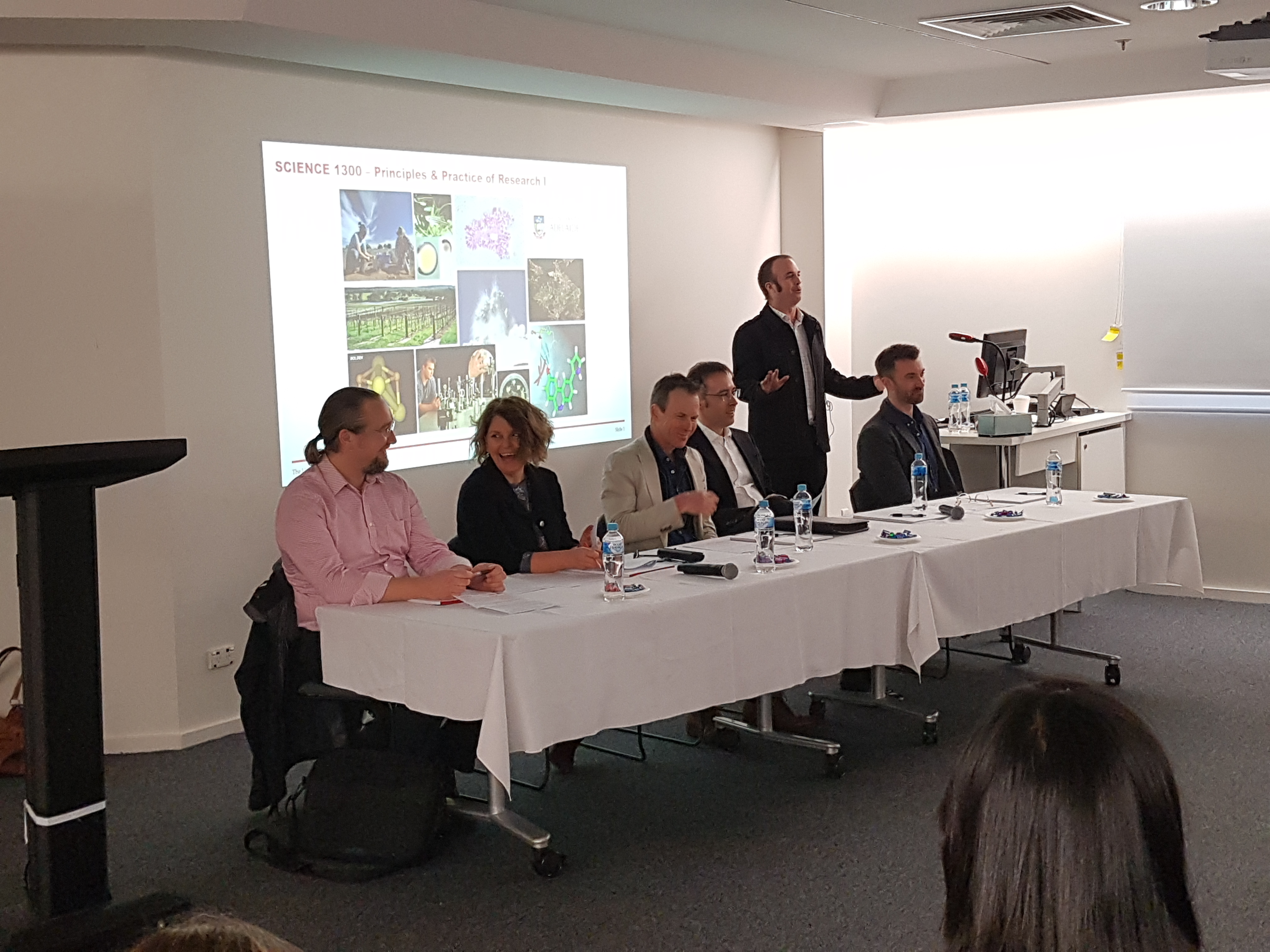
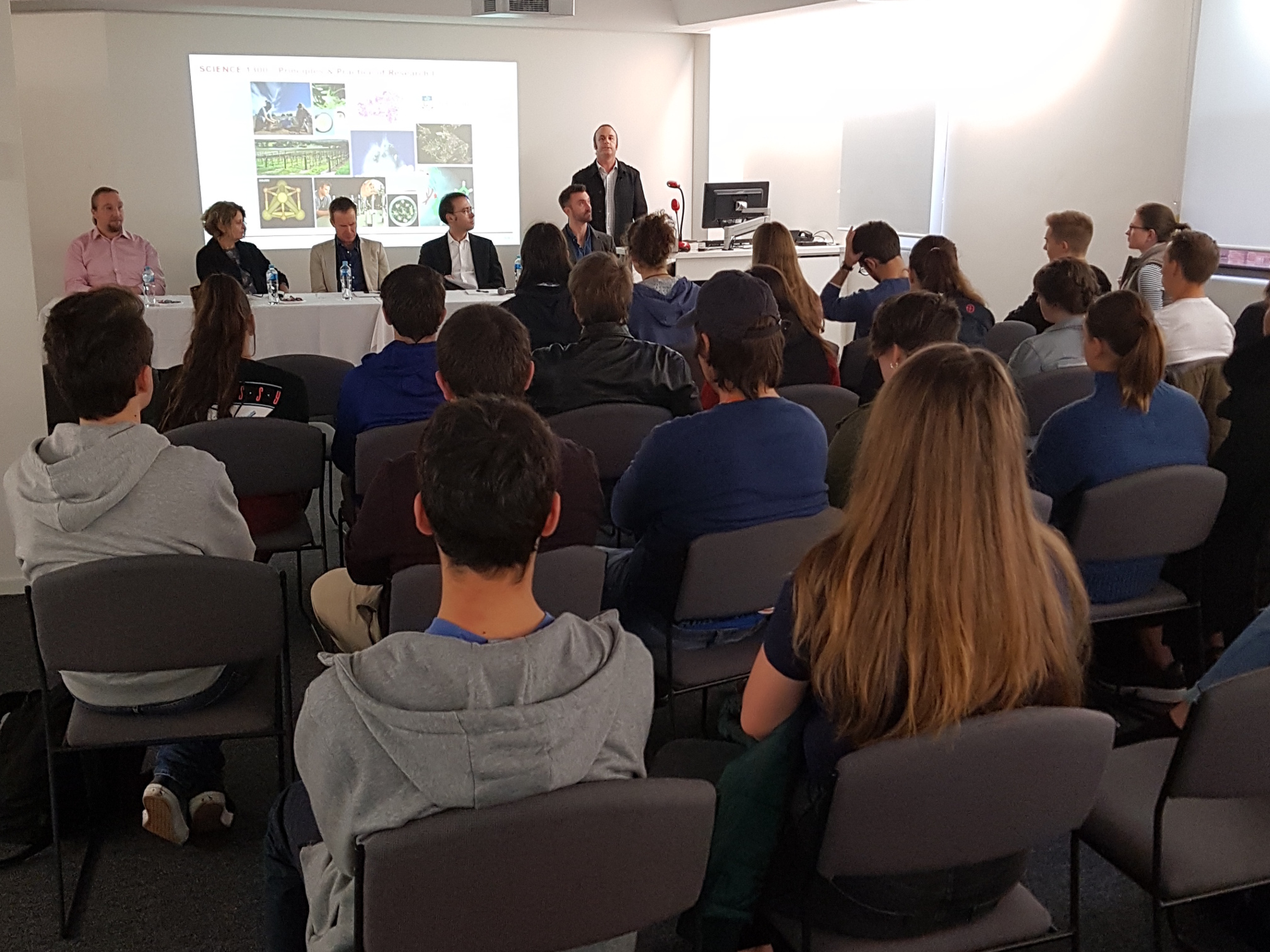
We congratulate Sarah, Jack and Bowie for their three-minute thesis presentations in the School of Biological Sciences Postgraduate Symposium event.
We would like to thank Manuela Fischer who came from the University of Melbourne to collaborate on Jacks dingo resource selection chapter, and we look forward to welcoming more visitors to the lab in the coming months.
Job Opportunity
Interested in mining data from online social media and other web sources to monitor illegal wildlife trade networks?
We currently have a new post-doc job vacancy to work with an interdisciplinary research team in open data and illegal wildlife trade networks.


Apply now! Applications close 26 June 2018.
This exciting, interdisciplinary role is funded through the Centre for Invasive Species Solutions, working across the School of Biological Sciences (A/Prof. Phill Cassey) and the School of Mathematical Sciences (Prof. Joshua Ross and Dr. Lewis Mitchell). In it you will help develop new surveillance methods for mining open source information from both the open and “dark” web, to identify social, temporal and geographic predictors of the distribution of exotic pet keeping and illegal wildlife trade. The project will model the trade information networks constructed from these datasets to best inform the surveillance, compliance and disruption of global illegal pet trade sales and networks.
The illegal wildlife trade (IWT) is currently one of the largest and most prolific global black markets, with a conservative estimated value of US$20-200 billion. Not only does this trade drive unsustainable harvest of wildlife from their native range, but also facilitates global pathways for invasive species and zoonotic diseases. Approximately 9000 wildlife related products are listed for sale on Australian websites per week, many of which do not comply (deliberately or otherwise) with legislation. This project will develop novel surveillance approaches to monitor and characterise online market-place and trade networks, leading to an improved understanding of the drivers of wildlife trade in Australia.
The postdoctoral research position will be based in the School of Mathematical Sciences, in the Faculty of Engineering, Computer and Mathematical Sciences, University of Adelaide. The successful candidate will join the Stochastic Modelling and Operations Research Group (SMORG), which provides a unique setting that fuses theory, computation, and data, to address exciting and important problems in network and social science, across ecology, epidemiology and evolution.
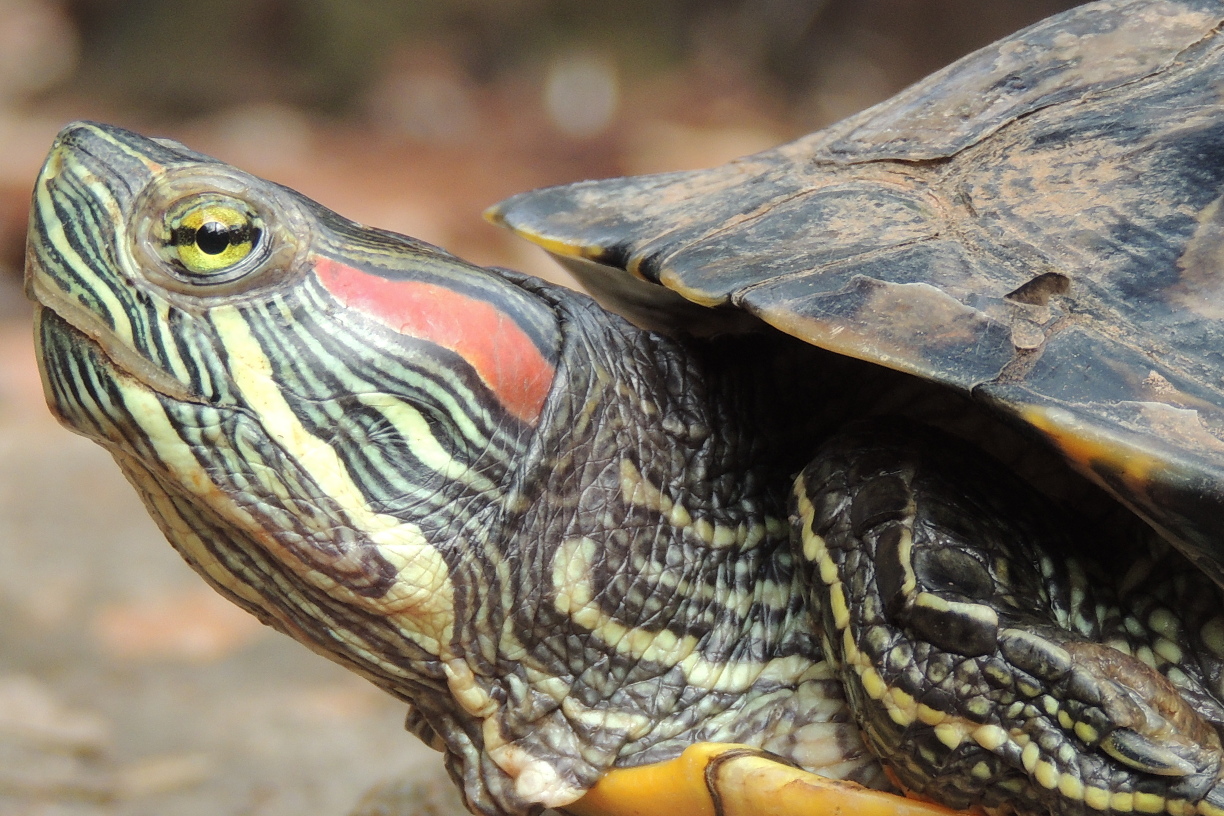
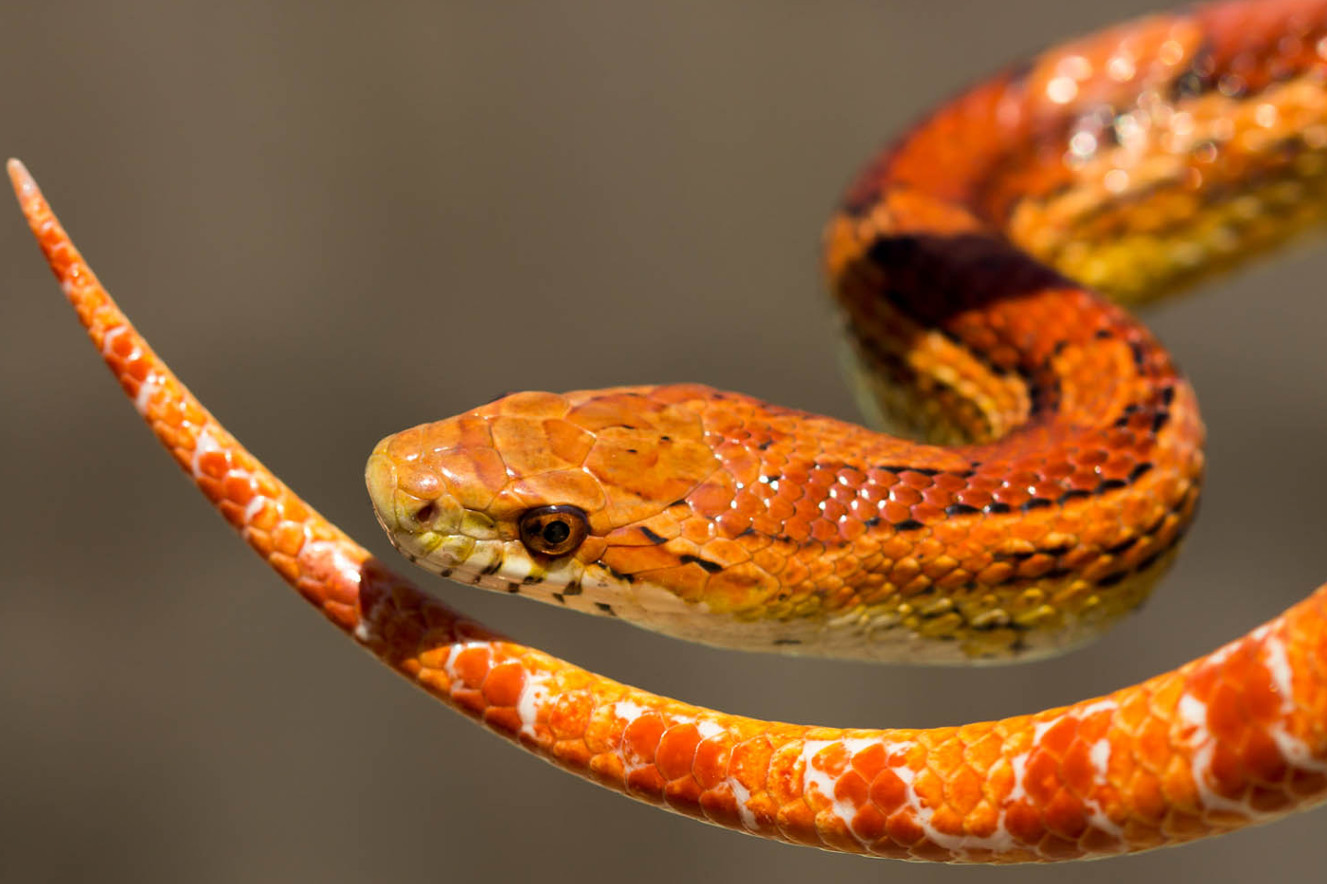
Image credit: Pablo Garcia-Diaz (left); János Krnák | CC BY-ND 2.0 (right)
Apply now! Applications close 26 June 2018.
Lab News | May 2018
Propagule pressure consistently explains establishment success of alien species!
We are pleased to present our new paper in PLOS Biology with Steven Delean, Julie Lockwood, Jason Sadowski, and Tim Blackburn. Our research highlights that propagule pressure consistently explains establishment success of alien species. Our results underpin a clear policy and management target for slowing invasion rates by reducing propagule pressure—ideally to single figures or zero—regardless of any other feature of the invasion.
We also have a new book chapter with Pablo Garcia-Diaz and Tim Blackburn published in CABI Invasives: Invasion Biology - Hypotheses and Evidence. Check out the interactive webpage!
Katie Hill & Kristine Nielson had a great time at the 14th Australasian Environmental Isotope Conference (AEIC) in Wellington, New Zealand. Check out their poster on preliminary isotopic results from our Environment Institute funded biosecurity provenancing project on red-eared slider turtles here.
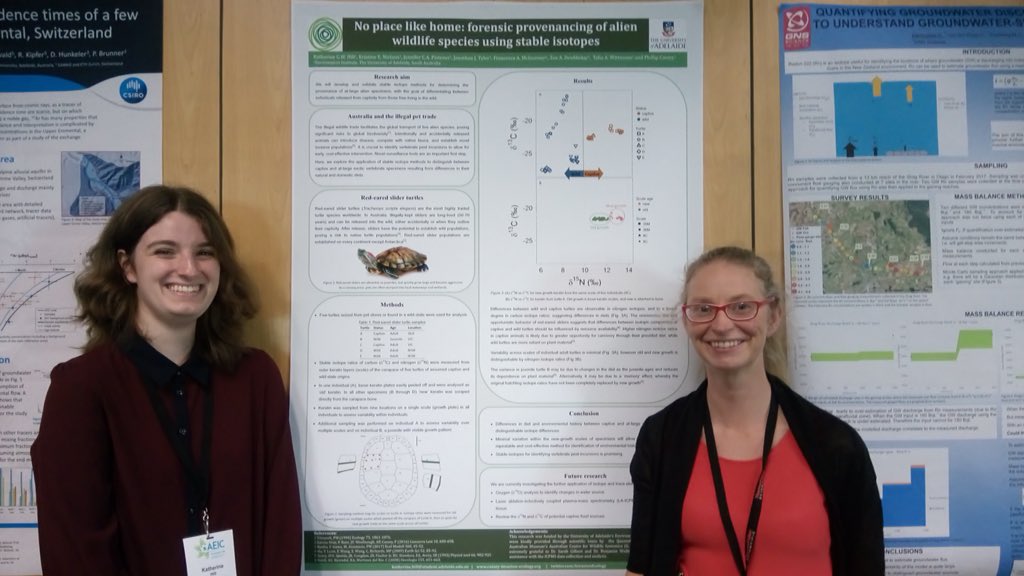
The NRM conference was a huge success! Amy, Katie & Adam all presented talks and showcased the diverse research output from our lab!
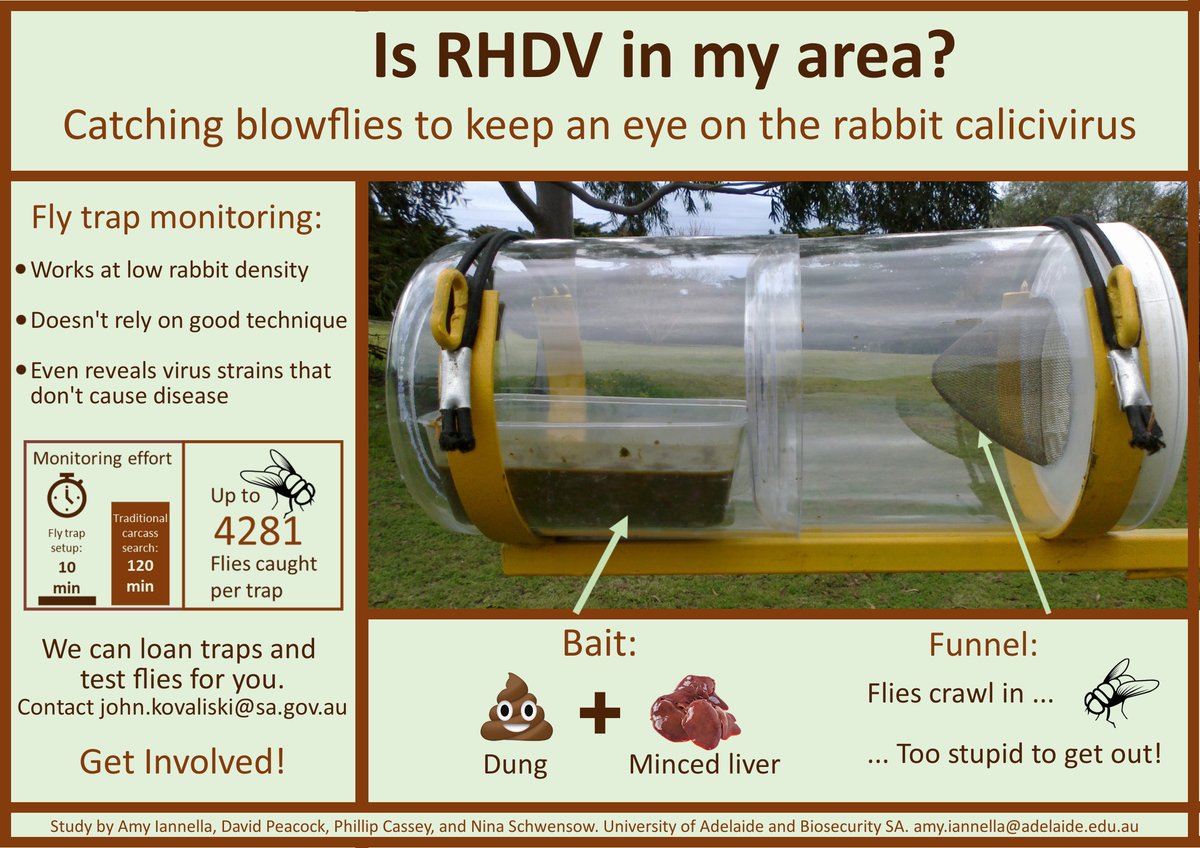
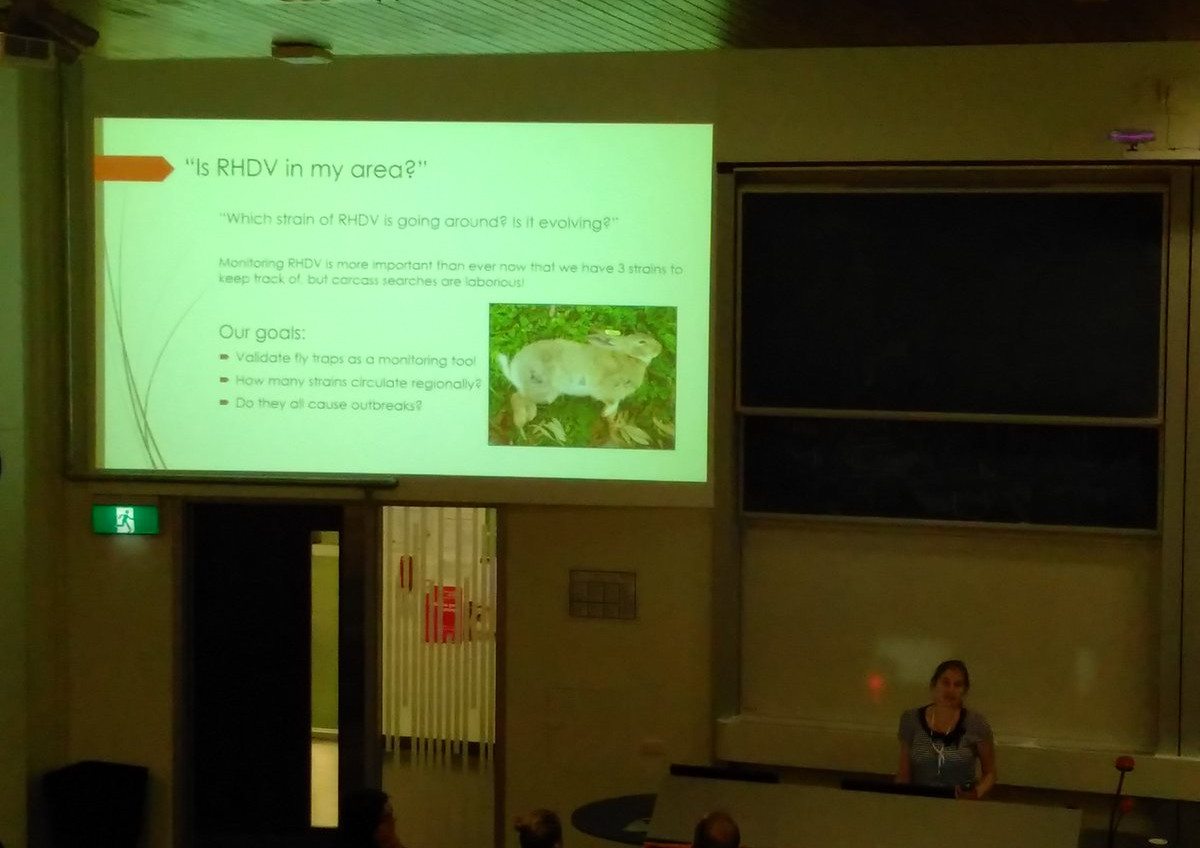
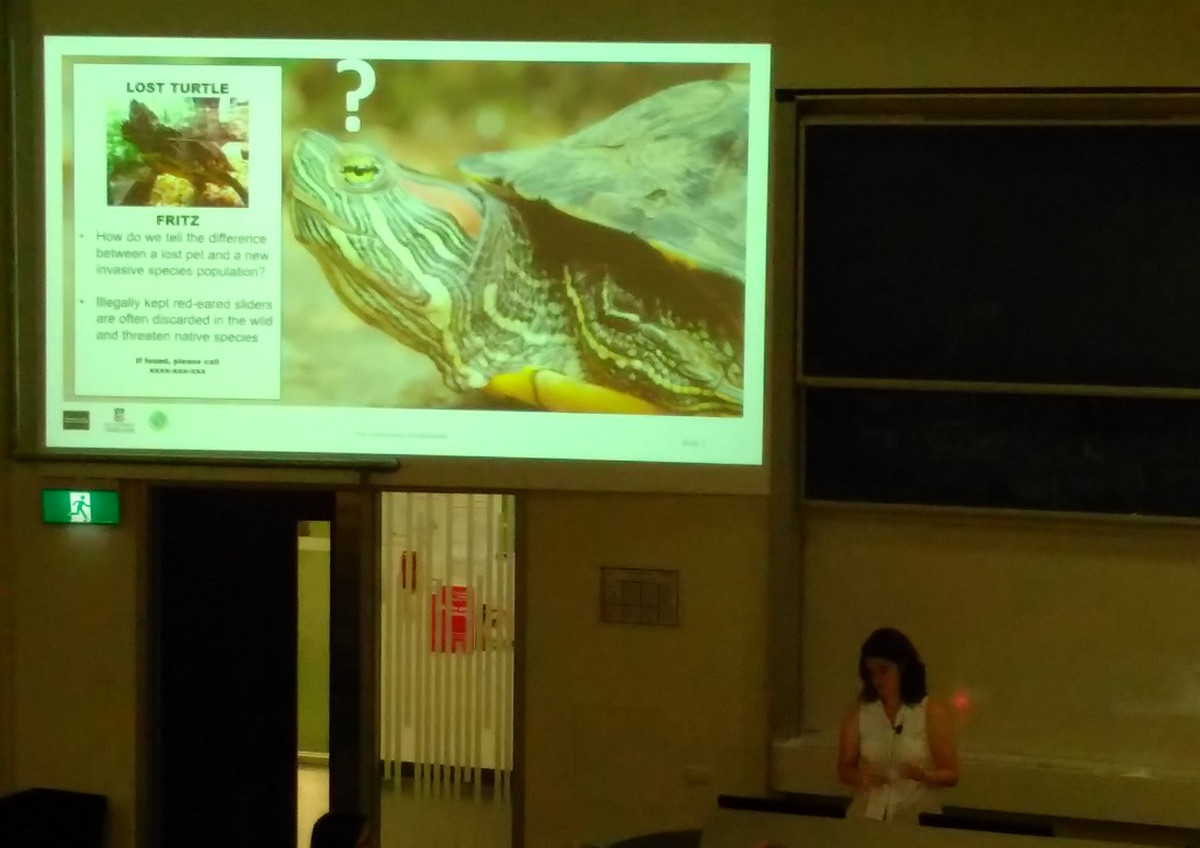
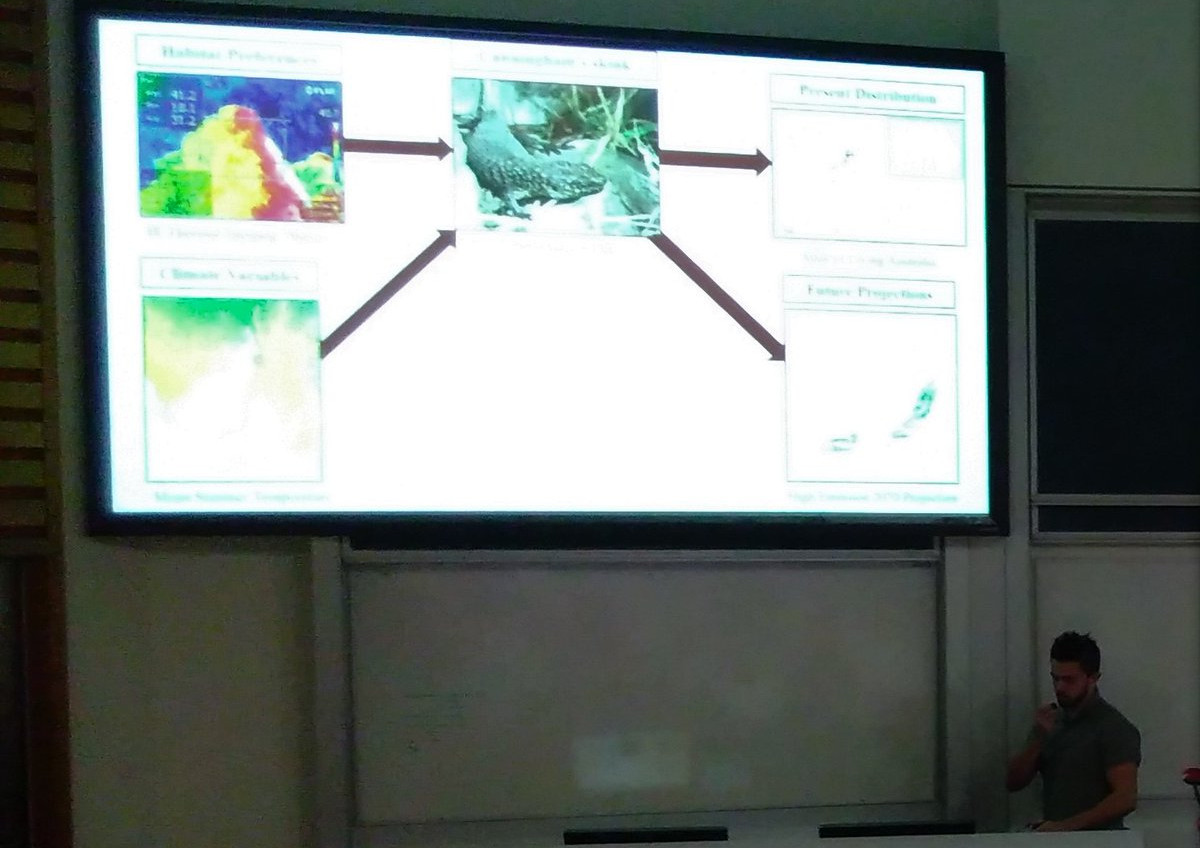
Phill, Jack, and Steve have just returned from a productive field trip to Calperum Station, South Australia with the third year ‘Concepts in Ecology’ students. Jack has also completed his last PhD field trip to Kalamurina Wildlife Sanctuary. He has been investigating how the spatiotemporal movement patterns, resource utilisation and resource selection by dingoes are driven by environmental and meteorological variables. We are excited to see the outcomes of Jack’s research in the coming months!
Phill has been busy teaching his advanced science course 'Principles & Practice of Research’, and was recently in Sydney to meet with our collaborators at the Australian Museum for the preparation of an ARC Linkage proposal later this year.
Phill will be presenting at the Australian Institute of Criminology’s annual meeting on Organised Crime Research this month: “Where did all the Pangolins go? Transnational wildlife trafficking”.
We are very proud of our students for taking home a great collection of prizes at our annual School of Biological Sciences Awards and Graduation event. Adam was awarded the Russell Baudinette Travel Scholarship, Ellen was awarded the Ernest Ayers Scholarship, Jacob was awarded the Michael Smyth Memorial Prize and Pablo was awarded the Postgraduate Achievement Award. They have all worked extremely hard and these awards are very well deserved! We would also like to congratulate Ellen, Adam, Mark and Katie for their outstanding efforts and recently graduating at the University of Adelaide’s May graduations ceremony.
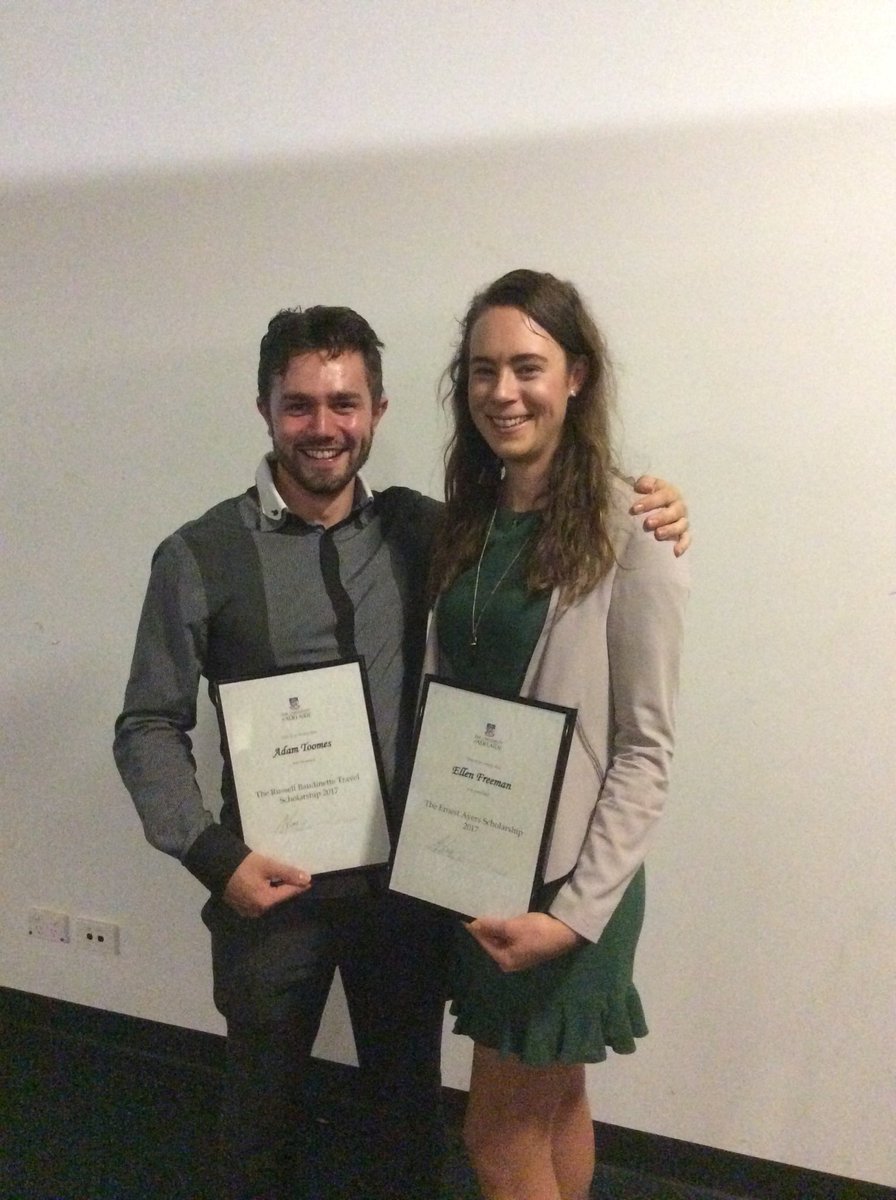
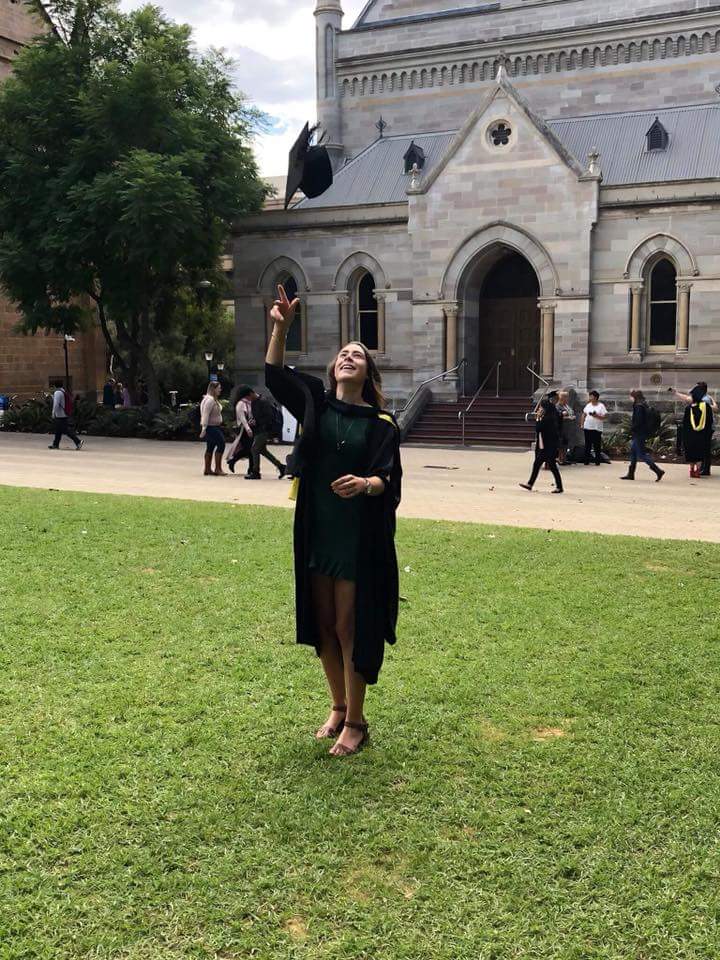
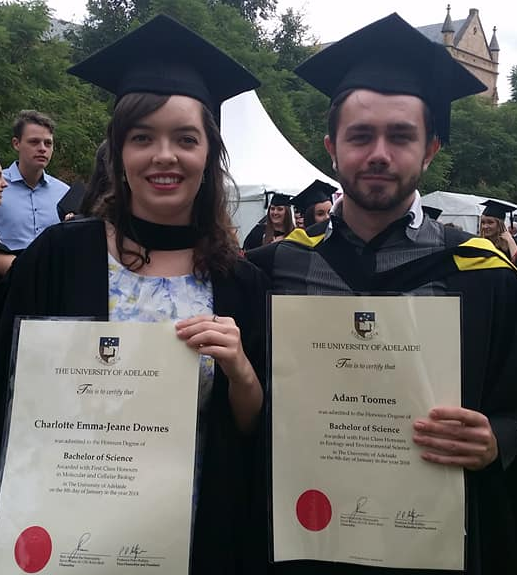
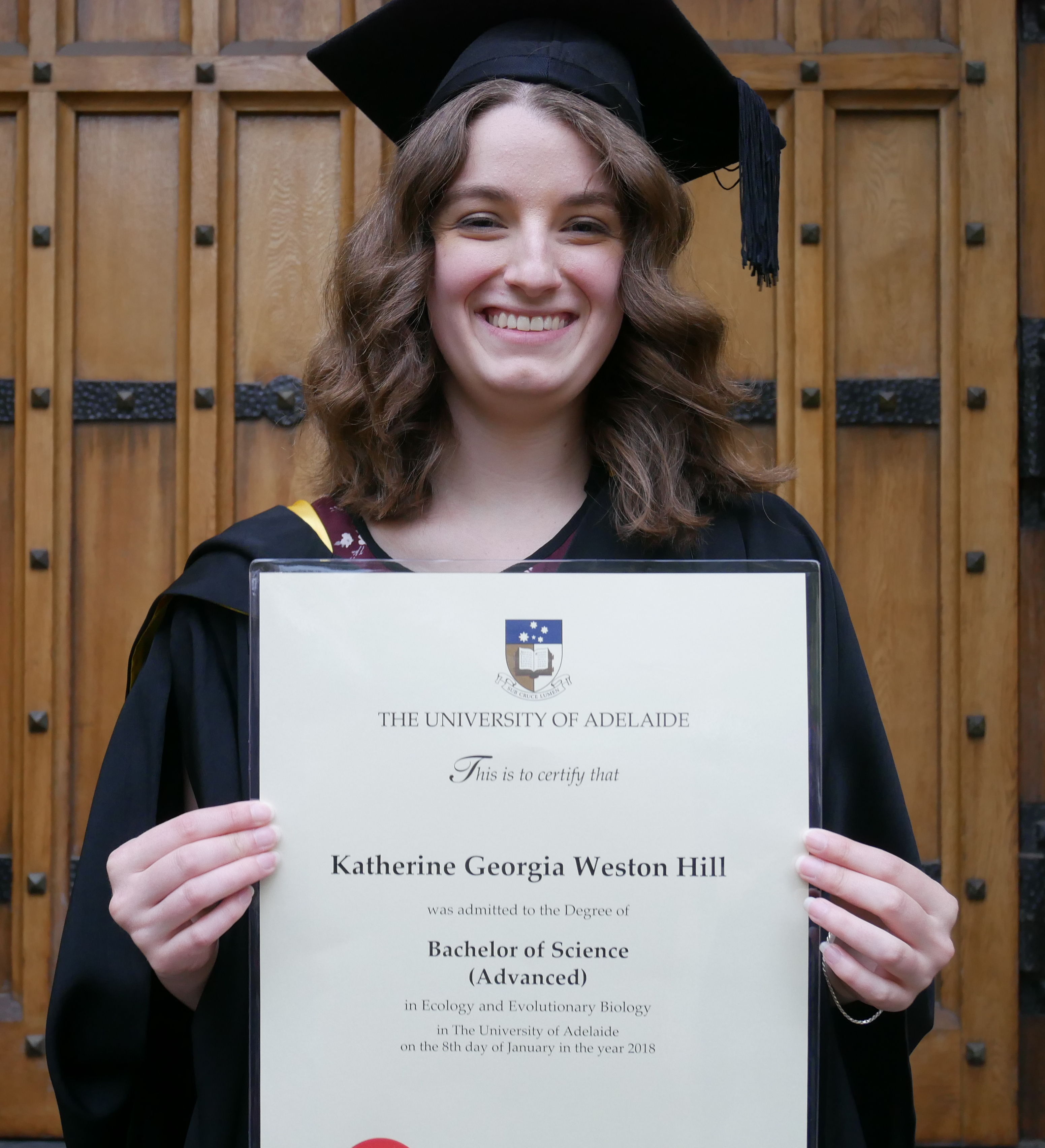
Lab News | March 2018
Centre for Invasive Species Solutions
It has been a great start to 2018 for the Invasion Science & Wildlife Ecology team. We have been busily writing grants, welcoming new students and preparing for the year's teaching and research activities!
Phill has also been busy with Associate Head of the Department of Ecology & Evolutionary Biology duties and we kicked off the start of the year with a welcome BBQ! It was a huge turn out and great opportunity to meet the new students joining the department this year.



We had a great night out for our annual lab group Fringe event, exploring the Parade of Lights on the University of Adelaide’s North Terrace campus, and attending the No Frills Cabaret show filled with circus, acrobatics, comedy and dangerous tricks!
.jpg)
.jpg)
.jpg)
Our new Centre for Invasive Species Solutions (CISS) project on Understanding and intervening in illegal trade in non-native species has commenced and we are currently in the process of appointing a Research Associate to develop new methods for mining open source information from both the open and “dark” web, to identify social, temporal and geographic predictors of the distribution of exotic pet keeping, alien incursions, and illegal trade.
A very warm welcome to our new PhD students Aakash Lamba and Adam Toomes. Aakash will be exploring accessible, customisable and novel technological solutions for enhancing effectiveness of biodiversity conservation initiatives. Adam is partly funded through CISS and will be monitoring the dynamics of online illegal and legal reptile trade and determining the origins of confiscated wildlife using network analyses.
Our new honours students Aurelie Kanishka & Katie Hill did a great job of presenting their initial honours research seminars this month. Aurelie will be researching evidence for trait dominance in dingo-domestic dog hybrid skeletons, and Katie is investigating isotope ratios in invasive species provenance, using galahs and red-eared slider turtles as case study species. We are looking forward to seeing their results later this year!
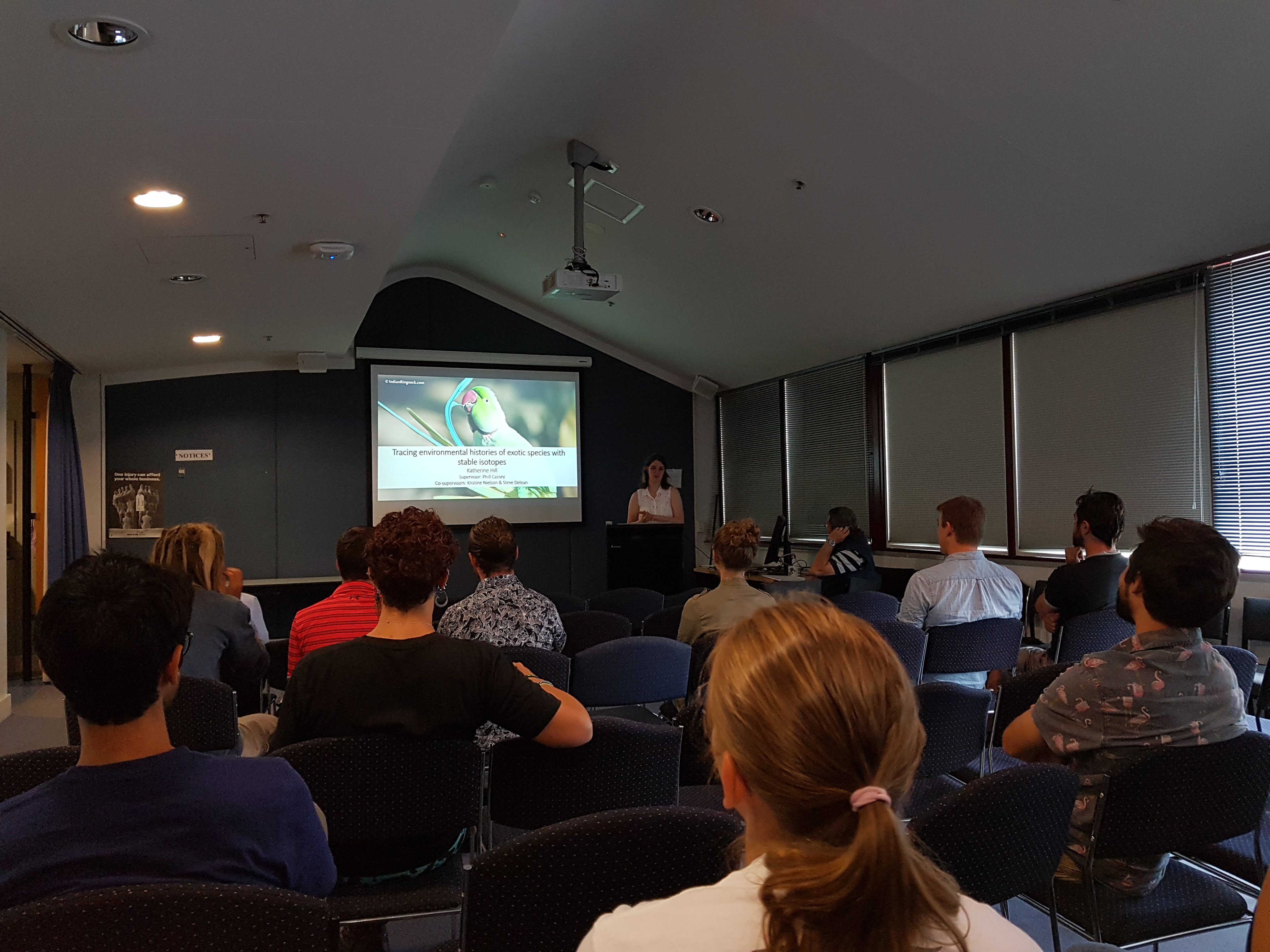
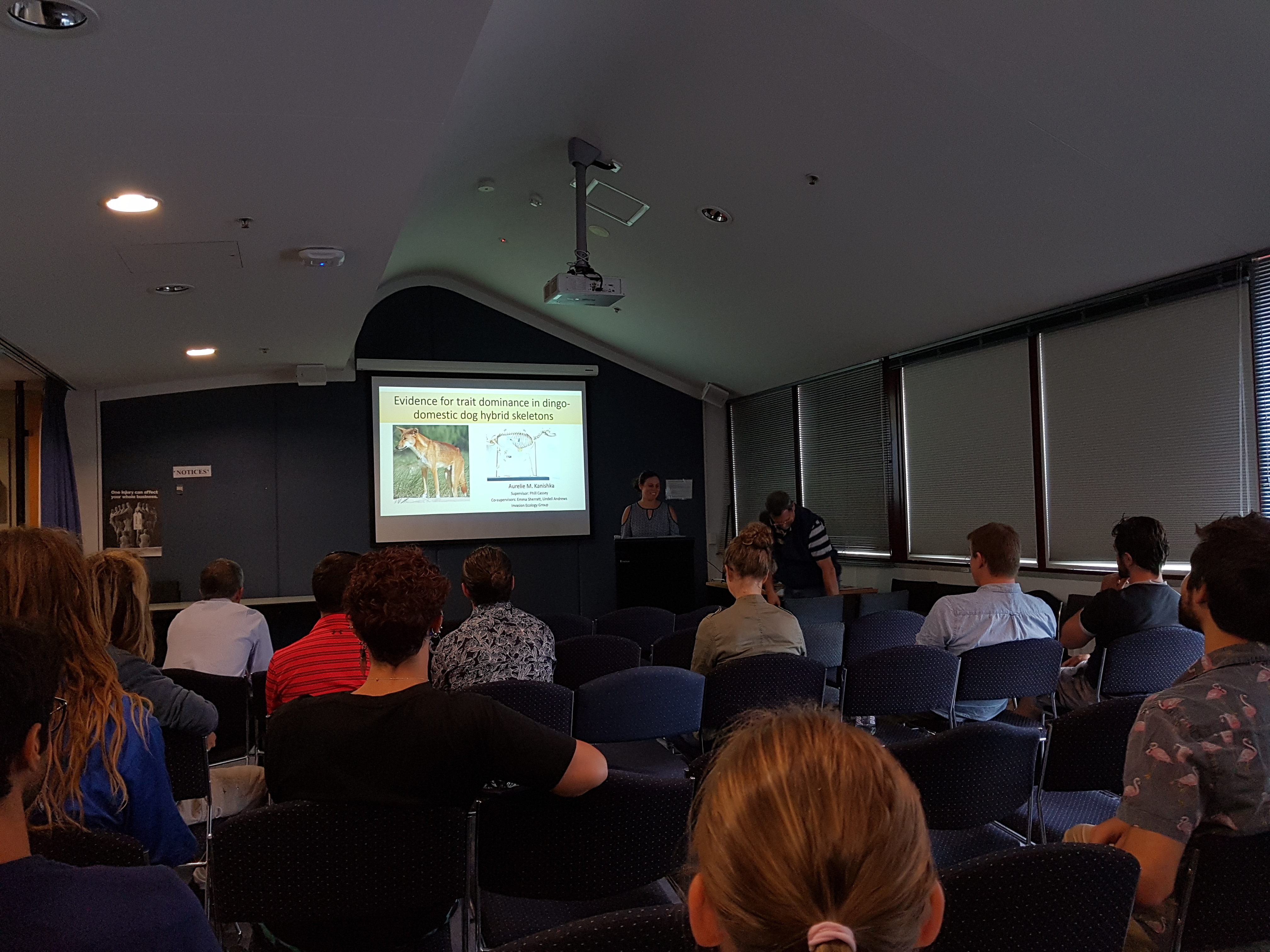
Katie Hill & Kristine Nielson have been busy putting together a poster for the 14th Australasian Environmental Isotope Conference (AEIC) in Wellington, New Zealand later this month. They will be presenting preliminary isotopic results from our Environment Institute funded biosecurity provenancing project on red-eared slider turtles.
Busy times are also ahead, Phill will be presenting on Wildlife Trade at the WWF supported Earth Hour event at the University of Adelaide on March 24th, and Phill will also be presenting at the Australian Institute of Criminology’s annual meeting on Organised Crime Research in May this year.
As a group aimed at combatting wildlife crime, we have been assisting Wildlife Alliance to raise enough money to fund five Wildlife Trade signs to be displayed on Tuk Tuk’s in Cambodia, in the hope of raising further awareness on the negative impacts of wildlife crime. In February, we were very excited to see our first (of five) Tuk Tuk signs on the streets of Phnom Penh, commissioned from our morning tea fundraising. Wildlife Alliance, in Cambodia, are one group developing campaigns for greater public awareness regarding the harm illegal wildlife trade has on individual animal welfare and species survival, and ultimately helping to reduce the demand for wildlife products.
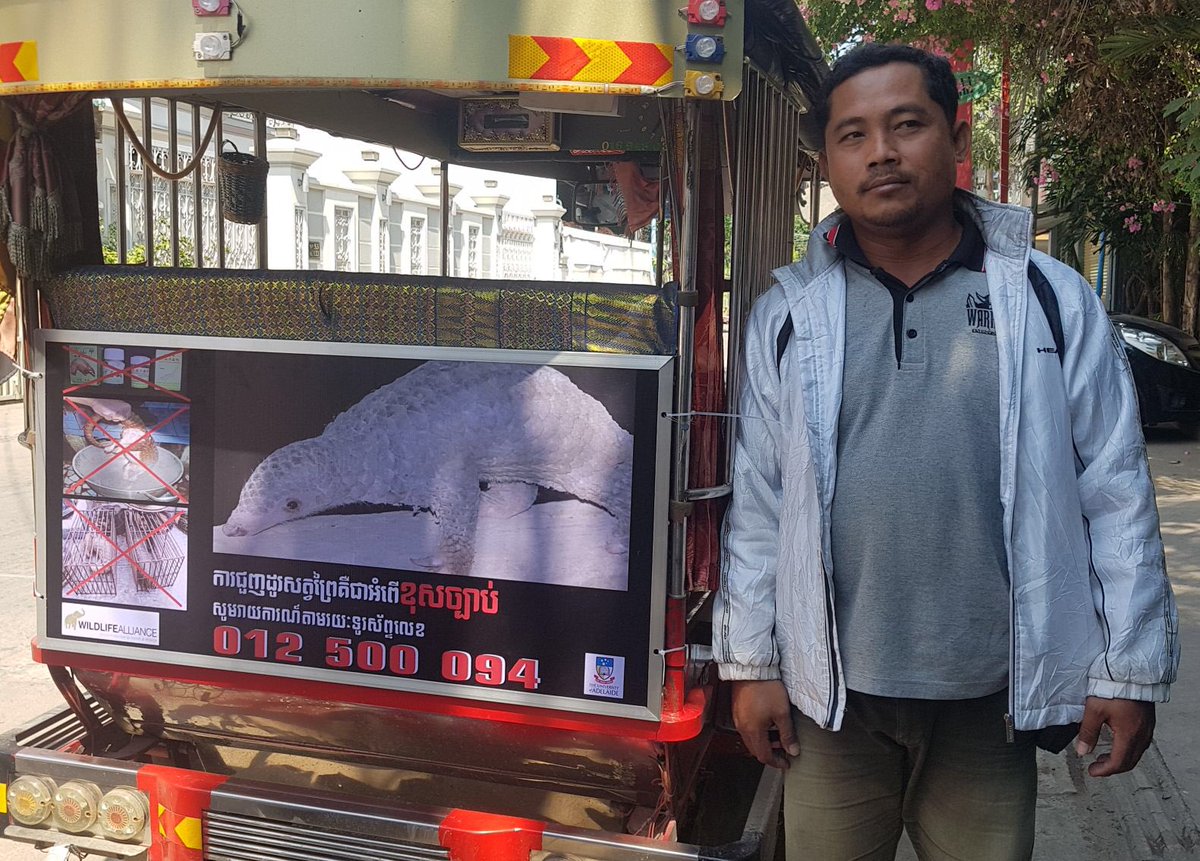
Lab News | December 2017
What a great year 2017 has been!
What a great year 2017 has been! Our Honours students Jacob, Adam, Mark and Ellen all successfully completed their honours candidature and Pablo and Toni submitted their PhD’s! It has been a pleasure to have had them all as part of the team and we wish them all the best in their future endeavours.



Our continuing PhD students have been busy with field work, data analyses, presenting at and attending conferences. We welcomed a new member to the team with the arrival of Amy’s baby girl Naomi, and next year Adam will be continuing in the lab and commencing a PhD. Adam will be monitoring the dynamics of online illegal and legal reptile trade. In 2018 we will also welcome two new Honours students, Katie Hill and Aurelie Kanishka. Our new Centre for Invasive Species Solutions project on Understanding and intervening in illegal trade in non-native species will be kicking off early next year!
The lab has been very busy in the last few months. Adam, Sarah and Phill had a great time at the 9th Illicit Networks & Policy Flows Workshops at Flinders University where they gained some great insight into transnational trafficking and network analyses. We have also had several visitors, including Craig White and Pieter Arnold from Monash University, Alex Pigot from University College London, and Rebecca Johnson from the Australian Museum.
It has been very exciting to be working with Rebecca Johnson on our Environment Institute funded biosecurity provenancing of illegal incursions of alien wildlife project. Thanks to Rebecca we now have some more red-eared slider turtle samples and hope to have some exciting results to share in the New Year!
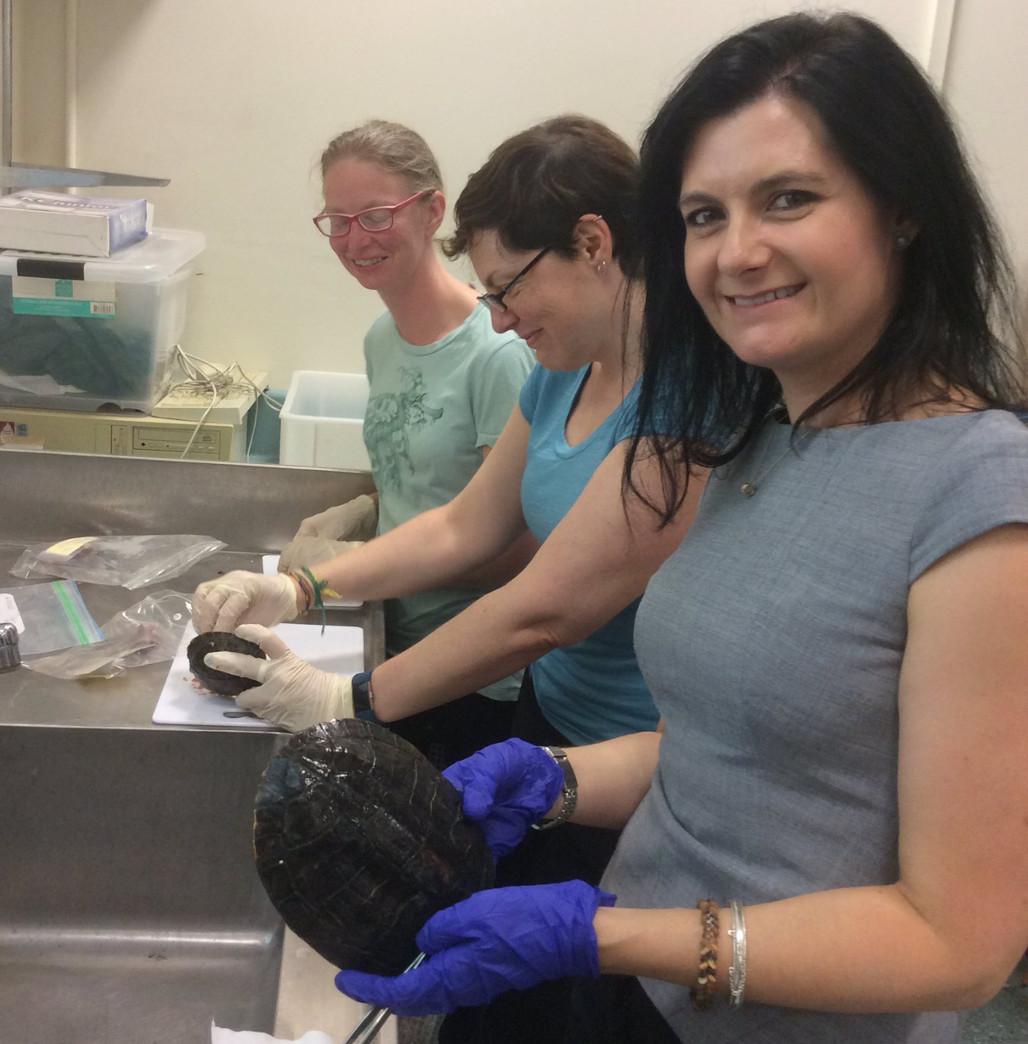
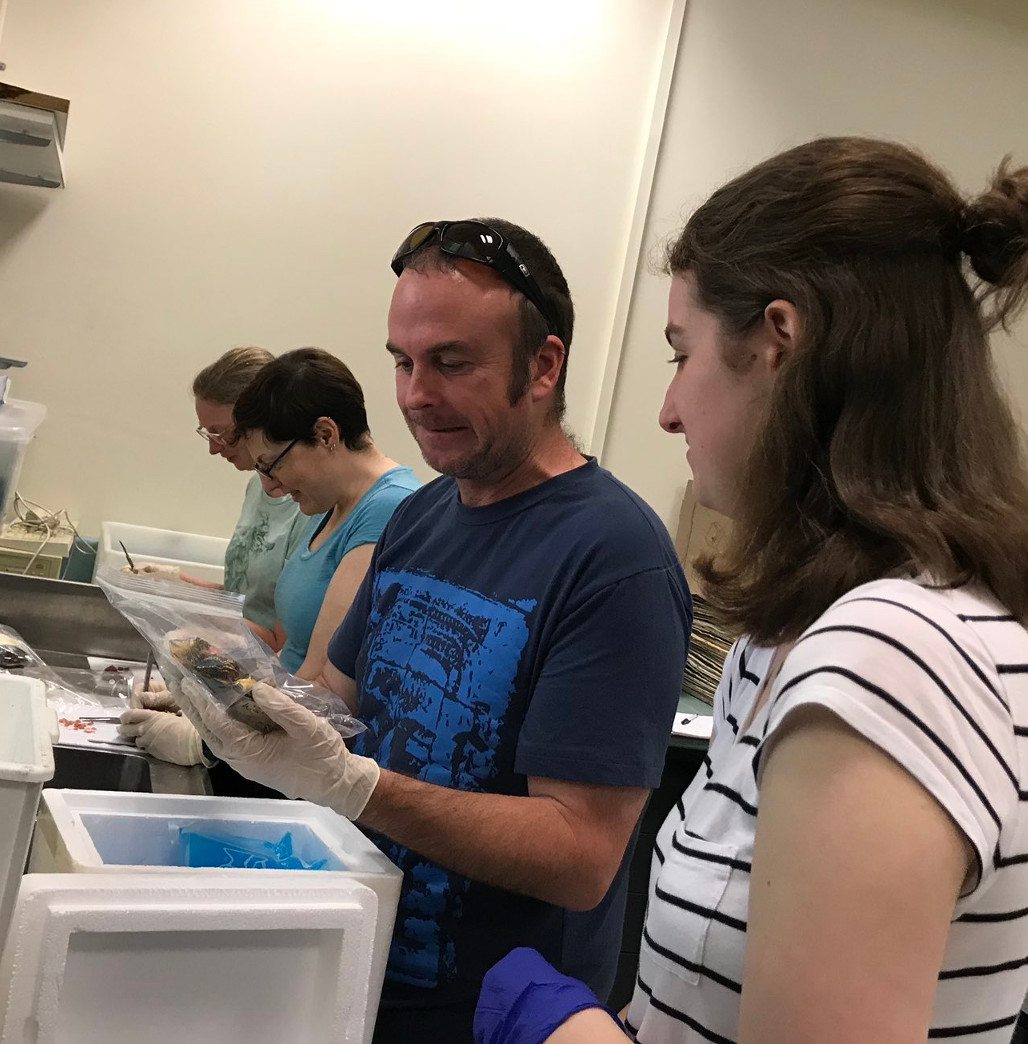
2017 has been a great year for research publications with over 20 papers coming out of the lab this year. Check out our new paper on how to incorporate information on propagule pressure in the analysis of alien establishment success. Phill and Pablo’s new piece on broad conservation practice and protecting the unknowns, has been published along with Sarah’s analysis with TRAFFIC on the global pangolin trafficking routes between 2010 and 2015. Sarah’s research identified that at least 67 countries were involved in pangolin trafficking, highlighting the global nature of this illegal trade. 159 unique international trade routes were identified, with an average of 27 new trade routes emerging every year!
As the end of 2017 approaches, we have had some great Christmas celebrations, including cricket and a BBQ for our departmental Christmas party and this year's lab group Christmas party had it all! Pub drinks, a Thai banquet dinner, weird party golf, and a night club dance off. Sarah proved to be the best golfer in the lab, taking home the crown!
We look forward to sharing more of our research outputs with you in the New Year and wish you all a wonderful Christmas and a safe and relaxing summer period!

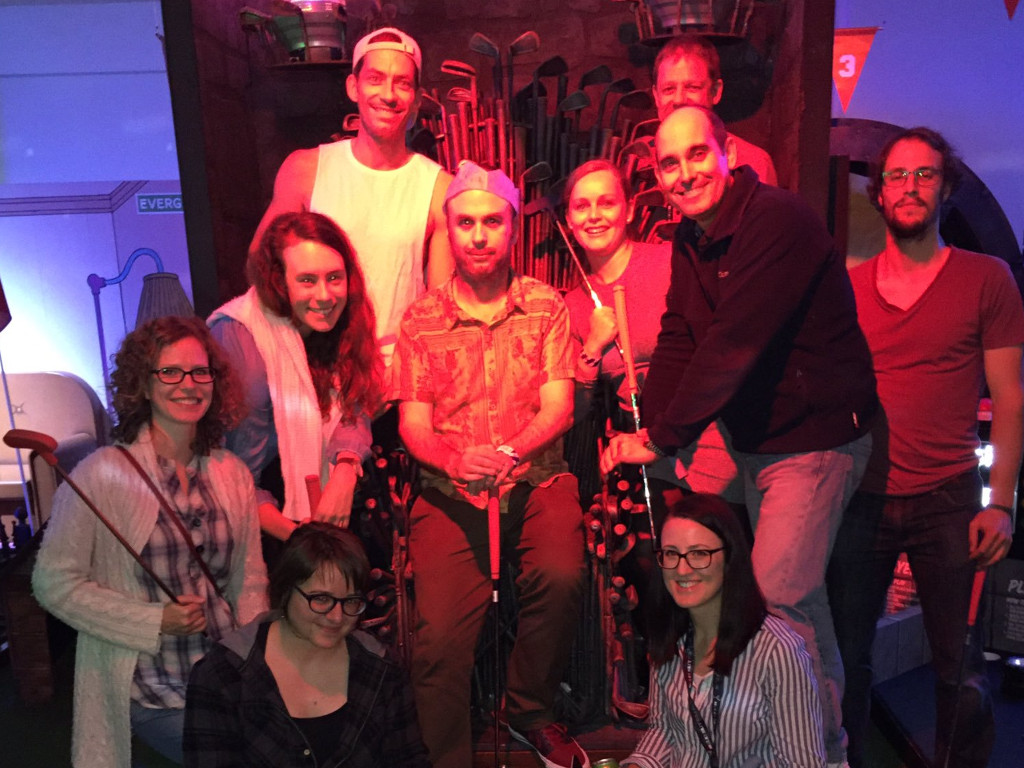
Lab News | October 2017
It is an exciting time of the year in the lab!
It is an exciting time of the year in the lab. A huge congratulations to Toni Dalziel for not only successfully submitting her PhD this month, but for also commencing her new position with CSIRO at the Animal Heath Laboratories in Geelong, Victoria. We wish Toni all the best on this new adventure and look forward to many more collaborations in the future!
Jack and Sarah have returned from their holidays in Africa and Germany. Jack encountered some amazing wildlife, in particular he witnessed the wildebeest migration through the Serengeti, Tanzania. Needless to say we were all a bit jealous back in the lab. Talia also recently returned from a holiday to tropical north Queensland where she greatly enjoyed the sunshine, rainforests, waterfalls and snorkelling with turtles on the Great Barrier Reef!
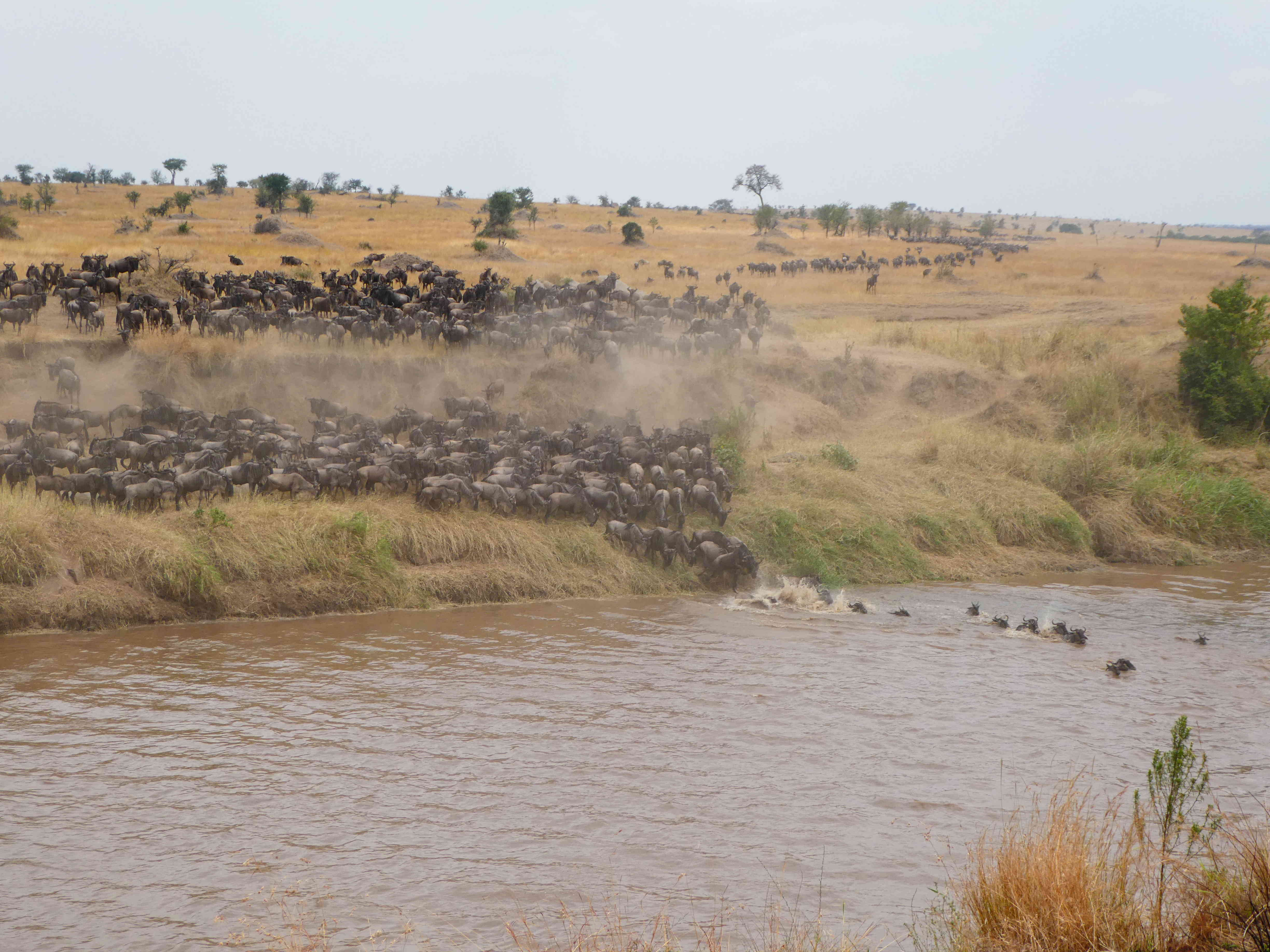
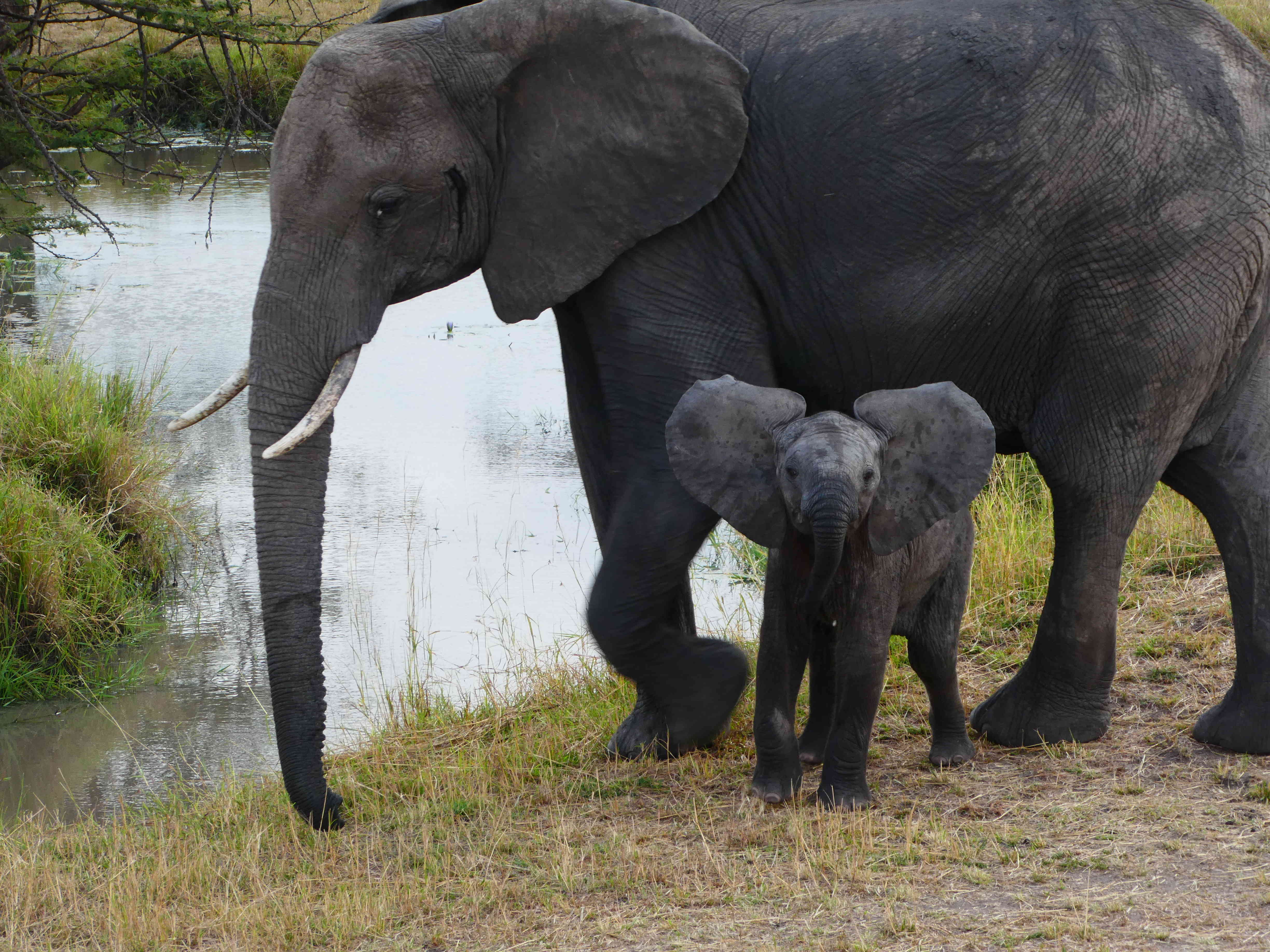
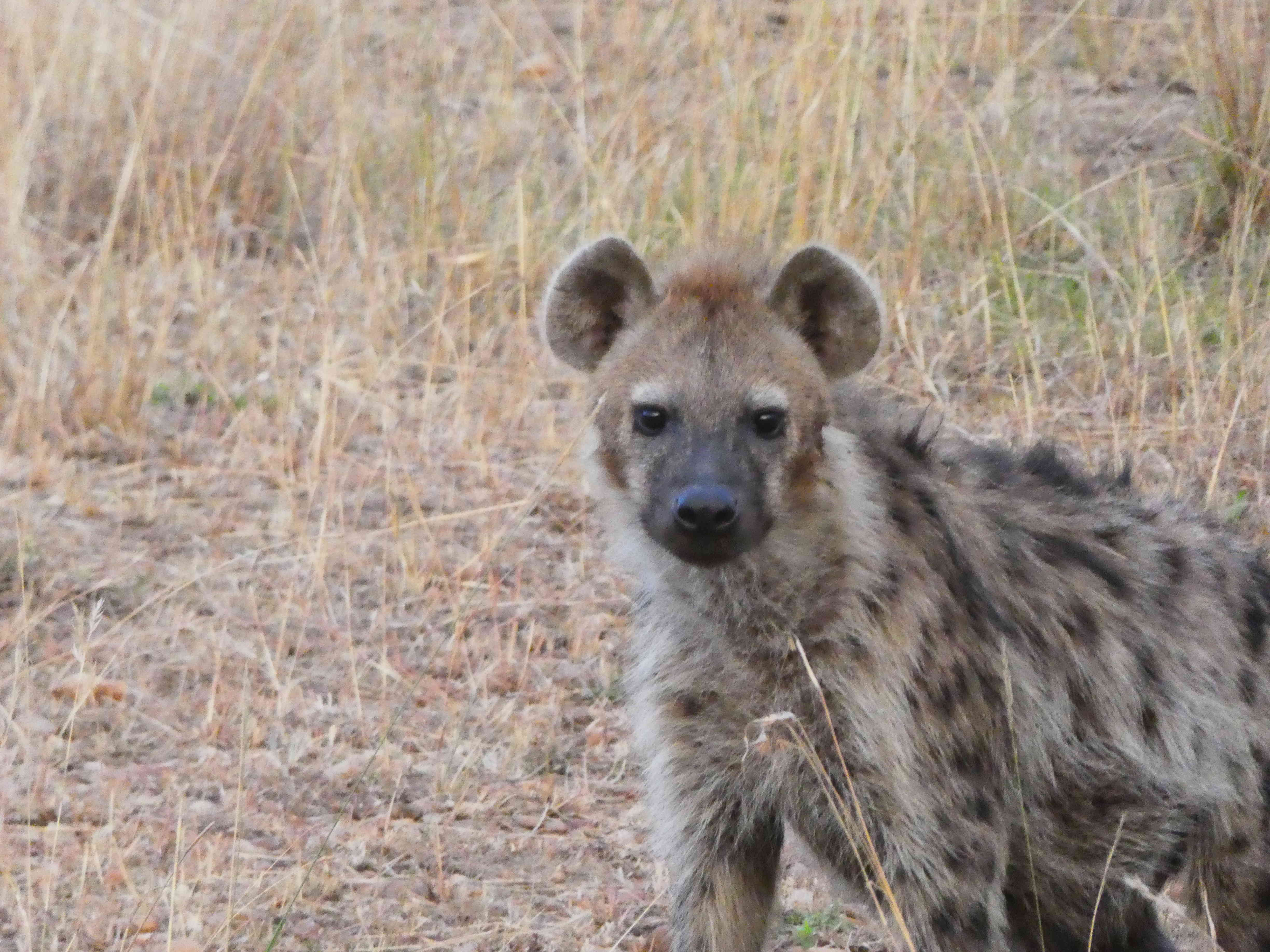
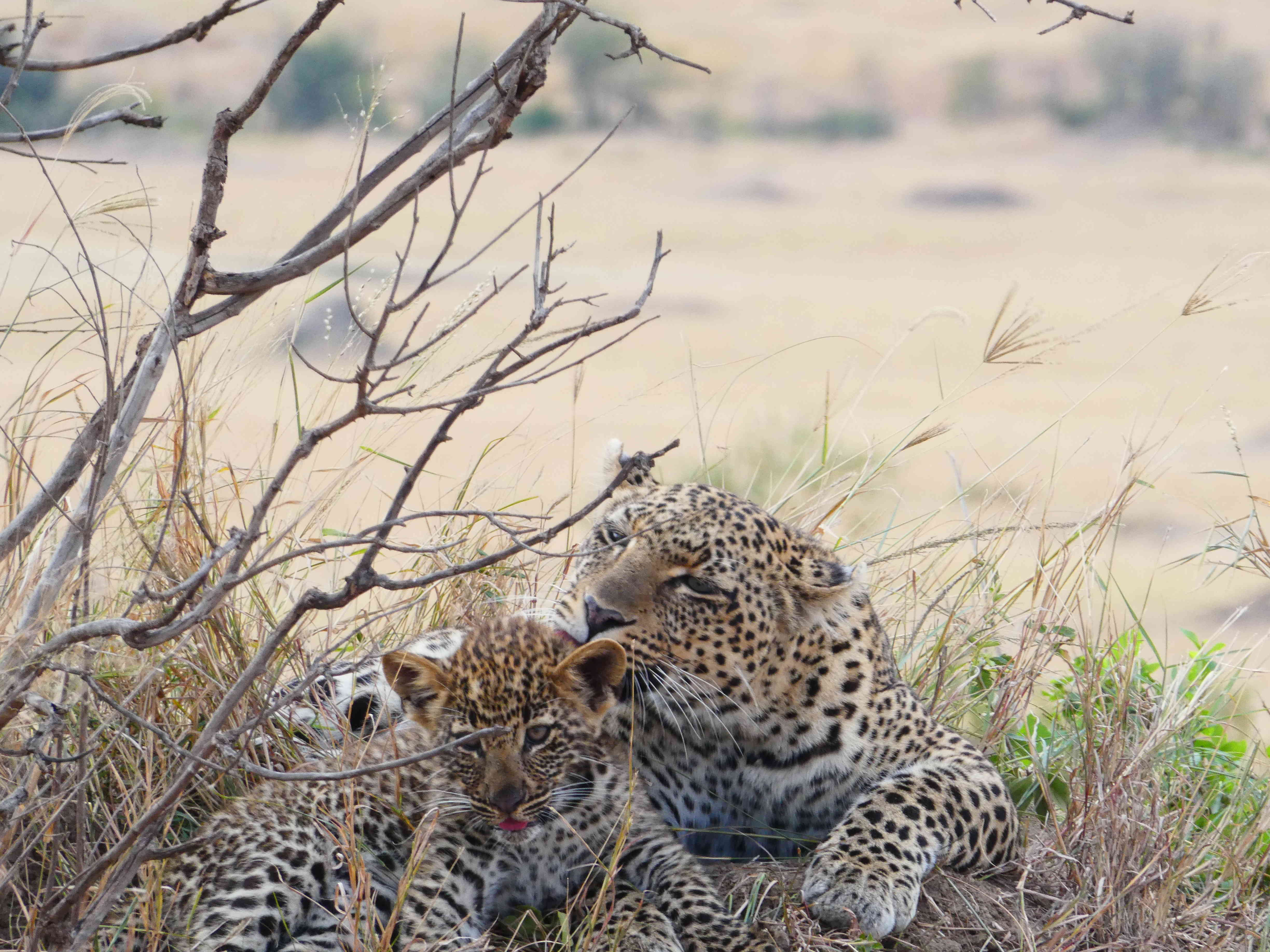
Photo credit: Jack Tatler
Jack also spent time in Germany where he attended the International AniMove Workshop and continued to develop his advanced skills in animal movement statistics.
We would particularly like to congratulate Amy on the safe arrival of her beautiful daughter Naomi. We wish Amy all the best and we hope to meet Naomi soon☺.
We had a great night out to celebrate Toni’s PhD submission, and both Pablo and Jacob's graduations. It was particularly rewarding that so many of our industry colleagues and collaborators could also attend this event, thank you to John Virtue, Andrew Woolnough, Richard Duncan, and Lindell Andrews.
Phill, Thomas Prowse and Pablo Garcia-Diaz attended the NZPF50 gene drive modelling workshop in New Zealand where they presented their work on CRISPR gene drive for pest control. Phill has also been busy with his teaching activities, presenting at the UofA open day, and at the SA Science Teachers Association workshops, where he presented to South Australia’s year 12 science teachers on ‘Maintaining Biodiversity’.
The lab group attended the annual BSSA Quiz Night with our superstar team ‘the magical glow sticks’. It was a great night out helping to raise money for field research grants to assist conservation research in South Australia.
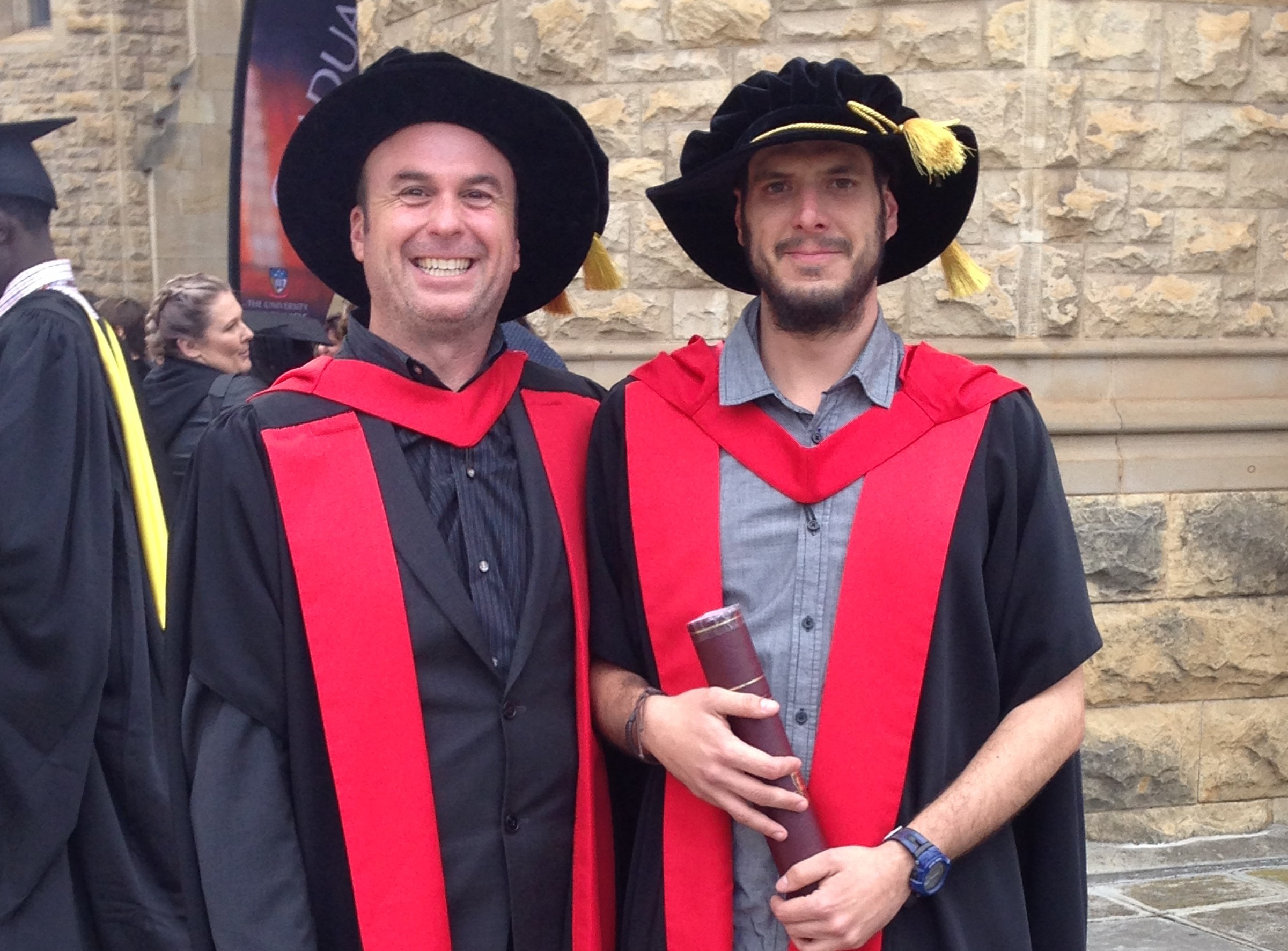
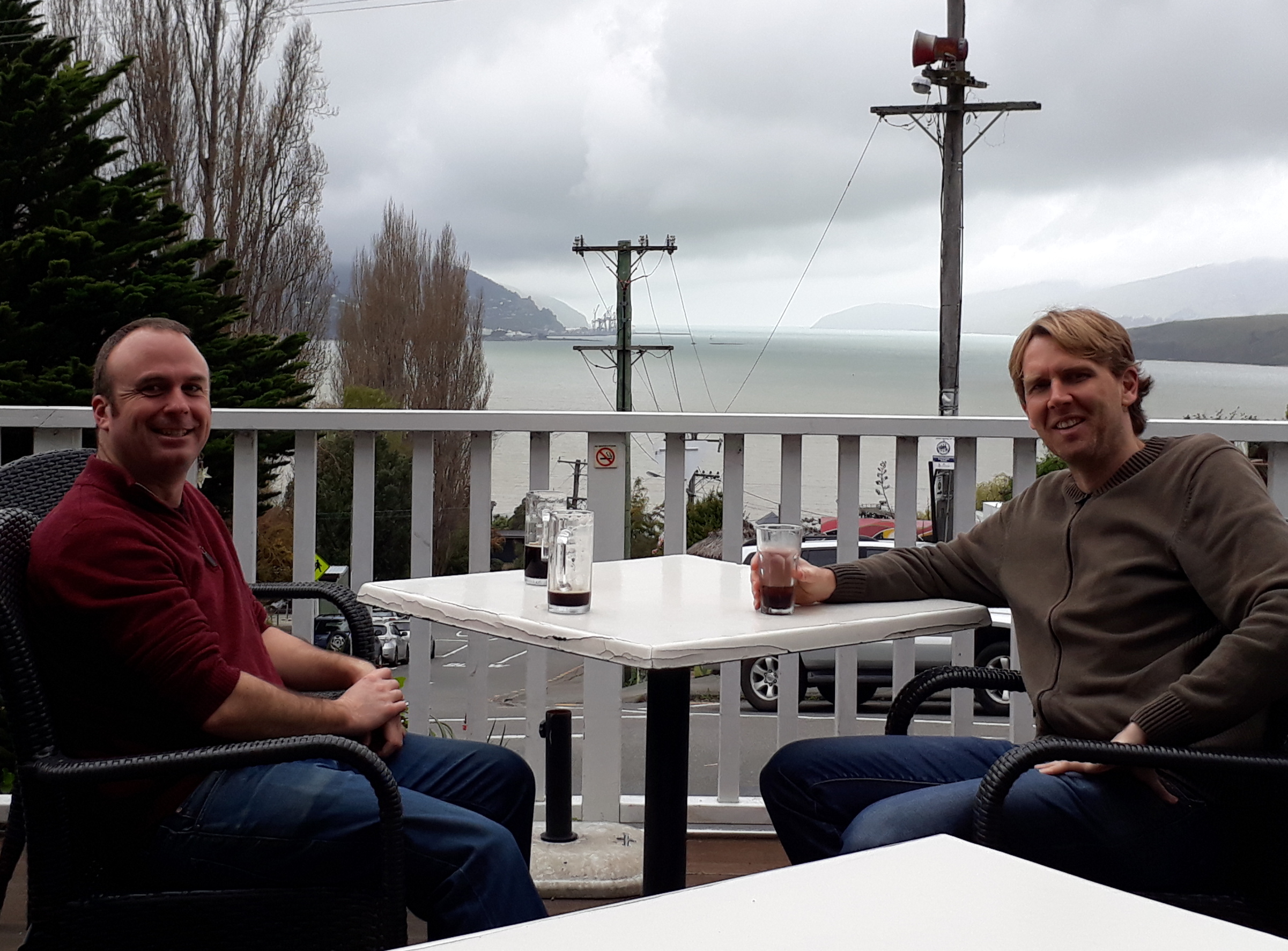
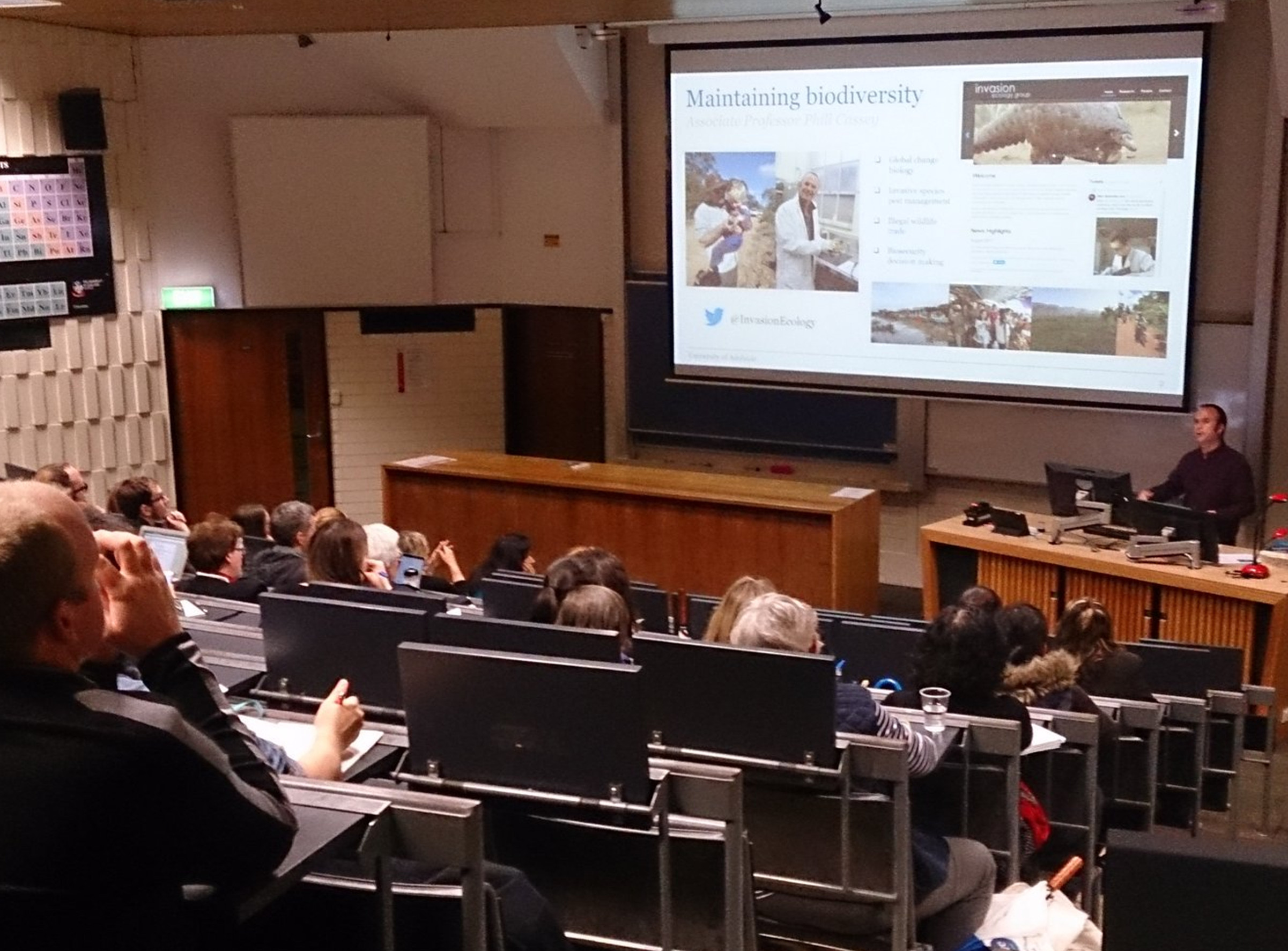
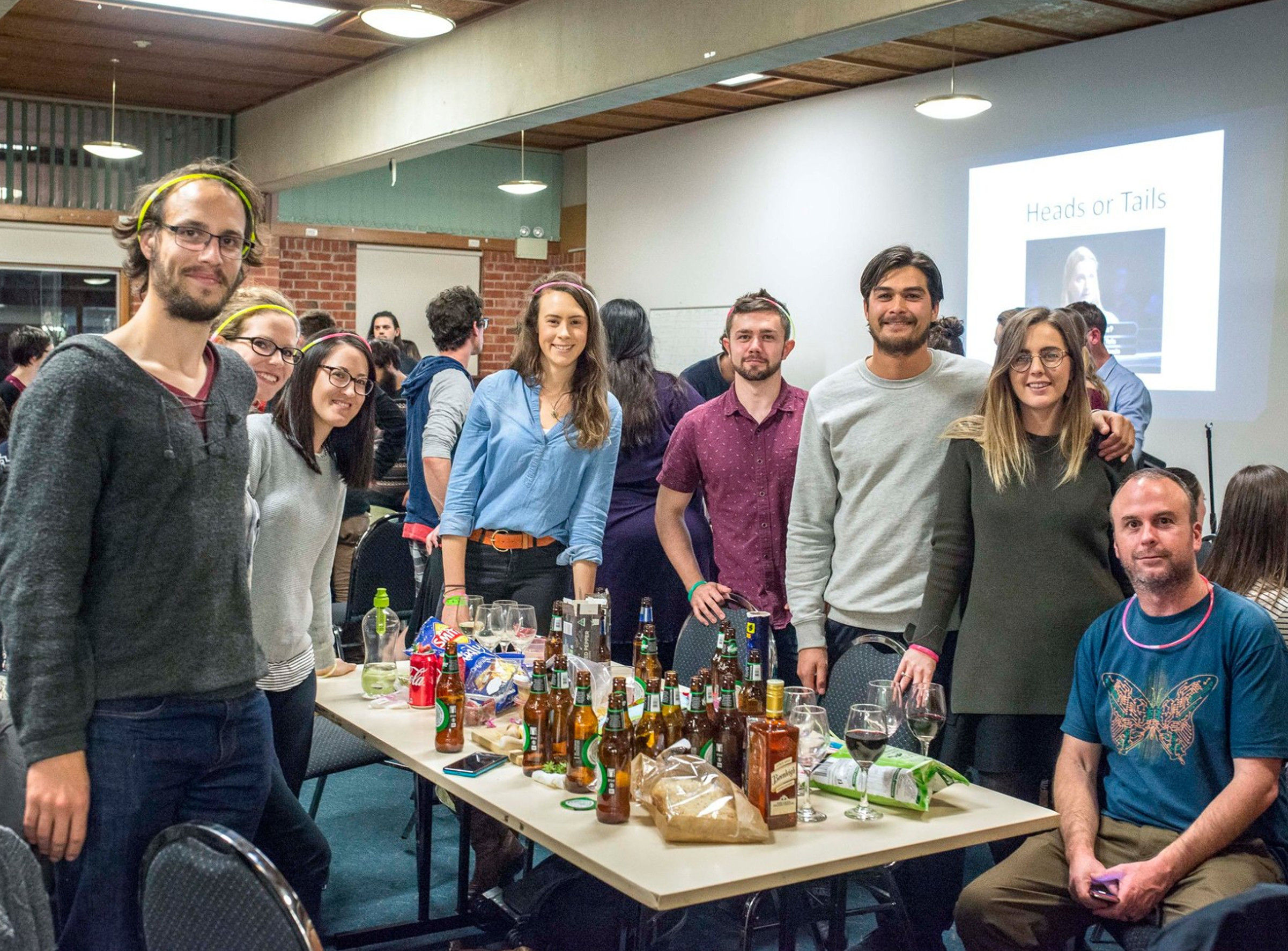
Photo credit:@MarcEHJones (bottom left image); BSSA (bottom right image)
Our new Environment Institute funded biosecurity provenancing project is in full swing with our first red-eared slider turtle samples currently in preparation for isotopic analysis. Using novel biogeochemical analyses this project will develop a set of best-practice methods for determining the provenance of alien wildlife specimens in Australia; either captured at-large or confiscated from illegal-keeping.
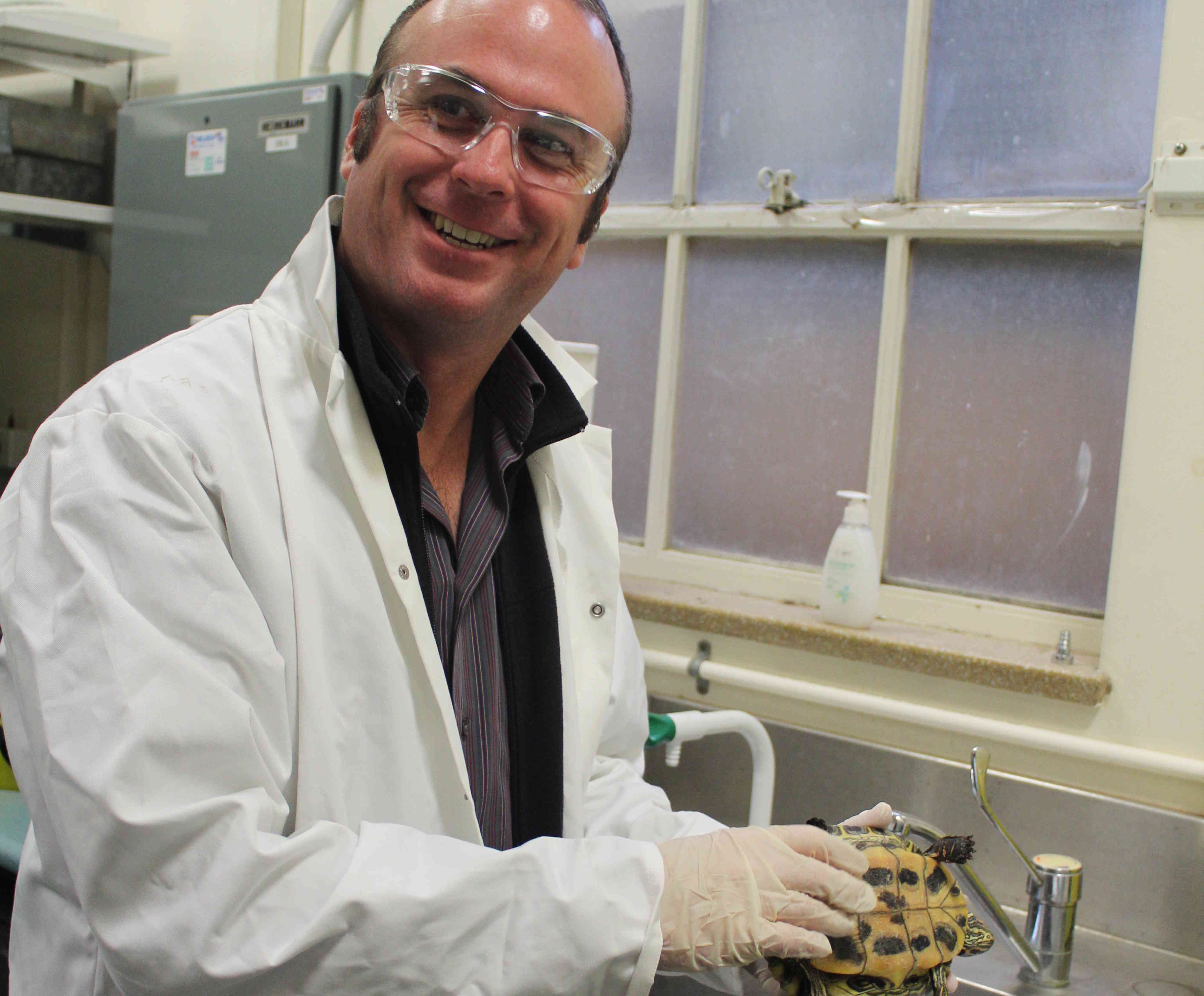
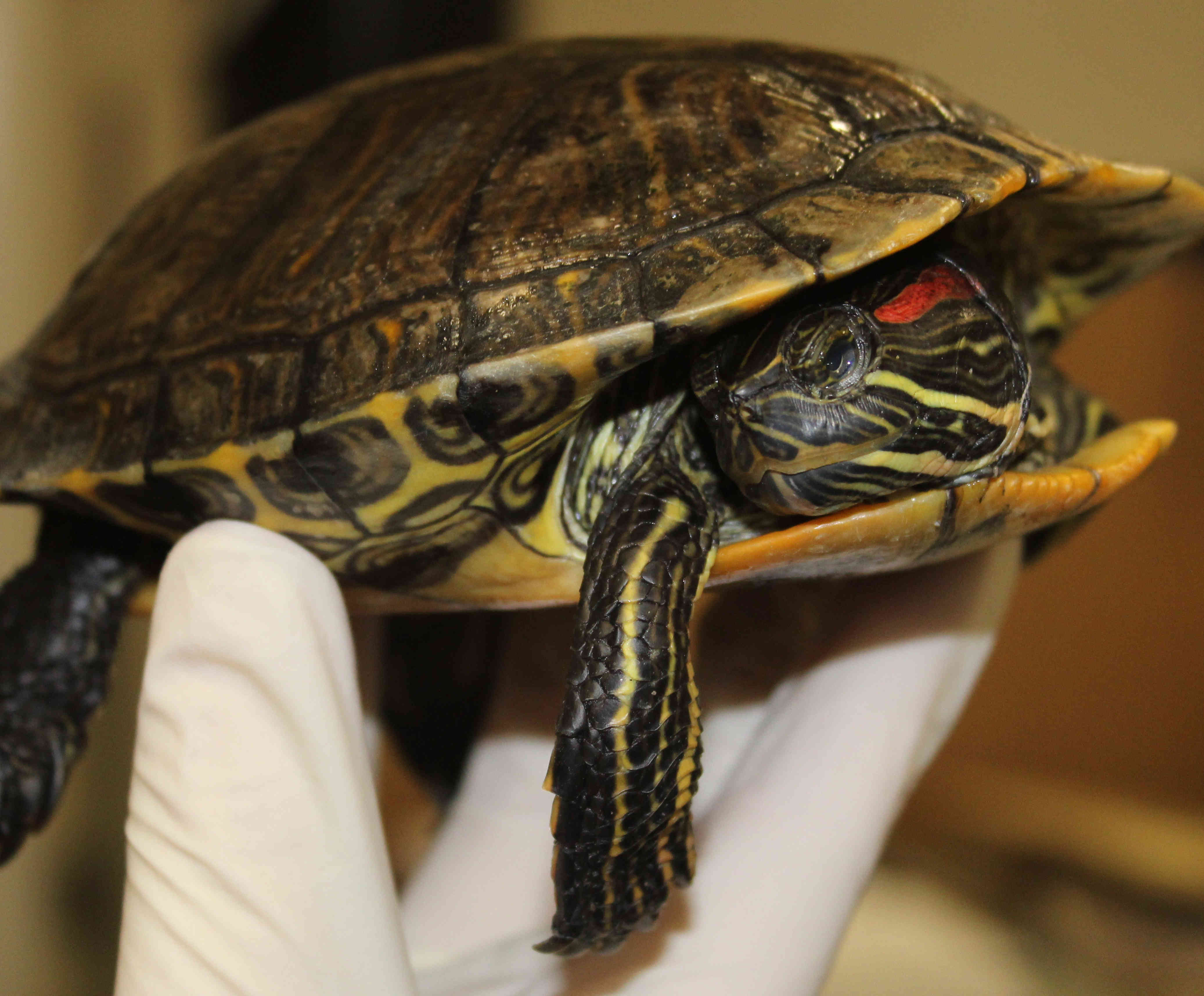
Photo credit: Kristine Nielson
Phill attended a Crime Stoppers meeting in Melbourne in September. Crime Stoppers Victoria have launched a new wildlife crime reporting campaign ‘Trafficked, Traded and Traumatised’. Check out Crime Stoppers new video on the risk of red-eared slider turtle introduction in Victoria here. For more information or to report illegal wildlife trade visit the Crime Stoppers website.
Congratulations to our lab affiliate Dr Rebecca Boulton and @nrsamdb @SADEWNR for being awarded the Threatened Species Recovery Fund for the reintroduction of the mallee emu-wren (Stipiturus mallee) to Ngarkat Conservation Park.
It was also a great pleasure to be a part of the @BirdlifeOz kids campout that Rebecca recently ran at Gluepot Reserve. The kids had a great time learning about ecological research techniques such as bird banding and pitfall traps.



Current Opportunities
Honours Projects & Job Opportunity
A number of honours projects are available in global change biology; invasive species pest management; illegal wildlife trade; and the prioritisation of evidence-based biosecurity decision making. Examples of some of these are listed below:
- Distribution and habitat preferences of overabundant vertebrate pests
- Overgrazing and biodiversity loss in the Mount Lofty Ranges
- Social acceptance and risk analyses for next generation vertebrate pest control
- Alien species provenance and validation using novel isogeochemical tools
Further information on honours projects here >>
We also currently have an exciting new post-doc job vacancy to work with an interdisciplinary team on mathematical modelling of gene drives for pests. Apply now! Applications close 9th November 2017.
Lab News | July 2017
Ever wondered what you need to know about exotic pets in Australia?
Ever wondered what you need to know about exotic pets in Australia? Check out Pablo, Miquel and Phill's new article in The Conversation!
The Advanced DNA, Identification and Forensic Facility (ADIFF) at The University of Adelaide is now a member of the Australasian Environmental Law Enforcement and Regulators neTwork (AELERT). Phill is the primary institutional contact for the University, and we greatly look forward to engaging broadly with the other Australasian members.
Phill and Sarah have just returned from the 'Deep Water, Deep Jungle' study tour to Singapore and Cambodia. The students were immersed in a 13 night experience researching tropical conservation ecology and environmental crime in South Eastern Asia.
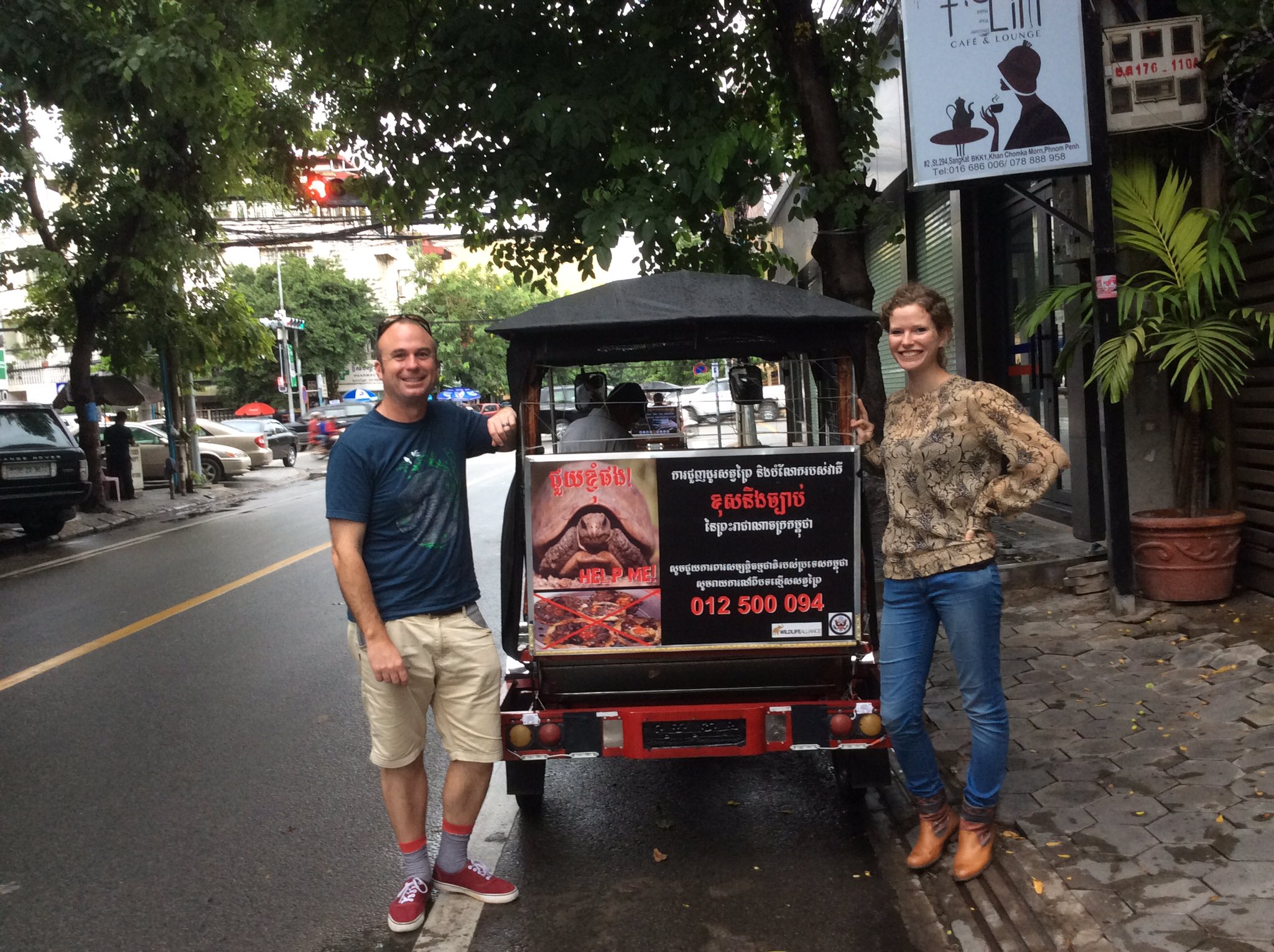

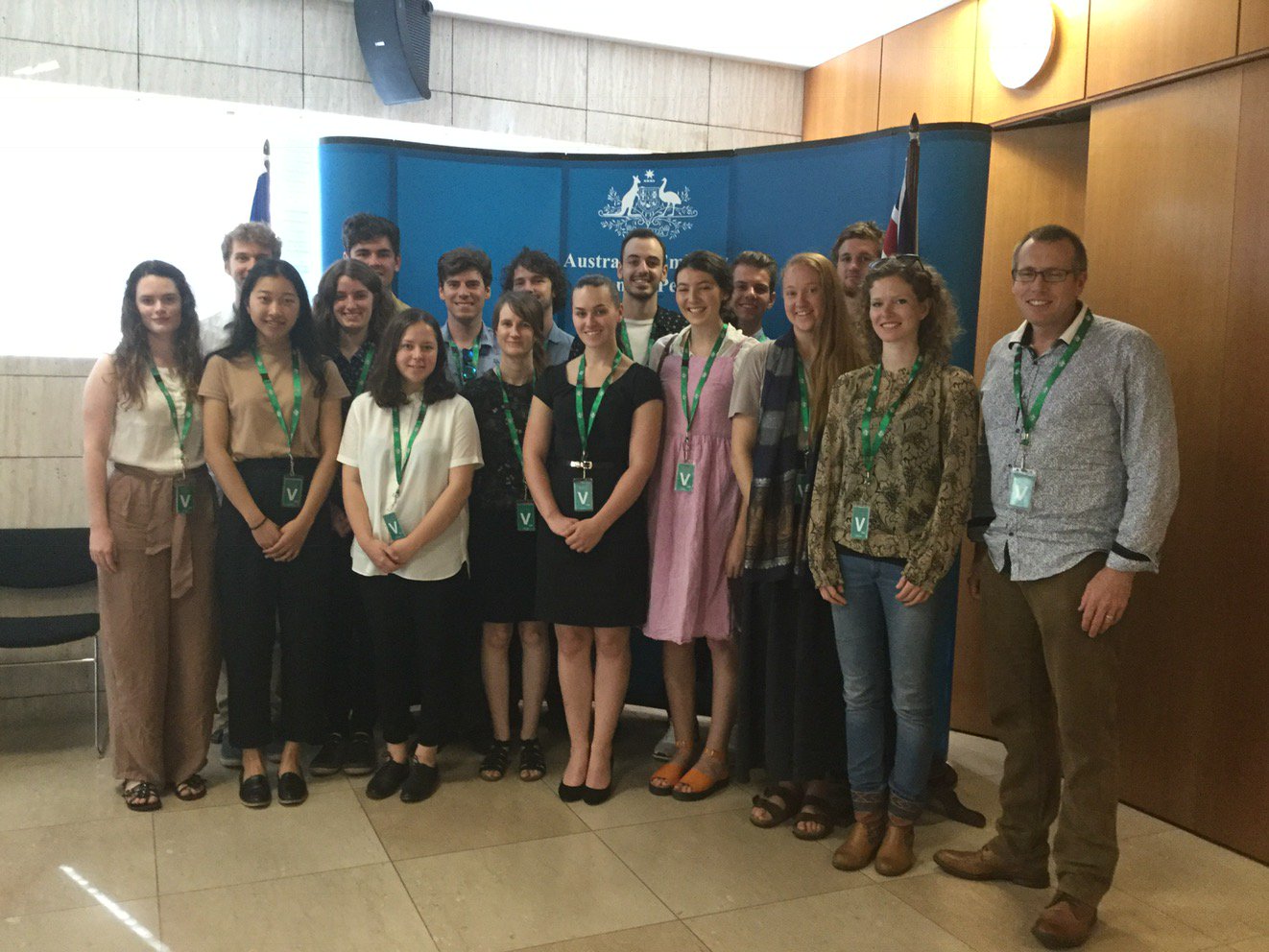
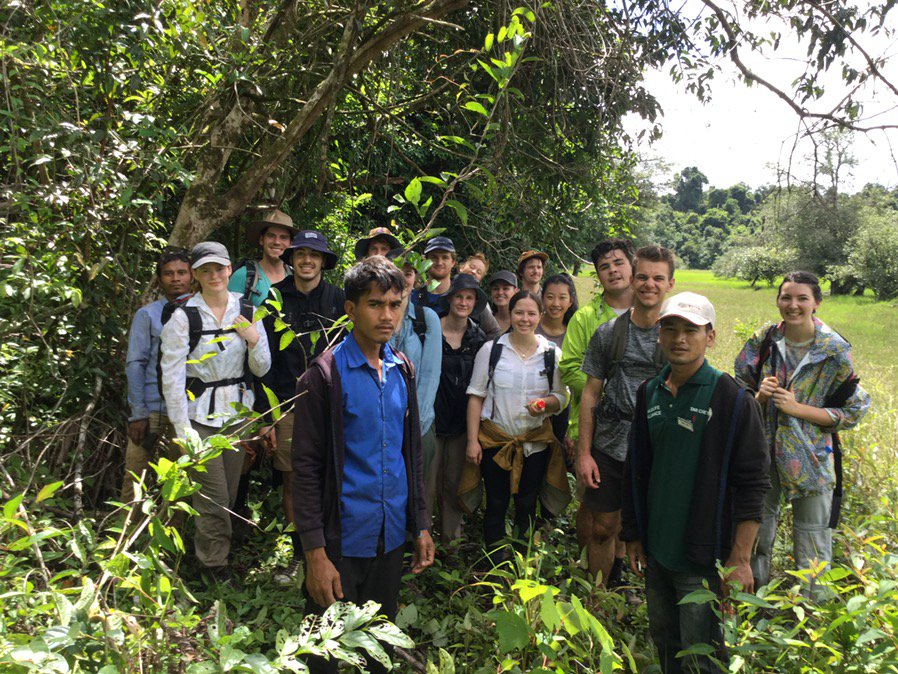
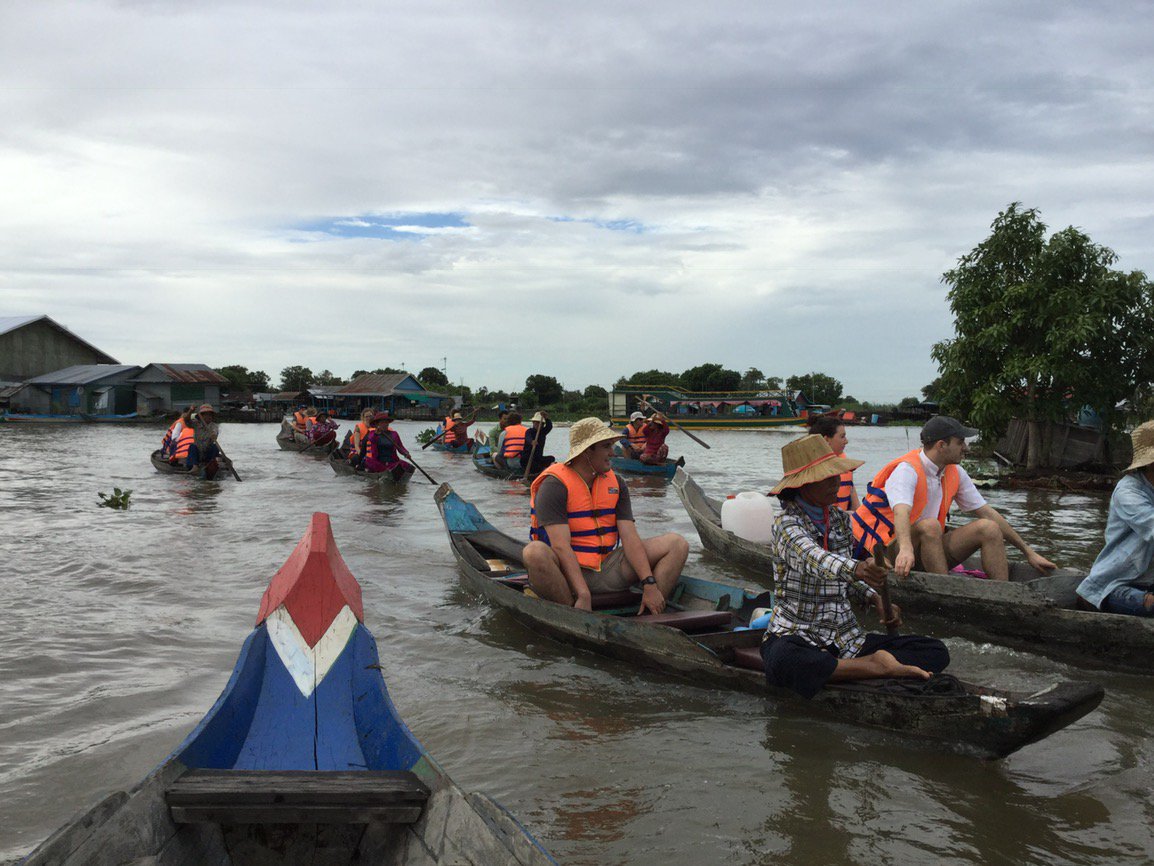
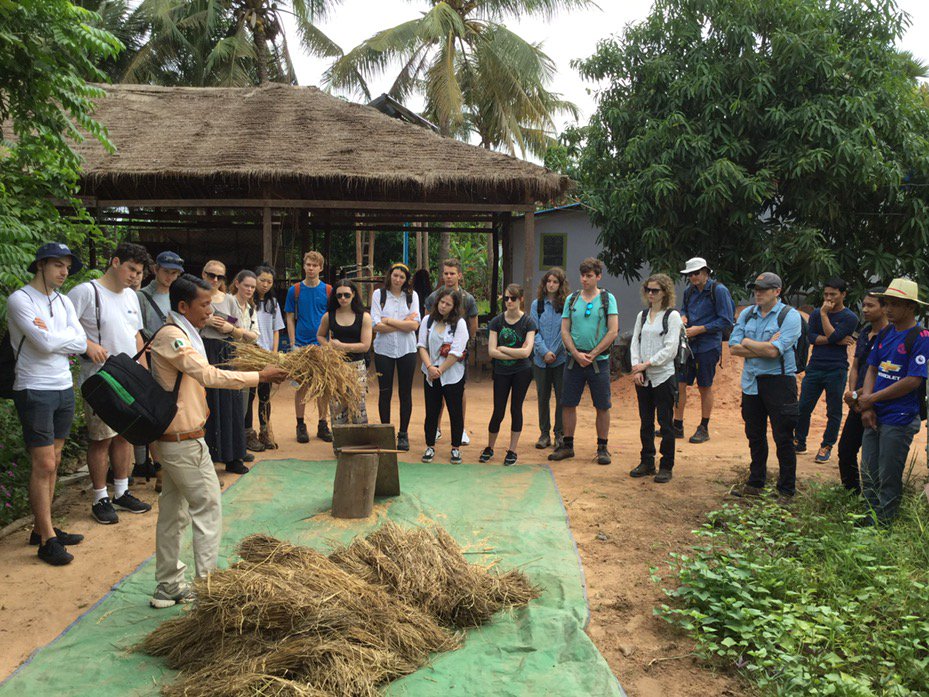
Sarah, who is a member of the IUCN Species Survival Commission Pangolin Specialist Group, attended the Sunda Pangolin Regional Conservation Planning Workshop in Singapore last month. The aim of the workshop was to create the first ever conservation strategy for the species, with priorities including combatting trafficking, strengthening legal policies, and building capacity for effective enforcement. View the full workshop press release here.
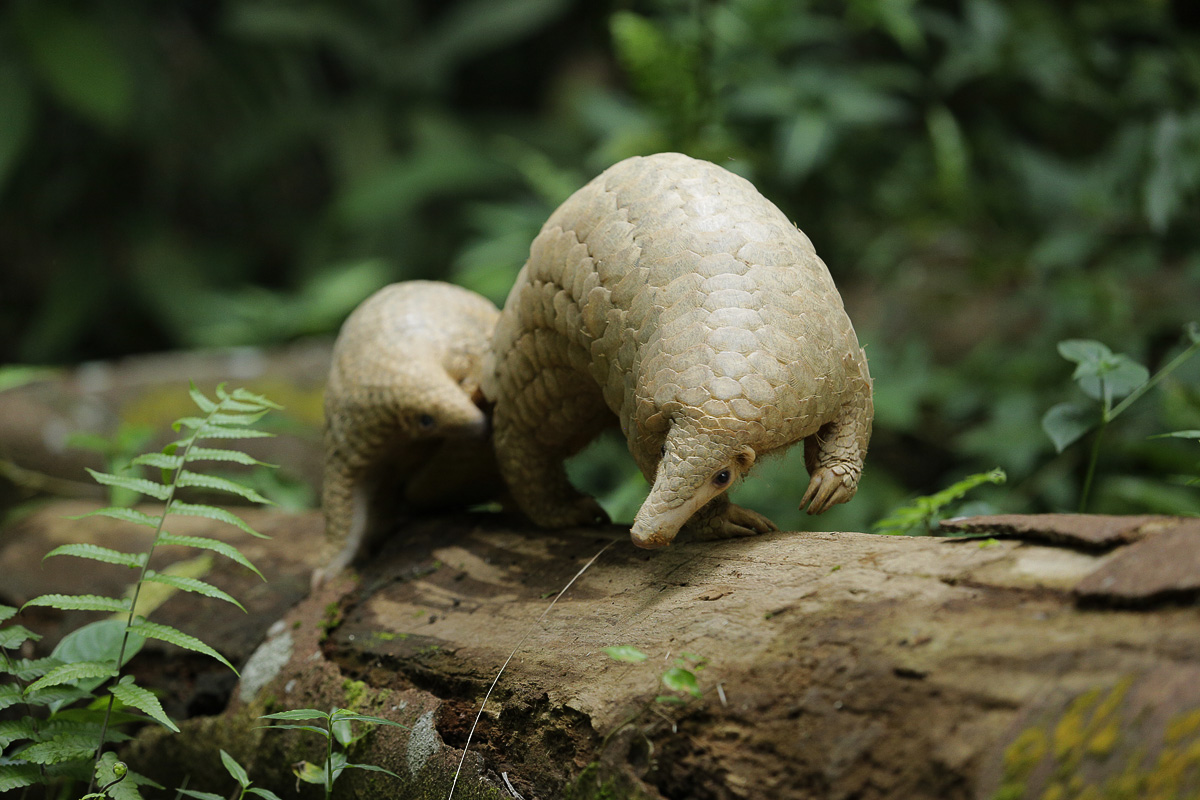
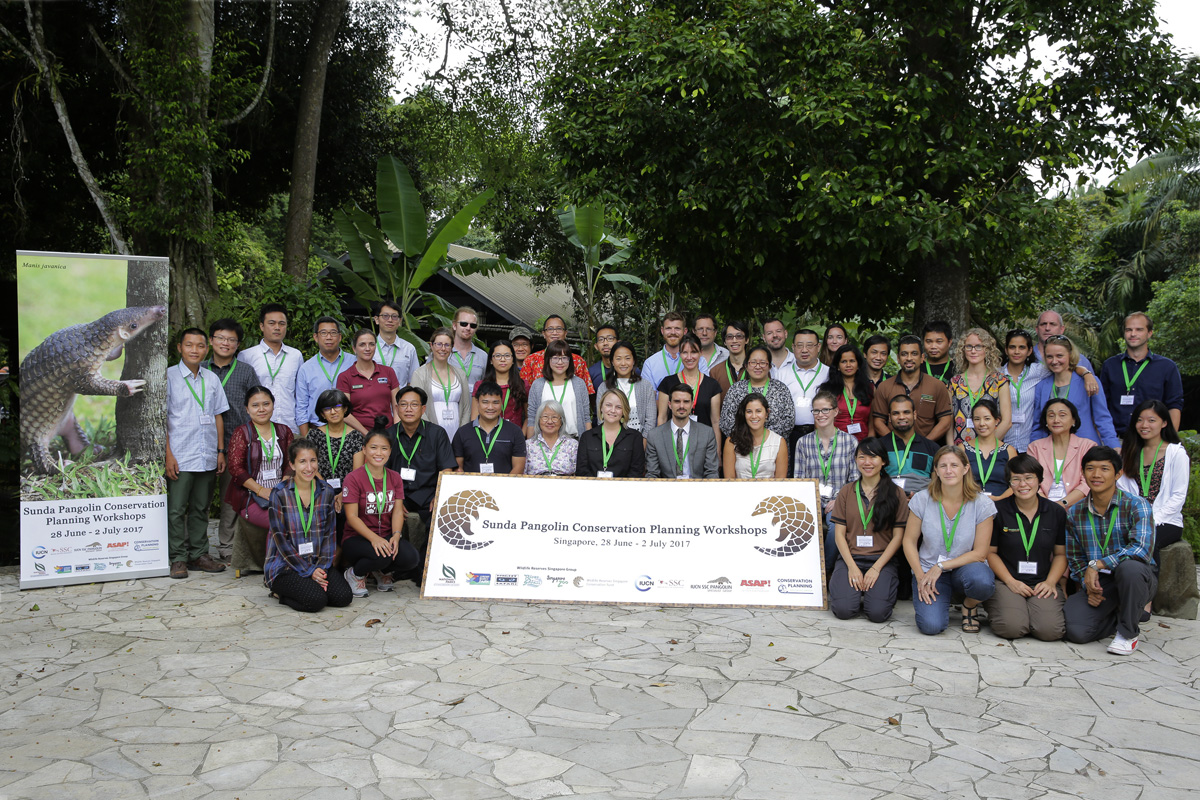
Photo credit: Wildlife Reserves Singapore and David Tan
Jack’s dingo trapping at Kalamurina Sanctuary has recently concluded and Jack has caught more than 65 individuals across four field trips. GPS data is now coming in thick and fast! Jack also recently attended the 12th International Mammalogical Congress in Perth where he presented his research on 'Using accelerometers to determine the behaviour of wild dingoes'. We would also like to congratulate Jack on being awarded several grants in recent months. Jack was awarded grants from the Australian Wildlife Society, the Mark Mitchell Foundation, two grants from the Nature Conservancy of South Australia and a travel grant from the Australian Mammal Society.
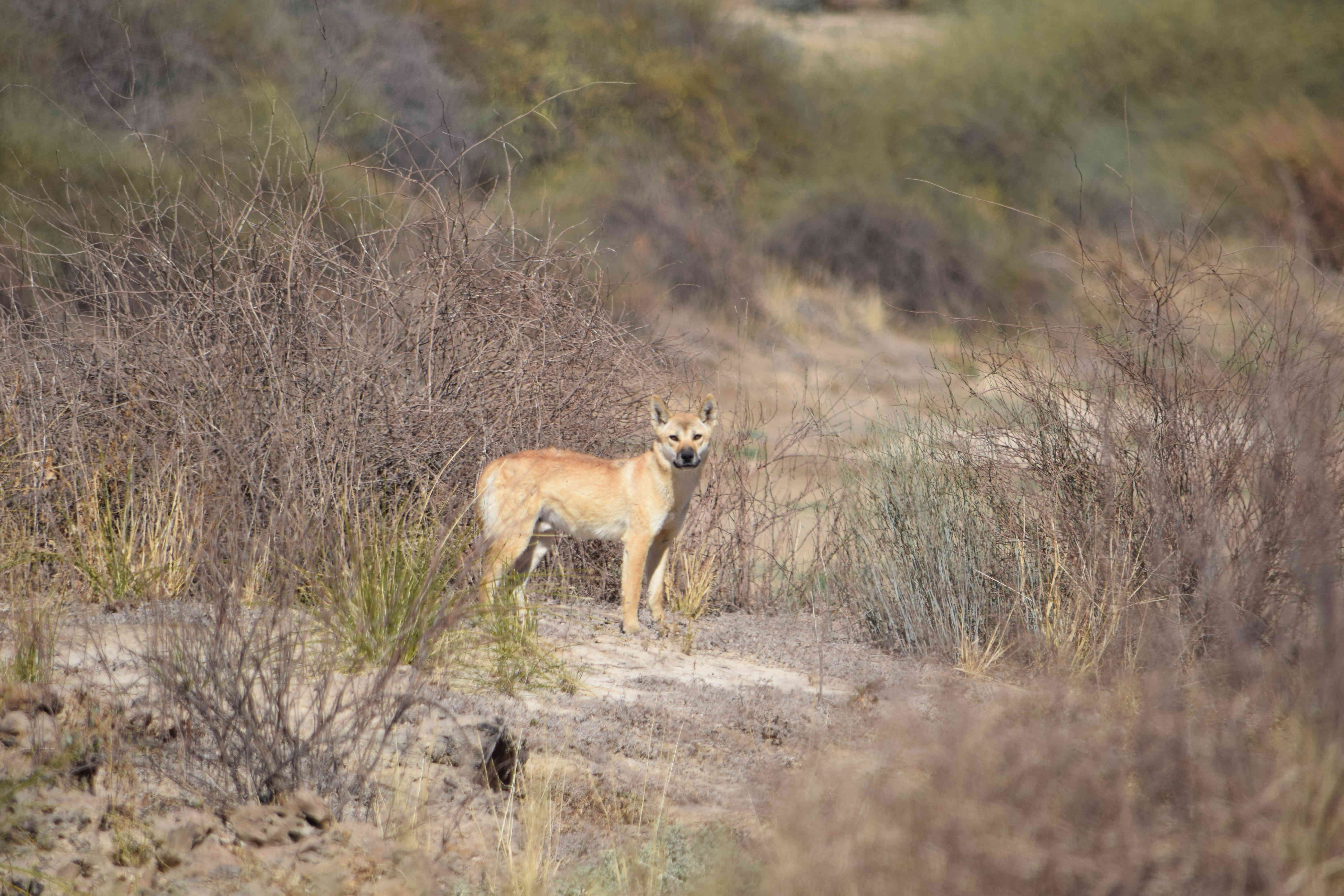
Dingo (Canis dingo) at Australian Wildlife Conservancy’s Kalamurina Wildlife Sanctuary. Image credit Hannah Bannister.
A huge congratulations to our honours student Ellen Freeman for recently being awarded the Nature Conservation Society of SA’s conservation biology grant to study the 'Diet of wild deer in South Australia'. We would also like to congratulate Jacob for recently completing his honours project and handing in his thesis. Jacob has been an invaluable member of the team, and we wish him all the best in the future!
Our former PhD student (Dr) Pablo was recently awarded a Certificate of Achievement in Research Leadership and Management as part of the IA CRC Balanced Researcher Program, and a Dean's Commendation for Doctoral Thesis Excellence. Well done Pablo!
As part of Phill’s first year advanced Principles and Practice of Research course, we hosted a very special Q&A style event on the hot-topic of ‘Energy security solutions to climate change’. The event was a huge success and we would like to sincerely thank all of the panellists for participating. Panellists included Professor Gus Nathan, Professor Tom Wigley, Professor John Kaldi from UofA, Dr Caroline Croser-Barlow from DEWNR, and Mr Richard Turner from ZEN Energy.
In the last couple of months Phill presented at New Zealand’s Biological Heritage ‘Crazy & Ambitious’ Conference, and at the Australasian Academy of Sciences’ Science at the Shine Dome, annual meeting: ‘Life on the loose: Species invasion and control’. If you missed out, you can catch up on both of his presentations here:
- Life on the Loose: species invasion and control
- From pets to pests: Threat of invasion from the trade in new alien species
It is going to be quiet in the Lab with Jack and Sarah on holidays in Africa and Germany, and Amy away on Maternity leave. We wish them all the very best, and we (particularly Phill!) look forward to their safe and speedy return to work.
Lab News | May 2017
The lab has been buzzing with activity
In the past couple of months the lab has been buzzing with activity with new students commencing, several field trips, conferences and visitors.
It was great to have our collaborator Chris Shepherd in town last month for a fleeting visit. The Wildlife Trade Working Group (WTWG) hosted a fantastic morning tea event which was a great networking opportunity for the wider University of Adelaide research groups to meet and greet Chris.
Amy is attending the 17th Australasian Vertebrate Pest Conference in Canberra this week where she will be presenting her research on ‘Fly traps as a tool for monitoring RHDV’. She has also recently co-authored a short communication on RHDV2 overcoming RHDV immunity in wild rabbits (Oryctolagus cuniculus) in Australia.
Later this month, Phill is attending New Zealand’s Biological Heritage ‘Crazy & Ambitious’ Conference in Wellington where he will be speaking about ‘pets to pests: threat of invasion from the trade in new alien species’. Phill is also heading to the Australasian Academy of Sciences’ Science at the Shine Dome, annual meeting: ‘Life on the loose: Species invasion and control’ where he is an invited speaker on ‘The ecological and conservation implications of biological invasions’.
Speaking of being out and about, Jack is currently out trapping and tracking dingoes again in Kalamurina Wildlife Sanctuary, and as usual we are anticipating some great stories when he’s back.
The honours students gave their initial research talks, and for Adam, Ellen and Mark the field work has started. Adam is researching the distribution of Cunningham’s skink in the Mount Lofty Ranges, and Ellen is studying the diet and impact of Mount Lofty Range alien deer. Mark is examining fox bait delivery methods at Gluepot Reserve, and Yorke Peninsula. We are looking forward to seeing what they discover over the next few months.
Congratulations to our former PhD student Pieter Arnold who has recently published another significant output from his PhD research ‘Investigating movement in the laboratory: dispersal apparatus designs and the red flour beetle, Tribolium castaneum’.
Phill has been busy teaching in his advanced science course ‘Principles & Practice of Research’ and has just returned from a productive field trip to Calperum Station, South Australia with his third year ‘Concepts in Ecology’ students. Phill was also recently a guest speaker on Wendy Harmer’s ABC radio Sydney Morning show, talking about illegal wildlife trade and invasive species in Australia. Check it out here!
Lab News | March 2017
Happy new year
It has been a very busy start to the New Year for the IEG team! Phill has just returned from two overseas trips. Firstly in the US, Phill attended the National Science Foundation National Socio-Economic Synthesis Center (SESYNC) working group on “Linking Trade, Biology, and Pet Owner Decisions to the Risk of Vertebrate Invasions in the US”, and secondly, Phill attended the ‘Asian Songbird Crisis Summit’ in Singapore where he met with lab colleague Chris Shepherd from TRAFFIC Southeast Asia. Whilst in the US, Phill also got to catch up with a great friend of the lab, Mark Hauber.
The lab has some great new research papers out. Former lab member Miquel Vall-llosera Camps has three new papers out on bird trade:
- ‘Do you come from a land down under?’ Characteristics of the international trade in Australian endemic parrots
- Leaky doors: Private captivity as a prominent source of bird introductions in Australia
- Physical attractiveness, constraints to the trade and handling requirements drive the variation in species availability in the Australian cagebird trade
Ellie Dyer has a fantastic new paper out on the ‘The Global Distribution and Drivers of Alien Bird Species Richness’, and Sarah, Sally and Phill in collaboration with Tim Blackburn have just published their work on ‘Patterns of selectivity in introductions of mammal species worldwide’.
A huge congratulations to Pablo Garcia-Diaz for not only successfully completing his PhD with us this year, but for also landing a Postdoctoral position with Landcare Research in New Zealand. We wish him all the best on this new adventure and look forward to many more collaborations with him in the future!
We are pleased to welcome to the lab three new honours students, Adam Toomes, Mark Laws, and Ellen Freeman, and two new master’s students, Chandran Pfitzner and Rachel Su Yi McLean. Take a peek at what they will be working on here.
Lab News | December 2016
Merry Xmas
The lab has been busy with several new papers out! Check out Pablo’s paper ‘The illegal wildlife trade is a likely source of alien species’ and his related article in The Conversation. Sarah’s first PhD publication ‘Where did all the pangolins go? International CITES trade in pangolin species’ comes with a great app for visualising CITES pangolin trade networks, check it out here! Miquel also recently published his work on ‘Improved surveillance for early detection of a potential invasive species: the alien Rose-ringed parakeet Psittacula krameri in Australia’, and Nina’s paper on ‘High adaptive variability and virus-driven selection on major histocompatibility complex (MHC) genes in invasive wild rabbits in Australia’ is out now! A big congratulations to Ellie Dyer on the acceptance of a key paper from her alien bird thesis, the ‘Global Avian Invasions Atlas - A database of alien bird distributions worldwide’.
Sarah has just returned from a productive trip to Malaysia (No Phill, it wasn’t a holiday!), where she met with her co-supervisor Chris Shepherd and our colleagues at TRAFFIC Southeast Asia. Sarah worked in the TRAFFIC office in Petaling Jaya during her visit and also got to explore both Belum Temengor and Taman Negara. Taman Negara is a National Park in Malaysia, where Sarah saw monitor lizards, siamangs, leopard cats, civets, owls, various frog species, snakes and skinks, birds of prey (e.g. white bellied sea eagle and the crested serpent eagle), five different species of hornbills and many colourful songbirds.
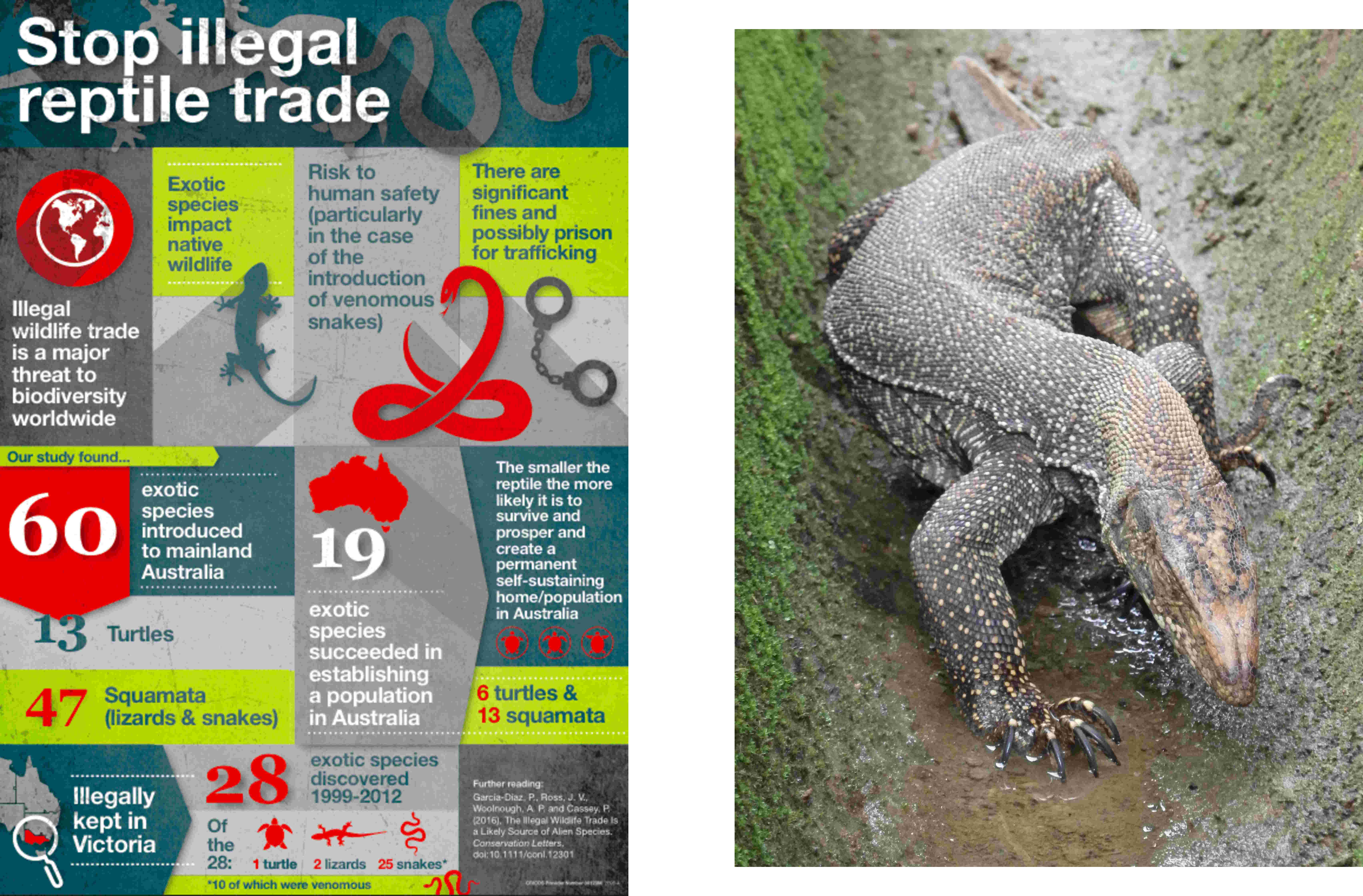
Left: Infographic from The Conversation Article; Right: Clouded Monitor (Varanus nebulosus, image source Sarah Heinrich)
Phill, Tom and Toni had a productive trip to Melbourne for the One Health EcoHealth Conference, where Toni presented her work on ‘Persistence of low pathogenic influenza A virus in water: A systematic review and quantitative meta-analysis’, and Phill and Tom got to catch up with our colleagues Craig White, Steve Portugal, and Dugald McGlashan.
Jack presented his research 'spying on dingoes in the desert' at the ESA annual conference in Fremantle WA, and shot to stardom featuring on channel 10’s SCOPE season 3, episode 137, watch it here!
We are excited to announce that Sarah and Freyja have just launched a new Wildlife Trade Working Group (WTWG). Watch this space next year as the group launches a new blog and releases the meeting schedule for the year!
We would like to officially welcome our newest member to the lab, Raissa Sepulvida who will be joining us over the next few months as part of the UofA Summer Research Scholarships. Thanks to our recent visitors, Tim Blackburn from the UK, Nina Schwensow from Germany, Dave Ramsey from the Arthur Rylah Institute and Richard Duncan from the University of Canberra.
We look forward to introducing you to our new honours and PhD students next year, and welcoming many more visitors throughout 2017.
MERRY XMAS and HAPPY NEW YEAR from the Invasion Ecology team!
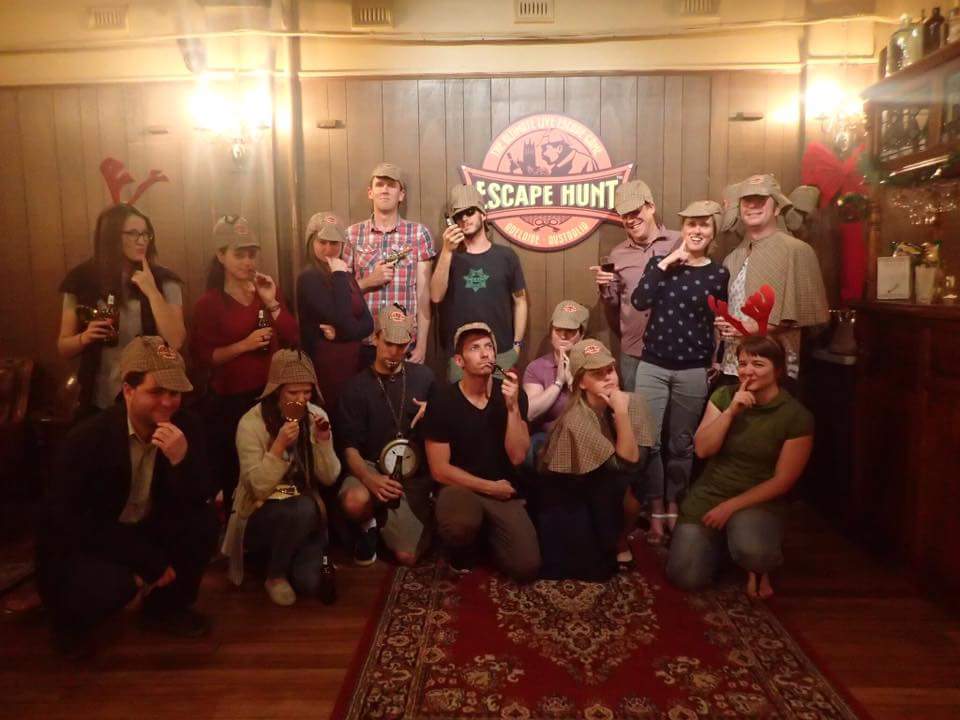
Lab News | October 2016
Some great new lab papers out this month
A huge congratulations to Amy for making it to the UofA 3MT finals. Amy came second runner up at the UofA faculty finals and won the people’s choice award.
We would like to officially welcome our newest member to the lab, Masters student Annie Robinson (University of Edinburgh) who will be conducting her thesis project on wildlife cyber-crime with us.
Phill has recently accepted a position on the International Science Advisory Panel for New Zealand’s Biological Heritage National Science Challenge. He will also be speaking at the Australian Academy of Science Annual Symposium in Canberra in May 2017 on the topic of ‘ecological and conservation implications of biological invasions’. In December, Toni, Phill and Tom will be attending the 2016 OneHealth Conference in Melbourne.
Jack has returned safely from his latest field trip to Kalamurina where he retrieved two of his collars that had dropped off. He also trapped six young adult dingoes but was unable to collar them due to size constraints. Sarah is jetting off to Malaysia next month to meet with her co-supervisor Chris Shepherd (regional director of TRAFFIC Southeast Asia).
Thank you to Andrew Woolnough and Craig White for taking the time to visit and collaborate with the lab again last month, and we are excited to welcome back Nina who will be visiting the lab again later this month from Germany, and Tim Blackburn from the UK.
We have several new papers out this month. Toni’s meta-analysis ‘Persistence of Low Pathogenic Influenza A Virus in Water’ and Su Shans paper on ‘Geographic range expansion of alien birds and environmental matching’. Miquel has also published his work on ‘Physical attractiveness, constraints to the trade and handling requirements drive the variation in species availability in the Australian cagebird trade’, and Pieter Arnold published his second PhD paper on ‘Movement ability of an invasive beetle is related to leg length but not body size nor metabolic rate’. Pablo and Phill have also co-authored a great paper on the ‘need for invasion science’. Sarah’s first PhD publication has just been accepted, so watch this space for her publication on international CITES pangolin trade!
Lab News | August 2016
Spying on Dingoes in the Desert
We are very excited to officially welcome two new students. Honours student Jacob Maher will be studying the conservation value of zoos, and PhD student Freyja Watters will be researching the illegal wildlife trade of Indonesian reptiles.
We have two new papers accepted for publication this week! Pablo’s paper in the Journal of Applied Ecology has shown that Australian border biosecurity measures are effective at reducing the risk of introducing new diseases (such as ranaviruses) being transported alongside alien amphibians. Ellie’s new paper in Global Ecology and Biogeography presents a global analysis of the determinants of alien geographical range size in birds, helping to identify which alien bird species are more likely to spread.
Jack has been busy conducting behavioural studies on captive dingoes at Cleland Wildlife Park, and he is heading back up to Kalamurina in September to deploy 6 more collars and collect camera data. Check out The Advertiser news article featuring Jack’s research, “Spying on Dingoes in the Desert”!
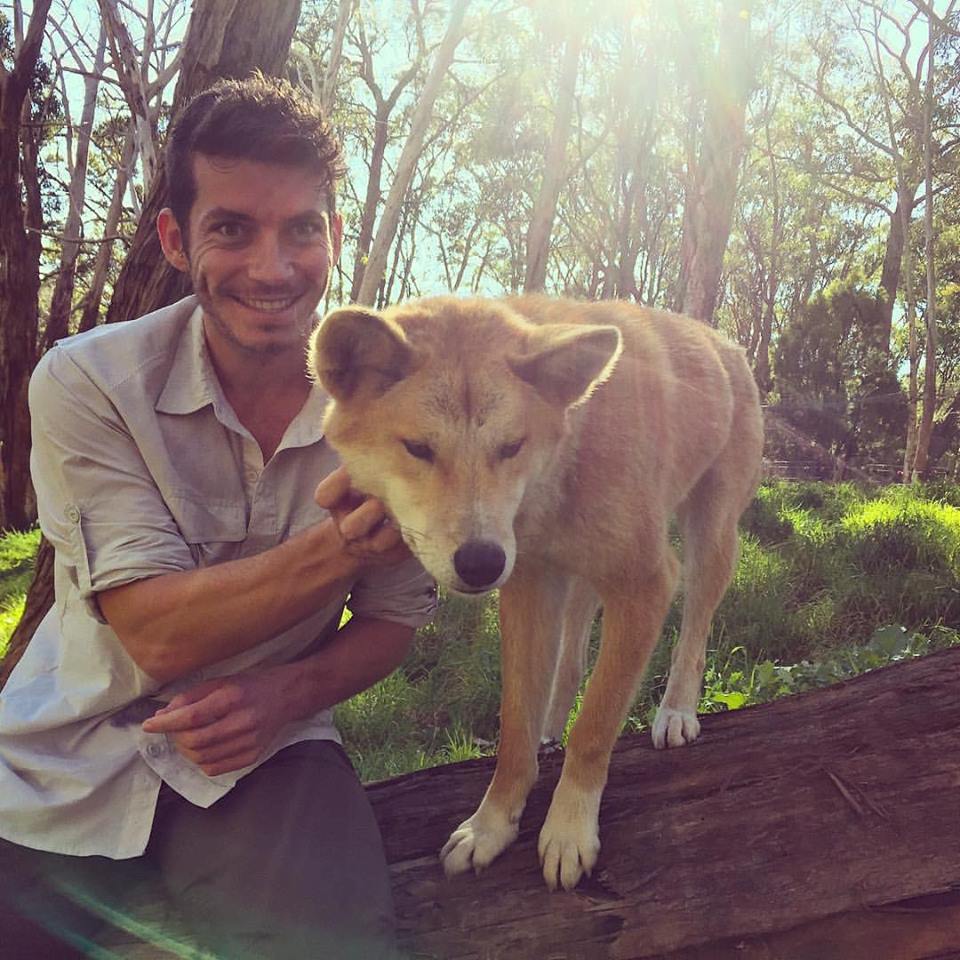
We are also pleased to announce that the Invasion Ecology Group has been successful in securing two Interdisciplinary Research Grants from the University of Adelaide. These funds will provide great support for our research into combatting wildlife crime and management of the Mount Lofty Ranges biodiversity hotspot.
Lab News | June 2016
Welcome to our new PhD student Shannon!
Congratulations to Tom Prowse for his recent paper on the global proliferation of cephalopods, co-authored with the team from the Gillanders Aquatic Ecology Lab. Congratulations also to Adam Cardilini for his outstanding effort, having successfully completed his PhD candidature. We wish Adam all the best in this new adventure!
Phill will be heading off to Singapore and Cambodia next month on the Water, Tropical Ecology and Animal Trafficking Study Abroad Tour.
In other news, Amy has started her industry placement with the Australian Genome Research Facility (AGRF), and Jack recently attended a workshop on refuges for threatened species as part of the National Environmental Science Program (NESP). Jack will also be heading back to Kalamurina in early July to install some cameras and track the progress of his dingo collars.
We welcome Shannon Lauchlan to the Invasion Ecology team, co-supervised by Ivan Nagelkerken in the Southern Seas Ecology Laboratories. Shannon is working on human vs climate change effects on estuarine fish and shellfish communities and productivity.
We are particularly pleased to be supporting the FREE family nature campout event in October this year!
Lab News | April 2016
The NRM conference was a huge success!
The lab has been buzzing with activity this last couple of months! The NRM conference was a huge success with many of our lab members presenting their research findings throughout the three day event. Pablo, Amy, Freyja, Phill, and Tom all presented talks and showcased the diverse range of research output from our lab!
The NRM conference also hosted the launch of the University of Adelaide’s new Centre for Conservation Science & Technology (CCoST) of which Phill is the Deputy Director. For more information on CCoST and the research objectives please download the brochure here!
Jack has been busy running the field component of his PhD research at Kalamurina Sanctuary, located between Kati Thanda-Lake Eyre and the Simpson Desert. Jack has been trapping and collaring dingoes with GPS and accelerometer sensors to determine their behaviour, resource selection and aspects of their physiology, including daily energy expenditure and behavioural thermoregulation. Jack has continued to be successful with his grant applications so far this year. We would like to congratulate him on being awarded two grants to help fund his project, the Joyce W. Vickery Scientific Research Fund from the Linnean Society of NSW and the Nature Foundation of SA’s ‘Scholarship Grant’.
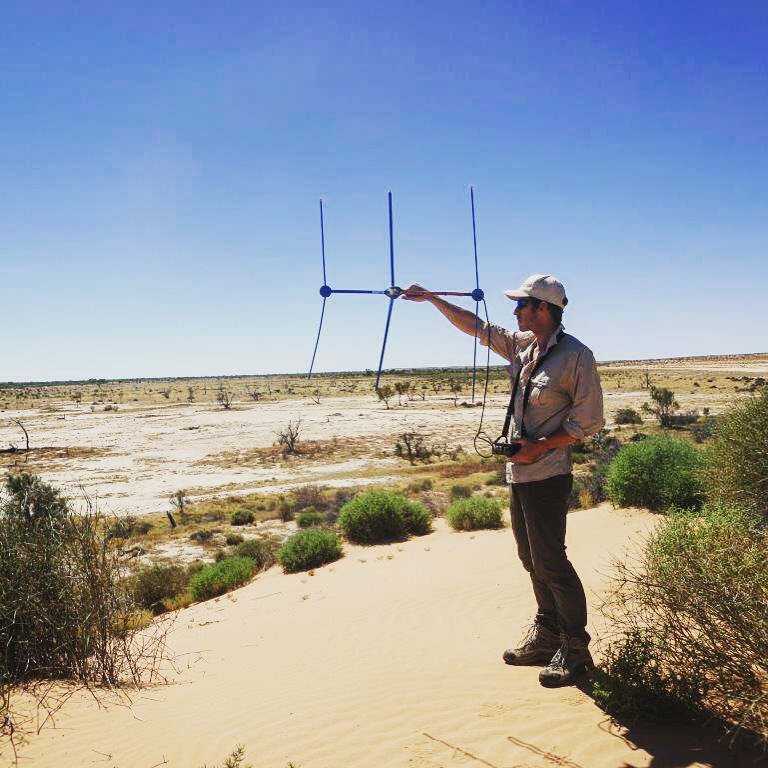
We are very excited to officially welcome Sarah Heinrich as our newest PhD student, and congratulate her on recently being awarded an international PhD scholarship for her project titled ‘Quantitative assessment of the illegal global trade of pangolin species from Southeast Asia and Africa’.
We would like to congratulate Tom Prowse on his new role as a statistical modeller in the NHMRC Centre of Research Excellence, in the School of Mathematical Sciences at the University of Adelaide. We would also like to congratulate Robert Cope for his new role, also in the School of Mathematical Sciences where he will be working as a postdoctoral research fellow on a Data to Decisions CRC project to predict disease outbreaks and spread using data assimilation and open data.
We are very grateful that Craig White from Monash University took the time to visit the lab again this year. Craig gave a fantastic seminar to the School of Biological Science’s on the causes and consequences of metabolic variation in animals, and he also opened our student awards night ceremony with an inspiring talk for our students looking to build a career in biological sciences.
Phill and Pablo have been busy running the third year field trip in Calperum over the university holidays, and Phill is off again to Sydney this week with several meetings with our collaborators at TRAFFIC, ZAA, and the Australian Museum.
We have three new papers accepted for publication this week. Toni’s paper on the proposed surveillance for influenza A in feral pigs with be available in EcoHealth very soon! Phill’s new paper has been accepted for publication in Oryx and will be available this week ‘Taking a stand against illegal wildlife trade: the Zimbabwean approach to pangolin conservation’. Ellie’s PhD paper ‘A global analysis of the determinants of alien geographic range size in birds’ has also been accepted in Global Ecology & Biogeography. Keep an eye on our twitter feed for updates on these papers and more!
Lab News | February 2016
Farewell to two of our valuable team members, Sally Scrivens and Dr Nina Schwensow
We hope everyone has had a great start to the New Year!
The IEG have hit the ground running and we have two new publications out this week!
Our publication in PLoS ONE ‘Integrative analysis of the physical transport network into Australia’ comes with a novel interactive web tool! Be sure to test it out here. We have also had a great response to our paper in Biology Letters on alien species as drivers of recent extinctions!
We would like to congratulate Sarah Heinrich on her new position in the lab, working on ‘transnational illicit wildlife trade in pangolin species’.
A big congratulations also goes to our colleague, Dr Joshua Ross, for being awarded the 2016 JH Michell Medal!
Pablo has launched a new blog, so be sure to check out his latest tips on modelling and analysing ecological data!
Sadly this month we have to farewell two valuable team members, Sally Scrivens and Dr Nina Schwensow. We wish them both well on their travels and hope to see them back in the IEG soon!
The NRM Science Conference is fast approaching, don’t forget to register your attendance now!
A new strain of RHDV (the rabbit calicivirus) is on the move in South Australia right now and we're very keen to find out more about what it is doing and how different it is to the usual strain. We'd really appreciate any reports of mysteriously dead rabbits - they usually look more or less like they've just fallen asleep on the ground, with no obvious wounds unless a scavenger has got to them. Rabbits that have died from myxomatosis on the other hand tend to have puffy sores around the face. If you find a mysteriously dead rabbit like this please give David Peacock a call on 08 83039504 or 0417355498. If you're happy to put the rabbit in the freezer or at least some place protected from scavenging foxes then we can organise to get hold of it for samples, so that we can verify whether the cause of death was this new RHDV strain.
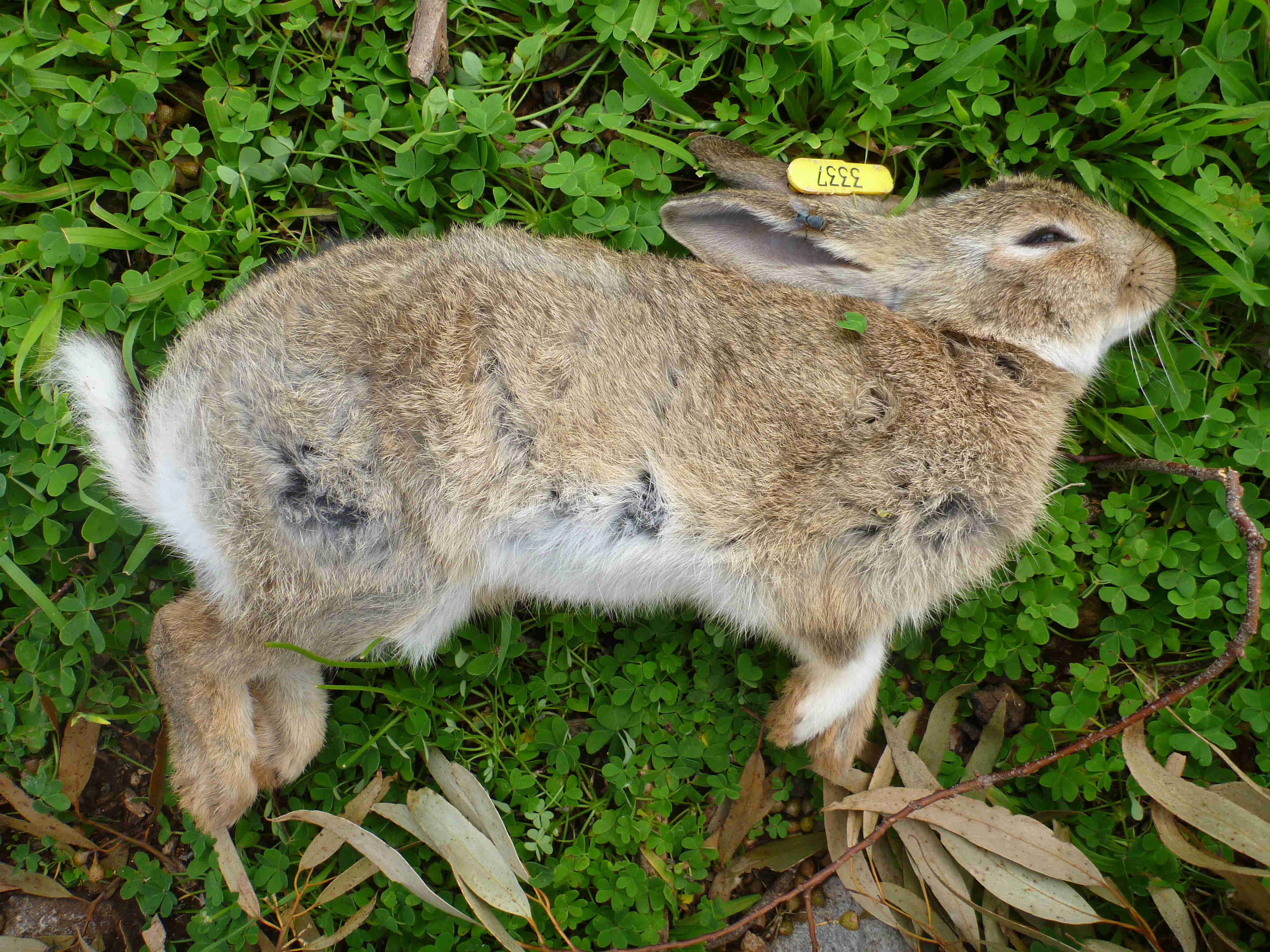
Lab News | December 2015
What a year 2015 has been!
What a year 2015 has been! Our honours students have been awarded with First Class results after successfully completing their theses, while our new and continuing PhD students have been busy with field work and presenting at conferences. We would like to congratulate Dr Su Shan and Dr Ellie Dyer on their outstanding efforts, having successfully completed their PhD candidatures this month. It has been a pleasure to have had them both as part of the Invasion Ecology Group and we wish them all the best in their future endeavours.
The ARC Discovery Project 'Transport risk pathways for emerging invasive species' is progressing well, our paper on the ‘Integrative analysis of the physical transport network into Australia’ is currently in review and comes with an interactive web tool that we are excited to share with the broader research community.
November was a busy month with ESA in town, with many of our lab members both attending and presenting at the conference. The lab has also been buzzing with visitors. We would like to thank Tim Blackburn for visiting throughout November, and presenting the EES department with a great talk on ‘Following alien birds along the pathway to impact’. We would also like to thank Richard Duncan from the Institute for Applied Ecology for his recent visit to the lab, and we look forward to collaborating on some exciting projects in the near future.
Jack recently attended the Eco-Stats conference in Sydney and Robert is off to Sydney in the New Year for the Marine Bioinvasions conference.
We would also like to congratulate Emma Matthews for being awarded a summer scholarship to work with the Invasion Ecology Group and thank her for all of her great work towards our current wildlife trade projects.
IEG look forward to welcoming more visitors throughout 2016 and sharing more of our research output. We wish you all a safe and relaxing Xmas and summer period!
Lab News | October 2015
A red-eared slider turtle (Trachemys scripta elegans) was recently spotted in Salisbury East, South Australia.
We would like to congratulate Freyja and Melanie for recently completing their honours projects and handing in their theses; both have worked extremely hard throughout the year and we wish them well in their future endeavours. Check out next year’s Honours Projects if you are interested in joining the IEG team!
Pablo and Phill recently travelled to Melbourne for the IA CRC Incursions Theme Meeting, and Phill has also been on an exciting trip to Singapore for the Songbird crisis summit.
A red-eared slider turtle (Trachemys scripta elegans) was recently spotted in Salisbury East, South Australia. Red-eared Slider Turtles are in the top 100 worst pests worldwide, and it is illegal to import, keep, trade or release Red-eared Sliders in Australia. Please help to keep Australia pest free!

Red-eared Slider Turtle (Trachemys scripta elegans) © Pablo Garcia Diaz
We would like to congratulate Nina for securing more funding from Rabbit Free Australia to support a de novo genome assembly of the RHD virus isolated from flies. This project aims to discover more about the transmission of RHDV between rabbit populations.
Our PhD students have been very busy. Su Shan recently published a new paper in Biological Invasions on The wildlife pet trade as a driver of introduction and establishment in alien birds in Taiwan. Toni is off to Innamincka again in November to add another year of data to her PhD project "The persistence of avian influenza in the South Australian environment and the potential role of invasive mammals for additional surveillance". Jack is also off on some exciting fieldwork in November, where he will be helping out with some fox trapping at Scotia Sanctuary.
We would like to thank Associate Professor Craig White and PhD Candidate Pieter Arnold for recently visiting the lab and presenting us with an informative update on their recent research on the evolution of physiological and behavioural traits benefiting dispersal at the invasion front.
The ESA 2015 Annual Conference is just around the corner. Steve, Tom, Pablo and Robert from the IEG team will all be presenting on their research so don’t forget to register now!
Lab News | August 2015
Don’t forget to register for the ESA 2015 Annual Conference
Don’t forget to register for the upcoming ESA 2015 Annual Conference to be held in Adelaide this November! Check out the exciting list of keynote speakers online now. Early bird registrations close Friday 18th September so don’t miss out!
Robert has an exciting trip ahead! He is jetting off to Rome in September to present his work on climate matching at the European Ecological Federation Conference. Toni will be attending the national avian influenza working group meeting in Melbourne this September and Jack has been busy wrangling wombats and yellow-footed rock wallabies. Jack travelled to Aroona Sanctuary and trapped yellow-footed rock wallabies as part of a long term mark-recapture study and also caught southern hairy-nosed wombats at Brookfield Conservation Park as part of a study investigating the relationship between wombat and vegetation condition.
We would like to thank Dave Ramsey for his recent visit to the lab in July and we are excited to welcome more visitors over the coming months.
Lab News | June 2015
A sad farewell to one of our valuable team members Miquel
The invasion ecology group has been very busy this month! PhD student Jack Tatler has been awarded the BSSA Field Research Grant, the Nature Conservation Society of South Australia’s Conservation Biology grant, and the Australian Geographic Society grant! We would like to congratulate Jack on his outstanding effort. We are also very proud to announce that Pablo was awarded the student prize for his talk at the SEEM in New Zealand this month. Toni will be attending the Wildlife Disease Association International Conference at Maroochydore in Queensland in July, and Pablo and Miquel will be heading to Christmas Island for field work in July. The lab has also had lots of visitors and would like to thank Reid Tingley, Andrew Woolnough and Lee Ann Rollins for their informative seminars.
We would like to farewell one of our valuable team members Miquel this month. Miquel is finishing his post doc with the IEG and heading off to Birmingham. We would like to thank him for his invaluable input to the lab and wish him all the best in his new role. We also welcome a new member to our team, Sarah Heinrich who has joined us from Germany on an internship.
Phill is jetting off in July on the Water, Tropical Ecology and Animal Trafficking Study Tour with 15 students from the School of Biological Sciences to visit Malaysia, Singapore, Cambodia and Vietnam. Students will be immersed in a 13 night experience observing ecology and animal trafficking in South Eastern Asia. Visits to live animal markets, conservation parks and a guided nature walk will also be included. This immersive cultural experience will enable students to gain knowledge and understanding of the South East Asian animal trafficking trade and their conservation efforts.
We are also excited to announce that Phill will be opening the 2015 Australian Geographic ANZANG Nature Photographer of the Year exhibition on Friday July 31st at the South Australian Museum. The exhibition will run from 1 August – 30 August 2015 so be sure to get along and check it out!
Lab News | April 2015
Duckwatch & Pint of Science
It is an exciting time for the lab in the coming months! Duckwatch lead by Dr Toni Dalziel is in full swing and if you are keen to volunteer jump on the Duckwatch website now! The international Pint of Science festival is coming to Adelaide in May! Some of the world’s best scientific researchers will be sharing their latest findings in pubs across Australia. The festival runs from the 18th to the 20th May 2015 in 40 cities across 8 different countries. Phill will be one of the panellists at the Tuxedo Cat on Tuesday May 19th from 7pm. Come along and meet the IEG team!
Congratulations to Pablo, Miquel, and Amy who successfully completed their IA CRC Research Reviews held in Canberra in March! Robert recently attended the fourth Australia New Zealand Applied Probability Workshop held in the Barossa and Roberts’s latest paper ‘Temporal modelling of ballast water discharge and ship-mediated invasion risk to Australia' is online now!
Pablo will be heading to New Zealand in June for the Statistics in Ecology and Environmental Monitoring conference. Pablo will be presenting a talk on ‘Australia’s border (bio-)security: cancelling the invasive frog-driven apocalypse?’. Pablo will also be attending the pre-conference workshop on advanced spatially-explicit capture-recapture in Dunedin.
We look forward to welcoming more visitors to the lab in the coming months. Dr. Reid Tingley from the ARC Centre of Excellence for Environmental Decisions (CEED) at the University of Melbourne will be presenting a talk to the lab on ‘Managing the spread of invasive amphibians under uncertainty’ on Tuesday May 26th at 12pm. Lee Ann Rollins from the School of Life and Environmental Sciences at Deakin University will also be visiting the lab in May. Lee Ann will be discussing ‘Invasive species as a model for the study of rapid evolution’. Please come along on Tuesday May 19th at 2pm. We hope to see you there!
Over the next 18 months, we need your support for research investigating the exposure of ducks and other water birds on the River Torrens to avian influenza or bird flu.
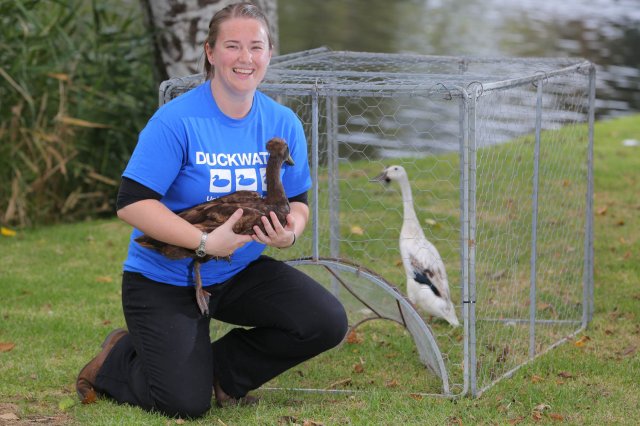
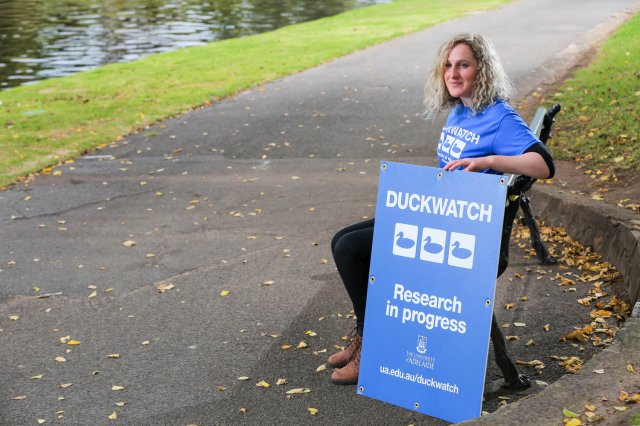
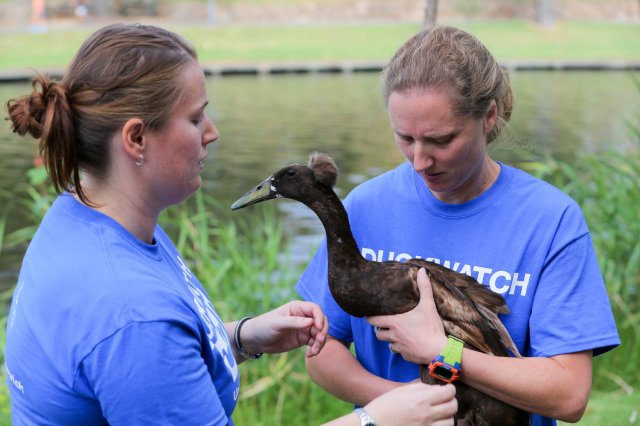
Practical solutions to the biodiversity crisis.
Come along and meet the scientists who are making a difference to the planet we live on!
- Prof. Andy Lowe: Illegal logging and forensic timber tracking technologies
- Assoc. Prof. Lian Pin Koh: Innovative drone technology for conservation
- Assoc. Prof. Phill Cassey: Mitigating human-induced biological invasions
Lab News | February 2015
Follow us on our new twitter page!
We are very pleased to welcome our commencing students Jack Tatler (PhD Candidate) and Melanie Crossley (Honours Candidate). Jack’s research will focus on the impacts of current dingo management techniques on biodiversity, ecosystem resilience, and livestock. Melanie’s honours project will focus on the efficacy of wild-dog control in the South Australian pastoral arid lands.
In collaboration with the Pastoral Board of South Australia, our summer research scholarship student Grace Porter-Dabrowski has been very busy over the past 10 weeks digitising the archive database on the holding and turnover of sheep and cattle across South Australian pastoral properties.
Sally Scrivens is embarking on a new role in the lab, where she will be working on developing knowledge and tools to inform integrated management of Spencer Gulf: case study on shipping and ports.
Toni recently visited Marcel Klaassen’s lab at Deakin University in Geelong to learn how to run a diagnostic test for her research, and process samples taken from two field trips last year. Whilst there she also gave a short talk to Marcel’s lab group outlining her research and discussed some possibilities for collaboration in the future.
Thank you to Reuben Keller all the way from Loyola University of Chicago, and Dave Ramsay from the Arthur Rylah Institute for their recent visits to the lab. We would also like to thank Konstans Wells for presenting a summary of his research to our group this month.
The annual Ecological Society of Australia (ESA) conference will be held in Adelaide this year from November 29th - December 3rd. Phill is the Chair of the scientific committee, and expressions of interest for symposia are open now, jump online now to find out more!
The Invasion Ecology Group has launched a new Twitter page this year! We will be tweeting all things invasive, please follow the link to start following us now!
Lab News | December 2014
Merry Xmas and happy New Year!
2014 has been jam packed with numerous visitors to the lab, new staff joining the team and the commencement of our ARC Discovery Grant ‘Transport risk pathways for emerging invasive species’.
Phill, Miquel, and Ellie recently attended the New Zealand Ecological Society conference in Palmerston North. Phill delivered the keynote plenary ‘Biological invasions of vertebrate species: pets, pests and people’. In addition, Miquel and Ellie presented their work on ‘Indian Ringnecks: from pets to pests - Assessment of the status, potential distribution and impacts of exotic Psittacula krameri in Australia’, and ‘The Global Avian Invasions Atlas (GAVIA): Using a global-scale spatial database of alien bird species to answer key questions in invasion ecology’, respectively. Congratulations to Ellie for winning the student prize for best presentation under the theme of the meeting!
Congratulations to Pablo García Díaz who has recently been awarded the 2014 IA CRC Student Grant for his work on vertebrate risk-assessment and pet-trade pathway models. Read more on the Invasive Animals CRC website: ‘Champions in pest animal research and management awarded’.
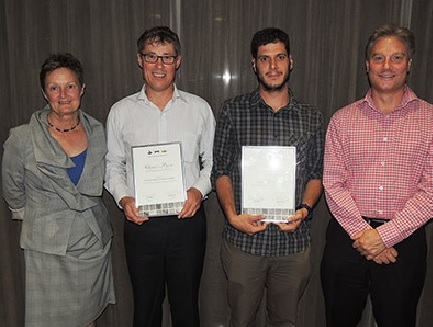
L-R: Helen Cathles – IA CRC Chair, Prof Stephen Sarre, Pablo García-Díaz and Andreas Glanznig, CEO – IA CRC (Image source: Invasive Animals CRC)
Welcome back to Toni and Sally from their successful field trip to Innamincka, collecting samples from feral pigs as part of Toni’s PhD: ‘The persistence of avian influenza in the South Australian environment and the potential role of invasive mammals for additional surveillance’.
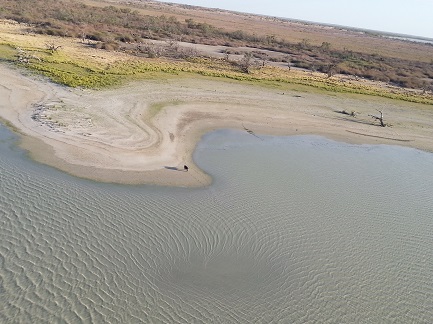
Feral pig on the shore of Coongie Lake, Innamincka SA (Image source: Sally Scrivens)
We look forward to welcoming more visitors throughout 2015, and wish you all a very merry Xmas and happy New Year!
Lab News | July 2014
Transport risk pathways for emerging invasive species
We extend a warm welcome to Dr Robert Cope and Talia Wittmann who join us as a Research Associate and Research Assistant, respectively. Robert and Talia will be working on the ARC Discovery Project 'Transport risk pathways for emerging invasive species’. We are also very pleased to welcome our new 2014 Honours student Freyja Watters.
At the 16th Australasian Vertebrate Pest Conference in Brisbane, Phill delivered his keynote speech ‘Incursion and containment: Pests and pets, the future of vertebrate Biosecurity’. Phill was joined by fellow lab members Toni, Sally, Nina and Amy. In addition, Miquel and Pablo presented their work on ‘Predicting bird incursions: the role of abundance, market value and species traits as drivers of the private bird trade’, and ‘Understanding the transport and introduction of vertebrates to manage invasions: reptiles in Australia’, respectively. Tom and Phill also recently attended the AMSA conference in Canberra, to present their work on ‘Integrating species distribution models with transport networks to inform biosecurity risk assessment’.
Congratulations to Amy who has recently been awarded a grant from the Foundation for Rabbit Free Australia which will fund part of her PhD research ‘Investigating rabbit (Oryctolagus cuniculus) resistance to rabbit haemorrhagic disease virus (RHDV) variants in Australia’. This funding will contribute to the development of an extensive rabbit pedigree, which will be used to determine how much influence genetic resistance to the calicivirus has on the rabbit's overall ability to survive and breed in the field. Miquel has also been awarded a post-doctoral travel grant by the Environment Institute to attend the 2014 NZ Ecological Society meeting, this November in Palmerston North.
Thank you to Erin Grey and Andy Suarez all the way from Notre Dame in the US and the University of Illinois, for their recent visits to the lab. We look forward to welcoming more visitors throughout the year. In particular, Ellie and Su Shan will be back in the lab in October. Please find a link to Ellie’s blog here.
In other news, the calicivirus "outbreak season" is arriving, and we're on the lookout for any dead rabbits (that don't appear to be road kill or eaten by foxes!) that we can take samples from. If anyone notices the outbreak in their area we'd love to be notified via the BIOSECURITY SA website.
